

CAMPAIGN STANDS UP FOR BLACK WOMEN
Koby Hagan transformed Black British music › p40
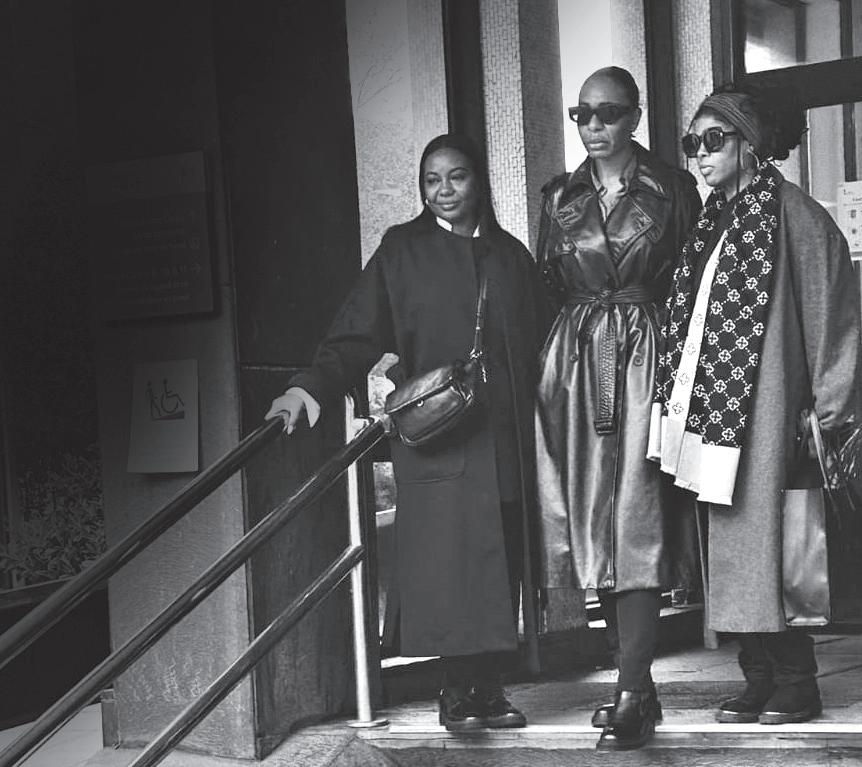
A new campaign is urging support for three Black women who were racially attacked on a London train last year.
An off-duty police officer witnessed the attack on Selma Taha, Divina Riggon and Danae Thomas, but failed to intervene. Shockingly, the CPS has charged them with assault instead of their attacker.
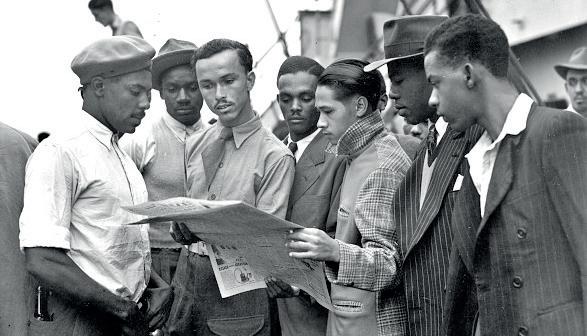
Windrush compensation reform and a statutory inquiry are among the demands of a new manifesto that the next government must address to right the wrongs of the Windrush scandal › p6
The #KingsCross3 campaign is urging the community to support Selma Taha, Divina Riggon and Danae Thomas
Inside THIS MONTH

Black families torn apart by social services leaving children vulnerable
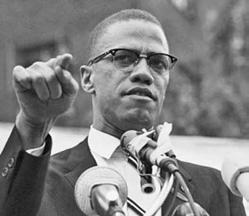
The Voice says
US activist calls for NAACP to drop word ‘coloured’ from its name

Black voters and activists are questioning their loyalty to Labour


Protect our children: Social services must support, not split, Black families
1
’To play for Nigeria is an honour first of all and the best decision I ever made’. The Europa League hattrick hero Ademola Lookman headlines a strong 25-man squad

2Protests in Birmingham after pregnant Black woman physically attacked and racially abused. West Midlands Police are appealing to witnesses to come forward
3Vybz Kartel to remain in jail for now. Dancehall star’s murder conviction was quashed by the UK Privy Council in March
4Rapper reunites with the ‘guardian angel’ who saved his life. Okiemute Akpogheneta was shot and nearly killed in a Reading nightclub in 2006
DJ Taffy: The Riddim Beast behind Bouyon’s Caribbean takeover
Malcolm X’s vision lives on: convention aims to empower the diaspora

THE FAILURE of social services to protect Black families is an issue that demands immediate and urgent attention.
The stark reality, as highlighted by The Black Child Agenda, is that Black children are being unfairly removed from their families and placed in care homes miles away, leaving them vulnerable to exploitation and criminal gangs. This systemic failure is a glaring injustice that our community can no longer tolerate.
Cheryl Phoenix, founder of The Black Child Agenda, has shared heart-wrenching stories of Black families being torn apart by social workers who often bully and harass parents, falsifying documents to justify emergency removal orders.
The traumatic consequences of these actions are devastating.
Children are not only being taken away without valid reasons, but are also being placed in environments where they are exposed to further harm, including exploitation by County Lines gangs.

This pattern of discrimination reveals a profound lack of cultural understanding within social services. Black families are more heavily scrutinised and less supported than their counterparts from other ethnic backgrounds.
This disparity is unacceptable. Social services are supposed to safeguard children, not exacerbate
their vulnerabilities. The system’s failure to provide adequate support to families in need, and its tendency to escalate cases unnecessarily, speaks to a broader issue of systemic racism.
The statistics are alarming. Black children are disproportionately represented in the care system and are less likely to be adopted, reflecting deep-seated biases. The consequences extend far beyond childhood, contributing to a pipeline that leads from care to criminal conviction. This is not just a failure of social services; it is a societal failure that must be addressed.
The next government must prioritize reforming social services to ensure they are equipped to understand and meet the needs of Black families. This includes training social workers in cultural competency and holding them accountable for their actions. Black families deserve to be treated with respect and dignity, and children should not be torn away from their homes without just cause.
It is time for change. Our community cannot stand by while our children are placed at risk. Social services must listen to our concerns, and the government must take action to protect Black families from these injustices. Enough is enough. We demand fairness, support, and the right to keep our families together.
5Charities working with Black youths urged to apply for £2 million fund. Applications are now open to apply for funding
6Grenada demands Bank of England pay reparations for its ownership of slave plantations. Grenada is demanding the Bank of England pay reparations for enslaving 600 African people on the island
7‘Over the years she’s been like a big sister to me’. Mica Paris couldn’t refuse when Chaka Khan invited her to take to the stage at the Meltdown festival
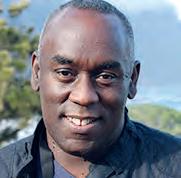
8Awardwinning author says ‘prostate cancer check isn’t the embarrassing test many men fear’. Alex Wheatle MBE speaks about his support of Black men getting screened for Prostate cancer
9Missing children from Thorpe Park found after urgent appeal. Children now found safe after disappearance sparked frantic search efforts
10Hearing begins to decide if Vybz Kartel will face retrial. The latest court proceedings in the reggae star’s case are expected to last five days
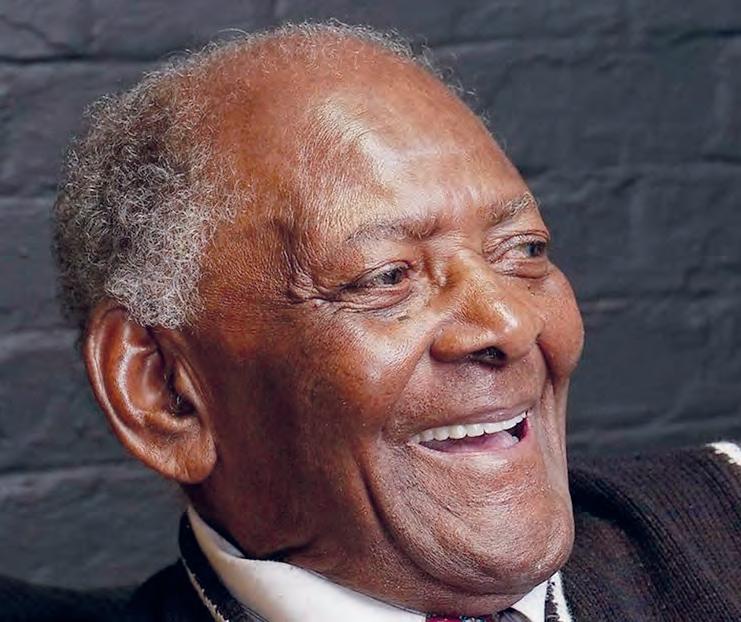
COMMUNITY MAN: Hundreds gathered to pay their respects to the much-loved Norman Mitchell, MBE
TRIBUTES TO WINDRUSH PIONEER NORMAN, 103
The founder of the West Indian Senior Citizen Organisation was widely recognised as a champion of the Brent community. By Vic Motune
HUNDREDS OF mourners gathered in north-west London recently to pay tribute to a man who was widely regarded as a champion of his local community in Brent Windrush Generation member Norman Mitchell, MBE, who recently passed away at the age of 103, was a revered figure in Brent where he founded the West Indian Senior Citizen Organisation (WISCO) in 1980 which was aimed at helping other Windrush Generation members in Harlesden who had become frail and isolated.
The great-grandfather who arrived in Britain from Clarendon, Jamaica in 1955 was made an MBE in 2014 for community work and service.
Among those who paid tribute to Mr Mitchell and his service to the community was Brent Central MP Dawn Butler.
She told The Voice: “Attending Mr Mitchell’s funeral was a stark reality that we are losing a generation of people from Windrush and beyond who, through their struggles much of which we will never know
“We can never repay their sacrifice or understand what they went through, but we can honour them”
laid a foundation for us on which we can build and grow.
“This is vital and important because that history, that generation, we can never repay
their sacrifice or understand what they went through, but what we can do is honour them.
“The Windrush Scandal is so disgraceful and a stain on our country. That is why I am so pleased that the Labour Party will right this wrong if we get into government.”
Ms Butler continued: “It was my privilege to attend Mr Mitchell s funeral, because the least I can do for that generation is thank them and honour them.
“Without that generation and their sacrifice, I would never have been an MP or the first elected Black female government minister to speak at the dispatch box.
“As we lose this generation, I hope that all of us and the young people understand that these hard-fought for rights are something we should not just appreciate, but build on. It is a powerful legacy let s live up to it.”
After arriving in Britain from Jamaica, one of Mr Mitchell’s first jobs was loading lorries with bricks. He later found work as glass quality-control inspector in Park Royal, followed by 12 years of service with St John Ambulance Brigade.
In a 2021 interview with
BLACK BRITISH ENTREPRENEUR CELEBRATES DEAL WITH US RIDE-HAILING APP
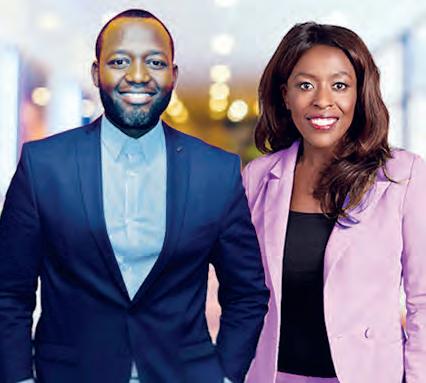
A BLACK British entrepreneur who moved to the US is celebrating a major deal that promises to elevate her business to new heights.
Former BBC journalist Kunbi Tinuoye moved to Atlanta to launch the award-winning digital news platform UrbanGeekz which focuses on AfricanAmerican, Latinx, and multicultural technology, science businesses.
The Voice to mark his 100th birthday Mr Mitchell, a devoted Christian and pastor of his local church, spoke about how a strong family growing up in Jamaica and his religious faith had helped to shape his outlook and give him a sense of direction.
“My mother and father were happily married; they provided an atmosphere of love and happiness in our home where we were nurtured in Christian principles with high moral standards,” he said.
“My mother Rebecca (Rachel Hames), was a wonderful woman. She was so pretty, her love was so close for all of us, especially me, the last one of 11 children. I was the last little boy so they all loved me.
“My father died when I was young and I took over the responsibility of my mother, I made sure she had everything she needed. “From age 14 to 27 I did my best to take care of my mother. My last sister would go to the market to sell on weekends to sell from my father’s cultivation.
“All the men in those days admired how I took care of my mother and because of that they became my friends, so I grew up with big men.”
Tinuoye, who has also worked as a former correspondent for NBC’s theGrio.com, has teamed up with Black-owned ridehailing app Moovn to share its content with passengers on the move.
The wide-reaching syndication deal gives riders across the globe direct access to UrbanGeekz content right in the comfort of Moovn ridesharing cars. Embedded in the interface design, the Moovn mobile app empowers passengers to read, watch, and engage with UrbanGeekz during trips.
The pioneering partnership deal marks the first time a Black-owned news platform has inked a content partnership pact on a ridesharing mobile application.
UrbanGeekz founder and CEO Tinuoye said: “I’ve always been someone who thinks outside the box. For years, I’ve had this huge vision to showcase our content to a captive audience of passengers sitting in the back seat of rideshares. We just needed
to find alignment with the right partner, and that’s why we are so excited to collaborate with Moovn.” Moovn founder and CEO Godwin Gabriel said: “I’m very excited by this fantastic partnership between Moovn and UrbanGeekz. We believe this deal will add enormous value for our riders and Moovn users who can now gain direct access to UrbanGeekz content on-ride, or even not on-ride through our subscription and email marketing campaigns.”
Gabriel added: “It will expand UrbanGeekz’s global footprint to our international audience and subscriber base. It’s something that’s never been done before, and it just shows the respective growth of our brands. We (Moovn) have plans for even more growth as we continue to attract more investment dollars.”
Cambridge University graduate Tinuoye, who was recently recognised as one of Crunchbase’s 25 Black Entrepreneurs Making Waves added: “Our passion has always been to create premium business, technology, and innovation content from a diverse and multicultural perspective. Our goal is to educate, inspire, and entertain our users. So, for our content to now reach an even wider audience that’s not just in the West but across major hubs in Africa is something that makes me extremely proud.”
NEW DEAL: Kunbi Tinuoye (right) with Moovn founder and CEO Godwin Gabriel
Photo: Moovn
Photo: Adrianne McKenzie @OnyxGold Studio
IS IT TIME FOR BLACK VOTERS TO ABANDON LABOUR?
The party may be heading to a resounding victory at the polls but its approach to race equality under Sir Keir Starmer has left many angry. By Richard Sudan
FOR decades, Black voters have been the backbone of the Labour Party, contributing significantly to its growth and success.
The Labour Black Sections played a crucial role in achieving greater representation, which ultimately benefited and strengthened the party membership and talent.
In recent times however, the actions of the party have left many questioning whether Labour still deserves the support of Black voters.
Despite this historical loyalty, Labour’s approach to race equality under Sir Keir Starmer has left many angry and feeling politically homeless.
The launch of the proposals for the substance thin, longawaited Race Equality Act, which inexplicably excluded Black media, was part of a troubling trend.
This exclusion was not merely an oversight; it represents a deeper, more systemic issue within the party.
The treatment of Diane Abbott, a trailblazer and the first Black woman elected to Parliament, came to symbolize Labour’s current problematic
stance on race. Abbott has faced unprecedented levels of racist abuse, and her suspension over comments deemed insensitive stands in stark contrast to the leniency shown towards party members with documented racist behaviours.
This double standard is glaring and unacceptable. It was recently revealed that the internal party investigation into her comments that Jewish, Irish, and Traveller people did not face racism “all their lives”. and for which she has since apologised, were concluded months ago, yet she was not informed in a timely manner, adding to the injustice she faced.
The Frank Hester scandal saw Labour respond with cynical opportunism rather than unconditional solidarity.
The Forde Report, which exposed widespread antiBlack racism within Labour, has been met with inadequate action as acknowledged by Forde himself.
Instead of addressing these issues head-on, the party has often resorted to superficial gestures that do little to tackle the root of the

“No one should vote Labour. They support the Tories’ culture war, and racism against migrants and refugees.”
problem. The sidelining of progressive Black candidates further illustrates Labour’s reluctance to prioritise genuine racial equality.
Adding insult to injury, Labour has included candidates with known racist views and has given short suspensions to those found guilty of racism within its ranks.
Such actions starkly contrast with the party’s public declarations of equality and justice.
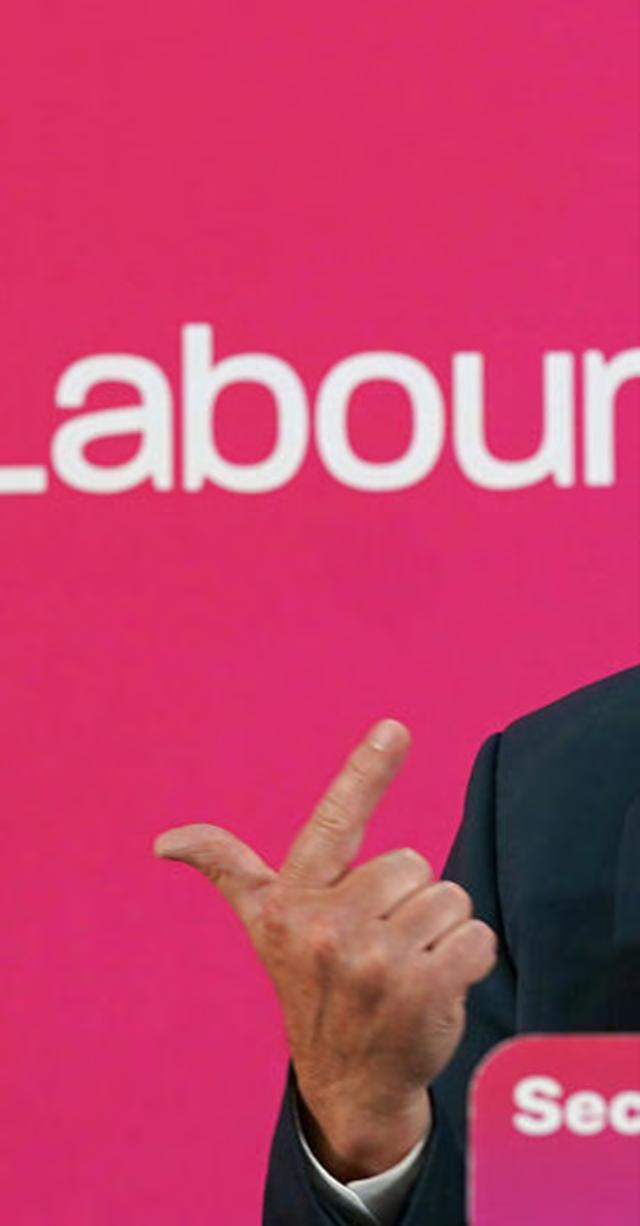
INJUSTICE: Diane Abbott has faced unprecedented levels of racist abuse
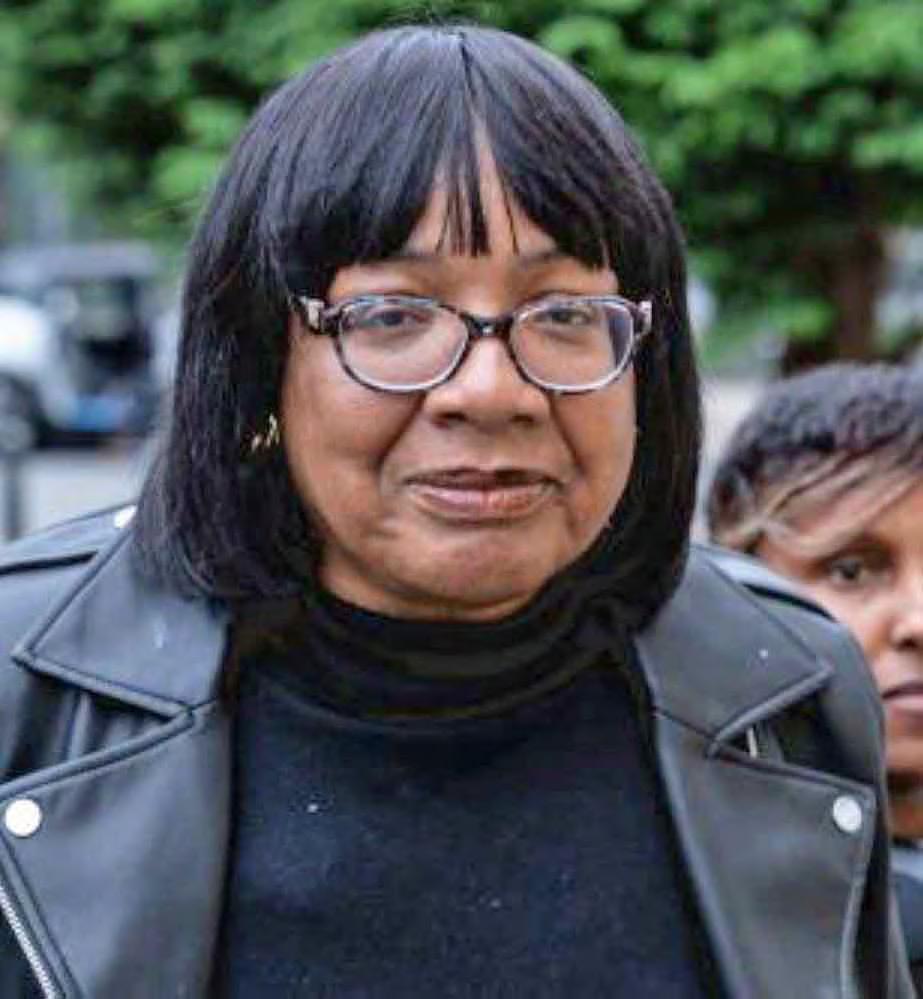
- Fiona Lali, independent parliamentary candidate
for
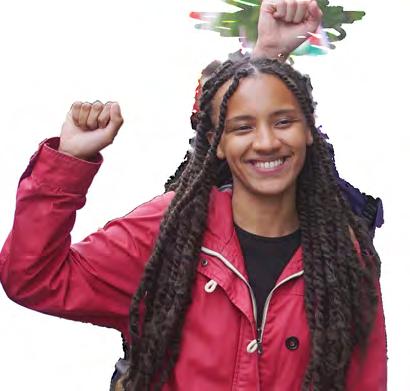
Many Black supporters of the party have publicly called out what they describe as the party’s hypocrisy and opportunism over Tory donor Hester’s racist comments towards the longserving MP highlighting Labour’s inconsistent approach to tackling racism.
And then there is Gaza. Many feel that Starmer’s general stance and his car crash interview with LBC host Nick Ferrari was a step too far. Staunch anti-racist activists and those opposing Israel’s killing of Palestinian civilians can never, and will never, identify with a leader who was
once a human rights lawyer but who indicated on national radio that he thought it was acceptable for Israel to withhold water and fuel from a civilian population.
Given these issues, an inevitable question arises. Should Black people continue to vote Labour?
Has the time arrived when a community that has staunchly supported the party for so many years turn its back on it at the ballot box?
Earlier this year I wrote an article which strongly suggested that party leader Starmer does not care about Black people.
The contributions of Black voters to the Labour Party are
undeniable, but many believe the party’s recent actions suggest a significant departure from its purported key core values. At the time of writing Labour are yet to publish a mini race and faith manifesto as part of its wider manifesto.
The party’s failure to address internal racism and its efforts to sidelining leading Black voices such as Abbott risks losing a critical voter base. The mood on the ground suggests many had decided many months ago they would not vote Labour again. And is there any coming back from this with Starmer as party leader or is the jury out?

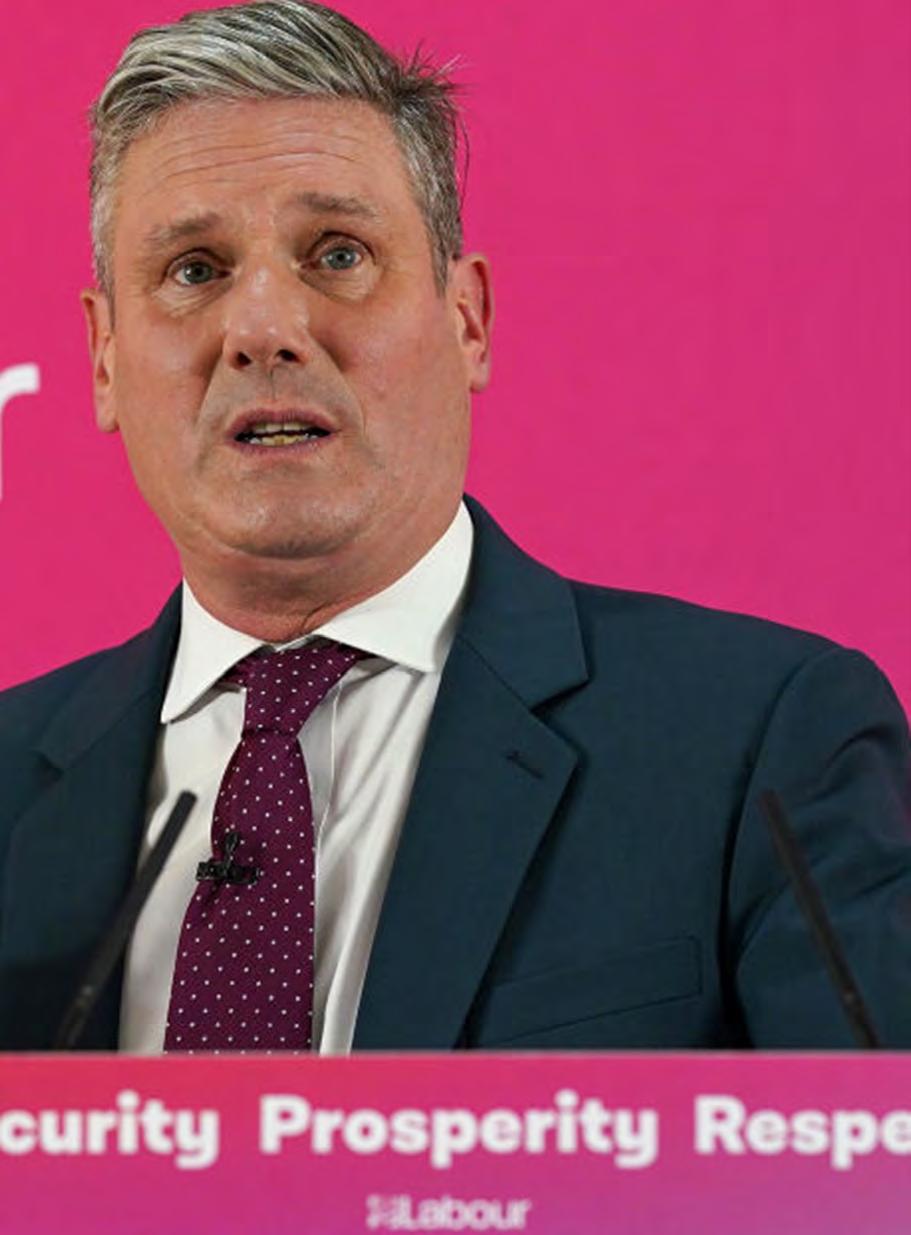

won’t represent the actual interests of the working class, why should they be supported?”
Kehinde Andrews is a professor and author. He took to social media recently and said for the first time he wouldn’t be voting Labour.
News Feature
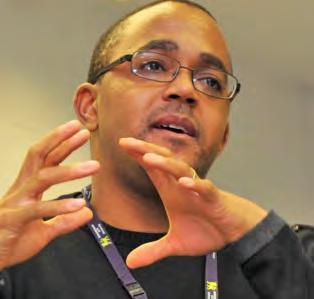
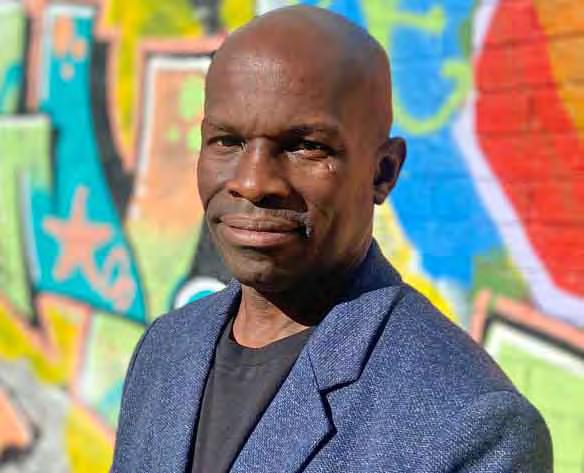
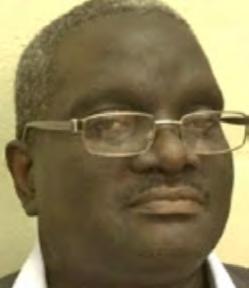
Diane Abbott would be allowed to stand as a Labour candidate at the General Election,” he said.
“There is a lot to look forward to in Labour’s manifesto: two million more NHS appointments, VAT on private schools in order to pay for 6,000 new teachers, the setting up of Great British Energy in order to bring down energy bills and a new deal for workers.
“ I don’t need to vote and I won’t be voting. It’s a waste of my time. In fact, I’m going to vote for Malcolm X and put a massive X on my ballot”
- Kehinde Andrews, professor and author
who will go to Parliament and represent our best wishes,” Mcleod told The Voice. “I don’t believe in that whole ‘If you live in this area you have to vote like that and this is a marginal’. I believe in true democracy.
“The Black community, like any community, is not a monolith. There are different people with different points of view so the idea that everyone with a particular skin colour should vote for a particular party is of course ridiculous.
“Having said that, there are joint challenges that almost every Black person or person of colour faces in the UK like structural racism and so the part that’s most likely to have an impact on structural racism obviously in my mind should have a particular attraction to Black communities.
“Now I’m under no illusion that any Labour government will come in and have all of the answers or even many of the answers that my community needs.
We posed this question to some leading Black British political activists.
Fiona Lali – independent parliamentary candidate for Stratford and Bow.
Lately Lali has been making waves on social media, not least in a viral clip in which she told former home secretary Suella Braverman that she was a war criminal.
“Black people should not vote Labour in this election.” Lali told The Voice. “No one should vote Labour.
“They support the Tories’ culture war, and racism against migrants and refugees. They support Israel’s war crimes. And they support investing billions in nuclear weapons, while underfunding the NHS, education, and housing.
“A new study just came out confirming what we already know – Black children are six times more likely to be strip searched than White children. Labour’s Keir Starmer has defended stop and search calling it a crucial tool. They take our votes for granted. If they
“I’m in a situation like most Black people or certainly a lot of Black people where my seat’s definitely going to be Labour,” he said. “That’s why Labour take us for granted because we tend to live in these inner city areas.
“I don’t need to vote and I won’t be voting. It’s a waste of my time. In fact, I’m going to vote for Malcolm X and put a massive X on my ballot.
“But we do have to be strategic about these things. The Tories are terrible and the Tories need to go. If I lived in an area that was a marginal seat and Labour was close to the Tories in that situation I’d vote Labour. However, they are marginally less worse than the Tories – the lesser of two evils.
“But what I would stress
is, Labour isn’t the solution to anything. Even though in a marginal I might hold my nose and vote Labour, that does not mean I expect Labour to do anything for us. It just takes some of the pressure off.
“Broadly speaking we need to send a message to the Labour party that they can’t take our votes for granted. So when we don’t need to vote Labour don’t vote for Labour, vote something else. Labour isn’t going to save you. This is why we are organising the Convention for Afrikan people next year.”
Kingsley Abrams, General Secretary of Momentum Black Caucus (MBC), says he’ll be assessing a potential new Labour government closely.
“It was touch and go at the end of May as we waited to see if
“After 14 years of Tory mis-rule, the Labour Party is on course to form the next government. All of the polls point to a Labour victory on July 4. We will also see a significant number of Black activists elected to the new Parliament.
“But we will be watching the Labour government very closely to ensure that they deliver on their manifesto commitment to build a more equal society and tackle the equality pay gap.”
Maurice Mcleod is an anti-racism activist and local Labour councillor but advocates for true democracy first.
He believes that the current Conservative politics and rising racism means Labour remains the most appropriate option but that people should always vote for the best candidate.
“Now I’m in the Labour party so of course I advocate voting Labour. But I also believe that we should look at the candidates standing in our areas and truly think about
“What I certainly believe though is that we’ll have more influence in a Labour government than a Conservative one. A Conservative government, particularly the brand of conservatism that seems to be flourishing at the moment, would actually enjoy pushing back against our rights.
“Another particular threat, though, and consideration in this election is the rise of the far-right. All over Europe and certainly here in the UK we’re seeing ideas we thought we’d put to bed not just coming to the fore but actually assuming power.
“We’ve not quite had that here in the UK although you could argue the current government is heavily influenced by those ideas. Parties like Reform could do well although I’m not sure how many seats they’d win. With that in mind I think it’s important for Black voters and people that care about racism and people of colour to vote. The political parties are going to be pulled in various directions after this election; we need to make sure that there is a noticeable strong Black vote.”
THE JURY IS OUT:
Many Black supporters of the party have strongly criticised Labour leader Sir Keir Starmer
BALLOT BOX: The party’s failure to address internal racism risks losing a critical voter base
WATCHING BRIEF: Kingsley Abrams
DEMOCRACY FIRST: Labour councillor Maurice Mcleod
‘LESSER OF TWO EVILS’: Professor Kehinde Andrews
Photo: Getty Images
CAMPAIGN LAUNCHED TO SUPPORT THE KINGS CROSS THREE News
Three Black women are facing court charges after defending themselves against an alleged racist attack on a Tube journey last year.
By Vic Motune
ANEW campaign has been launched urging members of the Black community to rally in support of three women who are facing legal proceedings after defending themselves against a racially motivated attack.
The Kings Cross Three –
Selma Taha, Executive Director of the non-profit organisation Southall Black Sisters (SBS) and her friends Divina Riggon and Danae Thomas were verbally and physically assaulted in a racist incident on London public transport in May last year while travelling from Camden Town to King’s Cross.
According to the women, the alleged attacker pushed her suitcase towards them.
When they asked her to move it, the assailant, made monkey sounds and called Selma, Divina and Danae “Black bitches” and “slaves”.
The abuse escalated into physical violence. The attacker pulled clumps of hair off Selma and her friend and bit Selma’s flesh, leaving a deeply embedded imprint of her teeth which necessitated tetanus and hepatitis injections and antibiotics.
However, it later emerged that an off-duty Metropolitan Detective Constable was present in the Tube carriage but failed to intervene to deescalate the incident.
When the train arrived at King’s Cross station, the three women challenged the officer about why he had taken no action to intervene
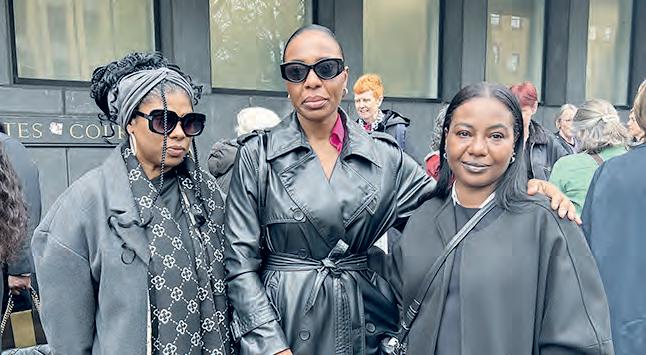

on Change.org is calling in the CPS to drop the charges ahead of the court case which begins on July 10 at Highbury Magistrates Court.
So far, over 35, 000 people have signed the petition.
Selma, Divina and Danae’s supporters are calling for the Black community’s support to ensure that the women’s actions in the face of racism are not criminalised, highlighting what they see as the broader issues of the discrimination faced by Black women.
and accountability measures would help, carried out by independent bodies and a more effective democratic oversight of policing, than we have had to date, by the communities that they serve.
“The public needs to share the story widely, be alert to police discrimination and use the complaints system to try and hold them accountable.
laws to charge a Black woman with racism for her factual statement to a White male police officer that he can’t understand her experiences as a Black woman, shows that those laws are failing.”
WELLBEING
Manifesto seeks to right the wrongs of Windrush Scandal
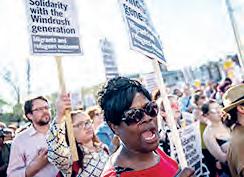
A NEW manifesto has been unveiled, calling on the next elected government to introduce comprehensive reforms aimed at addressing the injustices of the Windrush scandal.
This manifesto, launched by campaign group Action for Race Equality (ARE), outlines a series of what it says are fairer, more just systems aimed at rebuilding trust, and repairing and healing the ‘unconscionable trauma inflicted on Windrush Generation members and their descendants’ by the Home Office’s Windrush Scandal.
or arrest the attacker. Later, in a development that shocked the three women, the Crown Prosecution Service (CPS) made the decision that no further action would be taken against the assailant in relation to the incident.
And now they find themselves in the position of having to defend themselves in court after all being charged with common assault by beating.
CONDUCT
Danae has also been charged with a racially aggravated public order offence, in relation to alleged conduct towards a White British Transport police officer on the platform at King’s Cross. Divina has also been charged with a public order offence, but without the racial aggravation, again in relation to alleged conduct towards the same police officer at the tube station after the attack.
Now a petition, launched
One supporter of the petition, Rahila Gupta, told The Voice: “Only in a deeply racist and sexist criminal justice system are we likely to come across a Kafkaesque world in which victims have been turned into perpetrators. This incident confirms to us that despite a fair degree of institutional navel-gazing represented by the devastating Baroness Casey report which focussed on sexism and misogyny but also called out racism and homophobia in the police force, nothing has changed.
“The fact that the Casey report made similar findings on institutional racism to the Macpherson report (Stephen Lawrence Inquiry) 30 years ago further compounds our despair. When will the police learn the lessons?
“Recommendations on training and recruitment that reflects the communities served by the police have been implemented to a greater or lesser degree and have not made much difference.
More effective disciplinary
More specifically, people should sign our petition, donate to our fundraiser to cover our legal costs and protest outside Highbury Magistrates Court on the trial days, 10-12th July.”
“The police and CPS handling of this case serves to reinforce an unacceptable and racist status quo”
Feminist activist and campaigner Ali Ceesay of Project Support told The Voice: “Like all aspects of racism, the police and CPS handling of this case serves to reinforce an unacceptable and racist status quo. The specific officers responsible for failing to protect Selma, Divina and Danae and then failing to gather the evidence required to charge their attacker (collect evidence, witnesses etc) must be held to account.
The use of the anti-race hate
She continued: “Selma, Danae and Divina were not only standing up for themselves but for everyone subject to racism and poor policing. They are doing so at a huge personal cost, not only financial cost, but the inevitable impact to their wellbeing and health. Please support them by showing them what the police and CPS did not; respect, compassion and humanity. ”
Andrea Simon, Director of the End Violence Against Women Coalition (EVAW), said: This case is indicative of the challenges and failings Black women and girls’ routinely experience from a criminal justice system that is not dealing with its deeply rooted institutional racism and misogyny. Black and mixed heritage women tell of specific barriers to not only reporting abuse to the police but continuing with prosecutions due to mistreatment by justice agencies at every stage.”
She added: “No one should have to fear reporting violence and seeking justice because they may not be believed.”
l If you would like to support the campaign you can visit https://www.change.org and search for kingscross3
Developed in collaboration with grassroots advocacy groups under ARE’s three-year, £1 million Windrush Justice Programme, it incorporates insights from a survey of some 1,200 individuals conducted by Liverpool Advocates for Windrush Justice, and Windrush campaigner, Patrick Vernon OBE. Its key demands include transferring the Windrush Compensation Scheme from the Home Office to a neutral government department, ending hostile environment policies, granting citizenship to all Windrush families and launching a statutory inquiry into the Windrush Scandal.
Jeremy Crook OBE, Chief Executive of ARE, said: “The British people have seen far too many scandals that expose our own institutions and how they can abuse their power. In some cases, these institutions have ignored our laws including anti-discrimination laws, have caused deaths, and failed to take swift corrective action after the devastation they have wrought on ordinary people lives. The Windrush Scandal is one of these shameful and massive injustices.
“ARE stands with these courageous individuals and campaigners and urges the next Government to implement the actions in our important manifesto.”
Glenda Caesar, community campaigner and victim of the Windrush Scandal, said: “Windrush advocates and community leaders would like to remind all political parties that the Windrush Generation were invited to the UK to help rebuild Great Britain. They were proud to call themselves British.
“Remembering their vital contribution, we all ask the next government to end discriminatory legislation and unfair practices that foster hostility towards the Windrush Generation and their families. It’s time the Windrush Generation received full and rightful recognition as British citizens.”
l See page 28 for more on this story
ORDEAL: From left, Danae Thomas, Divina Riggon and Selma Taha
CAMPAIGN FOR JUSTICE: Selma Taha
DEMANDS: ARE has launched its manifesto seeking to make amends
Picture: Getty
Iwas asked to enter the consultant’s room. He looked very solemn. He met my eyes and although he half-smiled, I sensed a trace of pity.
A nurse sat quietly in the corner. In a low voice, the doctor informed me that they had found cancer cells in my bone marrow. For a short while, it didn’t quite register. I closed my eyes and repeated the doctor’s words in my head. I have cancer. I couldn’t move. The doctor added a few words. I couldn’t comprehend.
My brain had turned to mush. The nurse offered me a cup of water. How do I tell my family? I could hardly pick up my phone let alone punch in a number.
I passed my mobile over to the nurse and she called my wife. No reply. She was at work. The nurse rang my daughter. Calmly, she revealed my diagnosis. I heard my daughter crying on the phone. It was absolutely devastating.
SYMPTOMS
Sadly, my story isn’t uncommon.
1 in 4 Black men get prostate cancer, and we’re at double the risk of getting the disease compared to other men. It’s the most common cancer in men, but it catches so many off guard as early-stage prostate cancer often has no symptoms.
I didn’t have any symptoms that people usually associate with prostate cancer. I had no problem going to the toilet. Yes, I might get up in the night to relieve myself, but only once or twice. I only suffered from a nagging back problem that I thought was due to my work as a writer.
Unlike other cancers, when prostate cancer symptoms appear it often means the cancer has spread and it’s too late to be cured. Not only are Black men twice as likely to get prostate cancer as white men, we’re also twice as likely to die from it. So, we can’t allow our friends and loved ones to just wait for symptoms.
OPTIONS
At the moment, there’s no screening programme for prostate cancer. That means you won’t get a letter from your GP to let you know if you’re at risk of getting it. Lots of men don’t realise that it’s up to each of us to find out our personal risk of getting the disease, and to make an appointment with a GP to talk through options like getting a PSA blood test.
That’s why I’m working with Prostate Cancer UK to tell men it’s about time you checked your risk online.
The Risk Checker on the charity’s website is free, anonymous, and it takes just 30 seconds. It will ask you a short series of questions then tell you what you can do next.
Award-winning author says “prostate
cancer check isn’t the embarrassing test many men fear.”
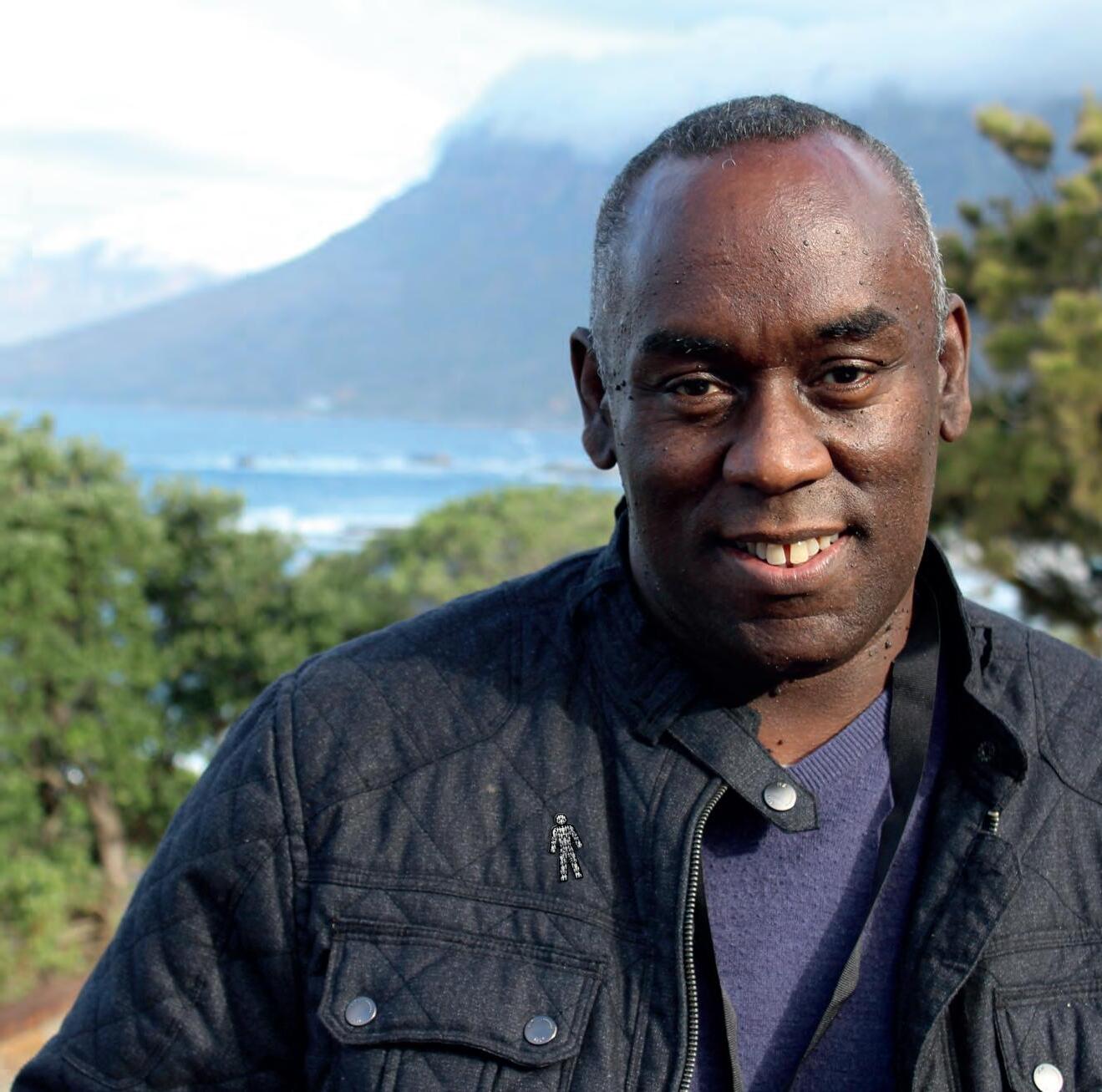
Friends of mine had said to me that they’ll never allow anyone to stick a finger up their rectum to check for prostate cancer.
But the good news is that nowadays the best test for prostate cancer is a simple blood test. You don’t need a finger up the bum to test for the disease anymore – even the experts say it’s no longer even a useful test.
Prostate Cancer UK recently did a survey to find out what was stopping men from checking their prostate cancer risk, and almost half (46%) of the men they
I had thought about getting checked, but felt that no symptoms meant no need. Worried about testing? If you’ve heard tales about the ‘finger up the bum’ and it’s made you nervous, you’re not alone...
spoke to thought they’d need a rectal exam to check for the disease. It’s a major misconception and one of the biggest barriers preventing men from doing anything about their prostate cancer risk.
So, we need to change the narrative and tell our dads, brothers, uncles, sons, and mates that they don’t need to worry about rectal exams – and that the first step is simply checking their risk online. The earlier you find prostate cancer, the easier it is to treat, and that could mean more years doing the things you love with the people you love. Prostate Cancer UK’s new advert tells this story with a man being visited by his granddaughter to be from
the future (voiced by TopBoy’s Jasmin Jobson), who tells him to check his risk so he can still be around to meet her when she’s born.
CHECKED
It reminds me of my own experiences with my kids. I advised my two sons to get themselves checked out as soon as possible. Don’t wait until you discover any symptoms. If you’re Black, whether or not you have symptoms, talk to your GP about a regular PSA blood test.
So, if there’s one piece of advice I can give you today: it’s about time you checked your risk. It might just save your life.

Alex Wheatle MBE is an award-winning author, including his latest, SUFFERAH, Memoir of a Brixton Reggae-Head. prostatecanceruk.org/riskchecker
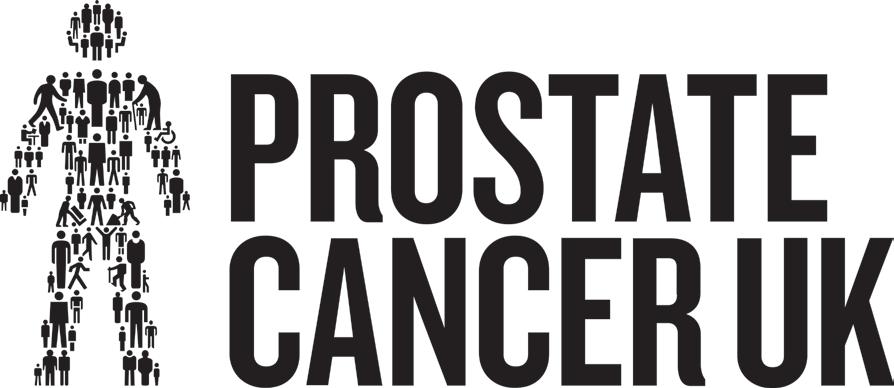
Alex Wheatle MBE speaks about his support of Black men checking their risk of prostate cancer
BLACK FAMILIES ARE BEING FAILED BY SOCIAL SERVICES, EXPERTS SAY


Leading community organisation, The Black Child Agenda, hits out at the UK education system. By Sinai Fleary
BLACK BRITISH families are having their children unfairly removed from family units to be placed into care homes miles away, leaving children vulnerable to County Lines gangs, according to a leading family support group.
When children are relocated to another city by social services, the lack of family support and contact is putting them at risk of being exploited and groomed into gangs and other criminal activity.
The Black Child Agenda, a leading community organisation that helps parents from the African Caribbean community whose children have been failed by the UK education system, says the problem is so widespread it is having to refer families to solicitors on a weekly basis because it can’t cope with the calls for help from Black families across the country.
Cheryl Phoenix, founder of The Black Child Agenda, told The Voice: “The amount of Black families that I know of, where social workers have bullied, harassed, falsified documents, and written documents and taken them to the court to actually have a child removed as an emergency order from the home is shocking.”
Phoenix said she knows of several Black families living in London who have had their children moved into care homes hundreds of miles away and the
children have ended up being exploited or pushed into gangs.
“Sometimes there is no valid reason why authorities move children from their families. Not only does it happen very often, but most of those children run away from where they have been placed to go back home. But sometimes, because they have been moved so far away, it is impossible for them to get back home. Some of these care homes are dens for paedophiles.”
FORCED
Phoenix has also noticed another alarming trend, of young Black mothers being “forced” to put their children into care.
She said: “They target young girls who are having children and force them to give their children away through forced adoptions, by falsifying documents to present to courts about parents. These things happen regularly.”
Phoenix acknowledges there are sadly some cases where the right thing to do is to remove the child, but she said these instances are rare. She believes Black families are more heavily scrutinised than families of other ethnic backgrounds and are not always given the support they need or are entitled to.
Phoenix spoke of a case in a West London borough she recently dealt with.
“A young Black mother who
had a “basic physical disability” contacted the school to let them know and contacted social services to say ‘I’m physically disabled can you support me to get my children to and from school? Then, social services came to her house, took away her children and put in an emergency care order. Where was the support?”
“Social workers are deliberately pushing for fathers to be out of the home, for children to be removed, to escalate Children in Need (CIN) plans, and then child protection. If you go to child protection and you do the slightest thing wrong, your child will be removed and placed into care.”
Phoenix said many of the issues her organisation deals with stem from a lack of cultural understanding of Black British families by social services and statutory authorities.
She added: “There is an element of racism going on. To be fair generally, when we are dealing with people from our own community who work with social services, they understand our culture and are more willing to work with us.”
“But even though they may look like us, when you are of Caribbean heritage and someone else is African heritage or vice versa, there are some cultural differences that go on that can also impact the way that we are treated.
The latest official government statistics published in December 2021, show theres been a 15 per cent increase since 2015 in the numbers of looked-after children (of children being placed in care)
There were some 80,080 lookedafter children (children in care)

“Parents can be bullied, cajoled or manipulated by the authorities into signing documents, and children can be coerced into saying things that are not true or that they haven’t said to actually get the results they want”
- Cheryl Phoenix
in England on March 31, 2020, compared with 69,470 in 2015.
Black children were more likely to be looked-after (seven per cent) and less likely to be adopted (two per cent) compared with their share of the under 18-yearold population ( five per cent).
Children of mixed ethnicity made up 10 per cent of looked-
after children and are 10 per cent of those adopted. This is again proportionally larger than their share of the under-18 population ( five per cent).
According to Phoenix, the education system also has a part to play in the over-representation of Black children in care.
She said many schools are using the “threat” of calling social services against parents who challenge the education system.
“Schools are using social services as a weapon against parents because a parent has challenged a school’s authority,” she added.
The community advocate has also noticed an increase in more young social workers working in the sector who may lack experience of working with culturally diverse families.
She said: “We are seeing a lot more young social workers who have just come through the ranks, just qualified and still on training making huge decisions about families lives and children. If you don’t get a good social worker, you are in trouble, it’s very easy to have your children taken away.”
With a growing awareness of the devastating link between being placed in care and ending up in prison, known as the schoolto-prison pipeline Phoenix wants Black parents to understand how being in care can destroy the futures of Black children – who already have so much stacked against them.
The 2022 data from the Office for National Statistics (ONS) found more than half (52 per cent) of looked-after children born in the academic year ending 1994, who attended school in England
TROUBLING: Statistics back up the evidence to suggest a larger proportion of Black families see their children taken into care
had a criminal conviction by the age of 24 years, compared with 13 per cent of children who had not been in care.
ABUSIVE
In 2017, 16-year-old Ayesha Richards, a looked-after Black child from Walthamstow, east London, told The Voice, about her abusive time in care.
She said: “Sometimes, I wish I was like other kids, because being in care messes with my emotions. I’ve always wanted my own family, friends, room and, most of all, my own privacy in a home I can call my own. Instead, I’m moved around the country until carers are fed up of me.
“I’ve been with carers who have hit and abused me, and I’ve cried so many times I’ve lost count.
“They all say the right things and put a show on in front of social workers, but when they actually get a kid like me, it’s a different story. It’s not my fault my parents couldn’t manage, but now because of them, I’m just another kid in care.”
Ayesha was taken into care at the age of seven when her parents’ marriage broke down in 2008, and since then she had not been placed in a stable home.
Phoenix wants families to understand their rights and the law when dealing with social services and education authorities because communication can go badly wrong.
“Parents can be bullied, cajoled or manipulated by the authorities into signing documents, and children can be coerced into saying things that aren’t true or that they haven’t said to actually get the results they want.”
Britain’s biggest business show is back for a golden 50th edition, returning to the ExCeL in London on the 13th & 14th of







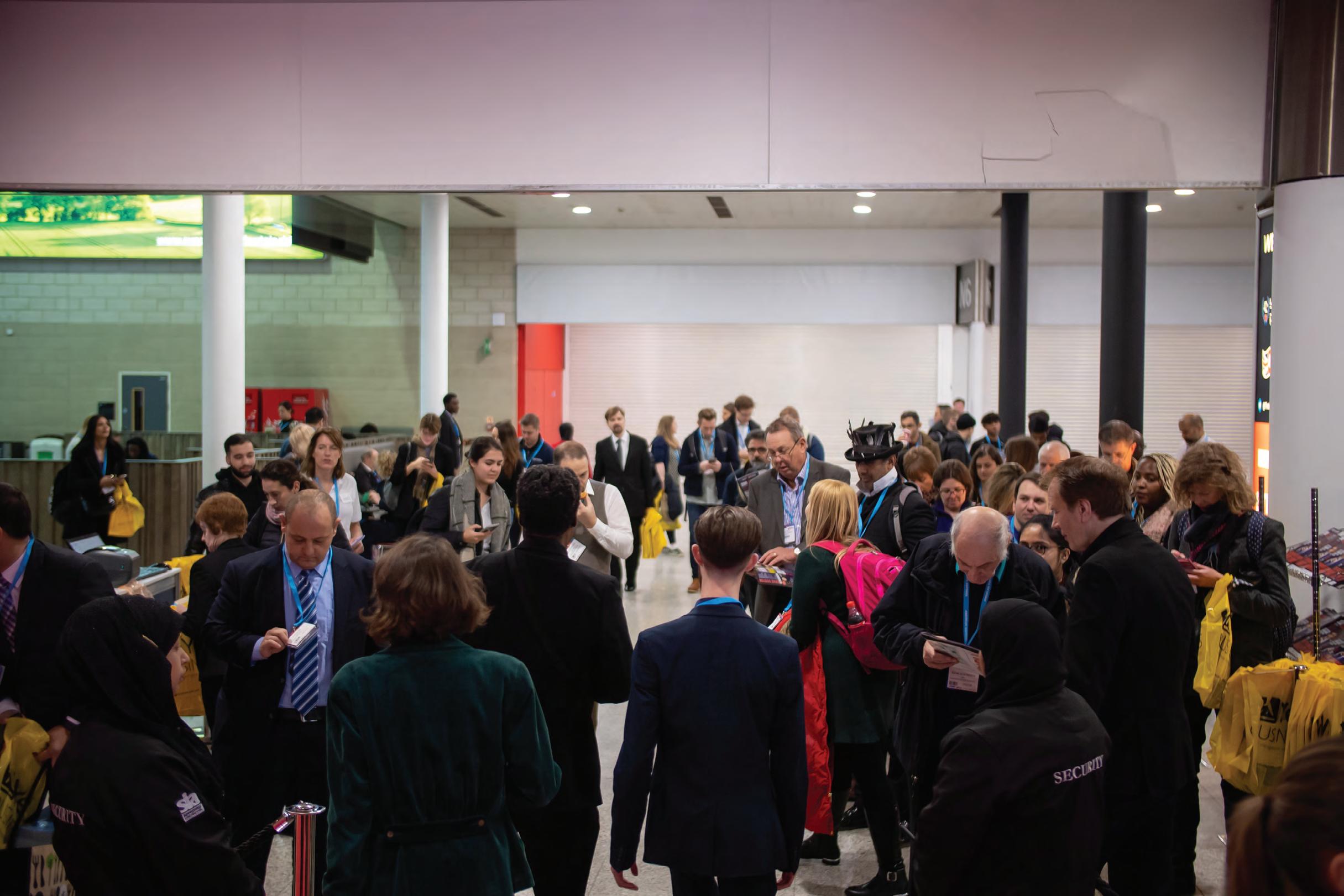
“Unmissable masterclasses covering everything from growing your business, cyber security, and developing your marketing skills...”














‘HIS VISION WAS ABOUT UNITING THE AFRICAN DIASPORA’
The Convention of Afrikan People will honour Malcolm X’s legacy and build unified future. By Richard
ACADEMICS, activists and campaigning organisations will gather in May next year at the Sir Dawda Kairaba Jawara International Conference Centre in The Gambia for the Convention of Afrikan People.
The event, organised by leading UK academic professor Kehinde Andrews, will honour what would have been Malcolm X’s 100th birthday and is aimed at uniting people in Africa and across the diaspora.
While Malcolm X is regarded as a towering figure in the fight for Black liberation, the convention has the broader goal of creating a global organisation for Black people that can speak with a strong, collective voice.
The event will also create a directory of Black organisations. Anyone can join while remaining a member of whatever group they are a part of.
By linking up organisations, leaders, activists and scholars from different parts of the world for next year’s convention, Andrews hopes to build stronger bonds and effective collaboration on projects and initiatives that will help to tackle the inequalities faced by people of African heritage.
Among the key issues on the agenda are the impacts of colonialism, combating systemic racism, and empowering Black communities economically, issues as timely now as they were in Malcolm X’s time.
Also likely to be discussed are Black people’s fight against police brutality, economic disparity, and political disenfranchisement.
Andrews says the event will bring to life Malcolm X’s vision of a global struggle against racial and economic oppression.
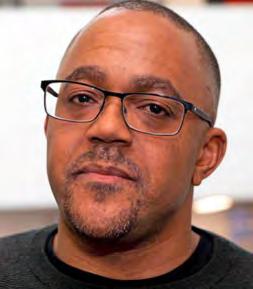
According to the Birmingham City University academic, the convention is aimed at educating, inspiring and mobilising participants with a stronger sense of what a global Black community can achieve.
IMPORTANT
“Malcolm X was the most important intellectual of the twentieth century for those interested in racial justice,” he told The Voice “On his 100th birthday, we are organising the Convention of Afrikan People to honour his legacy, and also to build it. We have founded the Harambee
Sudan
Organisation of Black Unity using Malcolm’s blueprint, and hope to build a global organisation that connects Africa to the diaspora to build a strategy. We welcome all Black-led organisations, activists and people who want to work together to move towards liberation.
“This convention is more than just honouring Malcolm X’s legacy. It’s about building the future he envisioned – a future where Black people are united, empowered, and free from the chains of colonialism and racism.”
The first Pan-African conference was held in London in 1900. Following this, a series of Pan African Congress meetings were held over the years.
But Andrews makes a clear distinction between the past, and the convention next year.
“Malcolm’s political vision was all about uniting the African diaspora. He said Africa will not go further than we will, and we will not go further than Africa. Our convention is called a convention for a reason; it’s purposefully not called a congress. The congress movement in the past started in Westminster, and went to France, New York and Manchester. Next
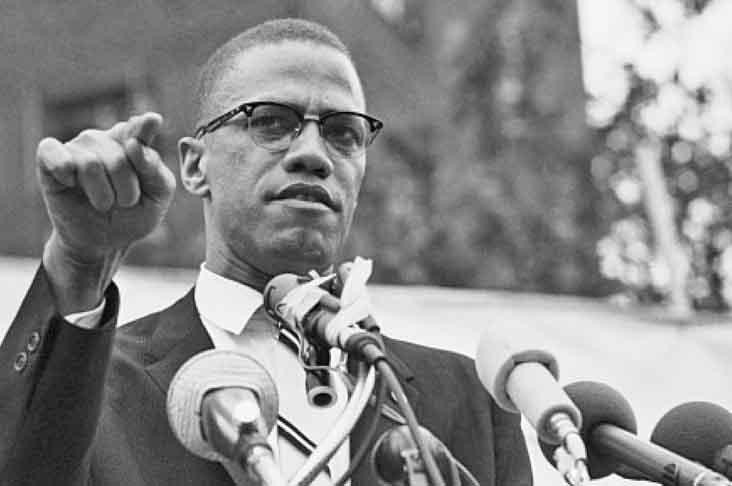
PAYING HOMAGE: The conference will honour what would have been Malcolm X’s 100th birthday
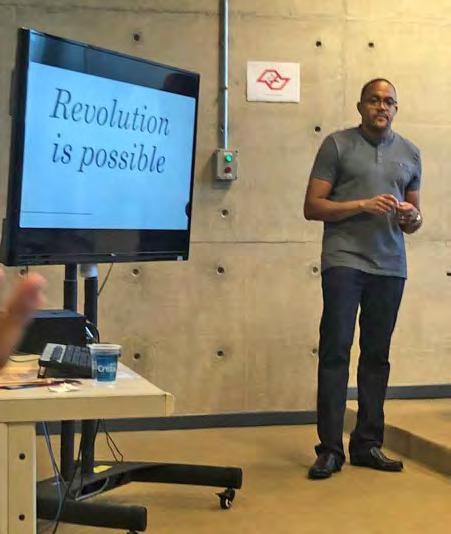
year’s convention is taking place in Africa.
“The only really official Pan African Congress, which was in Africa, was in 1974. The Pan Africa Congress movement really has been an elite bourgeois ‘best of the race’ kind of initiative, which led to things like the African Union which are extremely problematic.
“At the same time as the congress movement, Marcus Garvey’s organisation the UNIA (Universal Negro Improvement Association) was organising conventions, and these were for the masses.
RADICAL
“These were large-scale organisations. They were talking about Africa for the Africans and had this really radical vision of a global Black nation. And so the purpose of calling next year’s meeting a convention ties into some of the all African conferences that happened in the 1960s. There’s a tradition of trying to bring people together.”
Andrews went on to explain that the kind of organising and unity the convention seeks to promote is key to combating White supremacy globally.
“The big problem that we have is economic independence. This is why no country in Africa or the Caribbean is independent. Until we have an independent economy you can’t really have anything, the whole thing is about economics.
“First, our labour was exploited through slavery, then our
“We welcome all Black-led organisations, activists and people who want to work together”
minerals and resources. Africa is the richest continent on the planet by resources but the poorest continent because those resources have been leeched, so we really have to build differently.
The ultimate plan has to be how do you take Afrika out of the racist capitalist world system and create a different economy.
“Africa can do that, but they can only do that for a period of time, because, let’s be honest, the minerals and resources won’t last forever. At some point, the minerals are gone, and then you have a real problem.
Andrews says his hope for The Convention of Afrikan People is it becomes a critical milestone in the goal of achieving economic independence and breaking the chains of modern neo-colonialism for the African diaspora.
“The strategy we are building is very much modelled on the UNIA, and Malcolm X’s organisation the Organisation of Afro American Unity (OAAU) which says we need to come together and have
Professor Andrews hopes that the convention will become a milestone in the goal of achieving economic independence for the African diaspora
departments around education, health. So what we are saying to Black organisations is we are starting a Black united front.
“We are going to start a directory online so we can see what’s happening and ask how we are moving together. What is our strategy for health, education, and economics? Build that locally through chapters and also globally with the larger organisation.”
Andrews also has a message for those who are on the fence or undecided about supporting the 2025 convention.
“Just join. The Harambee Organisation of Black Unity is a membership organisation. You have to pay a fee to join. I always say freedom isn’t free. Think about that as your tax. That’s a tax you pay, and you pay tax all the time to White people. At some point we have to do something.
“Black people love to complain about everything. But there’s a great quote from Garvey. The greatest weapon used against the Negro is disorganisation. If we don’t have an organisation that can represent our interests, we may as well stop complaining. If you want to sit on the fence, then stop complaining. Stop saying it’s been done before and we tried it. It’s time to organise and it’s time to move. So get on board and let’s move.”
For more information, visit https://make-it-plain.org/ convention-of-afrikan-people
LEAD ROLE: Professor Kehinde Andrews
VISIONARY:
Members first.
At Nationwide, our members enjoy exclusive products, rates and rewards. We offer members £200 when switching a current account to us online.
Our new Member Exclusive Bond pays 5.5% AER/gross a year (fixed) for 18 months on balances up to £10,000.
Nearly 4 million of our members will receive our £100 Fairer Share payment this year.
Our customer service is the best of any high street banking provider. And every one of our branches will remain open until at least 2028.
Membership. It’s at the heart of what makes us a good way to bank.

BLACK FEMICIDE CRISIS MUST BE TACKLED BY ALL IN THE COMMUNITY
It is down to us to change the narrative around violent crime and abuse towards women if we want to save lives.
By Sinai Fleary
AHORRIFYING Black femicide crisis in London needs to be urgently tackled by the entire community, equality campaigners have said.
Femicide is a term used to describe the hate crime of killing women and girls, because of their gender.
In May, new figures obtained by the PA news agency from the Metropolitan Police – in a Freedom of Information request – showed that of the 21 femicide victims recorded by the Met Police in 2022, nine (43%) were Black.
Worryingly, data for 2023 shows that Black women made up 62% of the total femicides listed for that year.
With Black women only making up 14% of the population in London – according to the 2021 census – the figures show that Black women are being disproportionately targeted in these horrific murders.
Among the victims is Cassandra McDermott.
In October 2001, the 19-yearold was murdered by her exboyfriend Mario Celaire, at the family home where she lived in Norbury, south London.
Her heart-broken mother, Jennifer says Black femicide rates
have reached crisis level and need to be urgently addressed.
The CEO of the Cassandra Centre, a safe place that provides counselling and support to young adults and teenagers who have been victims of domestic violence and abuse told The Voice, she is disappointed no political party has addressed this issue ahead of the General Election with concerns growing concerns for the safety of women and girls in the capital and across Britain.
“The general election takes place [this] month and I have not heard any of the parties addressing this issue
acknowledges the intersectionality of racism and sexism affecting Black women.”
Speaking about her daughter’s murder, Cassandra said: “The incident took place after an argument, and he knocked her unconscious and left her to die of asphyxiation.
“The perpetrator was charged, taken to trial, but on the first trial the juror found him not guilty, partly due to the lack of forensic evidence.”
Celaire was acquitted of Cassandra’s murder following a trial in 2002.

He was only caught when he attempted to murder another 19-year-old girlfriend with a hammer, in 2007.
The campaigner is determined to provide education and raise awareness about domestic abuse. The centre provides vital counselling services and provides referrals to third-party services for those affected by domestic abuse.

minimum term of 32 years, earlier this year. Nur’s ethnicity is listed as Black in the figures.
The Met’s 2023’s findings show femicide occurs in all communities in Britain and the perpetrators can be from any racial background.
But what does make stark reading is that of the eight Black femicide victims listed – where their perpetrator’s race is known – seven were killed by Black men – who either previously knew their victims or had some sort of relationship with them.
CAMPAIGNER: Rasheda Malcolm is fighting for change
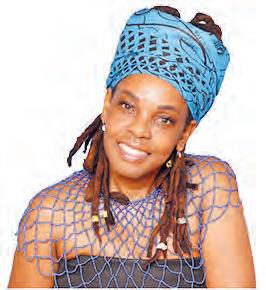
However, the assandra Centre has yet to secure a safe space in which to operate and carry out its work in supporting vulnerable women and young girls.
“Since 2023 we have had to move from place to place,” she said.
One of the Black women named on list from the Met Police’s recent
femicide statistics is 29-yearold Felecia Cadore, who was savagely attacked in her Croydon home on June 9 last year.
“I’ve met very positive brothers and I want our men and our boys to be a part of this and not feel left out”
The mother-of-four, whose dependent children all live in Grenada, died six days later in hospital from her injuries.
Hussain Haron, 22, of London Road in Mitcham, who according
to the Met’s data, is Black and Felecia’s ex-boyfriend, has been charged with her murder.
Another victim making up the data is Elianne Andam who was fatally stabbed on her way to school in south London last year.
In March this year, a teenage boy admitted killing the 15-yearold schoolgirl at a bus stop in Croydon.
The 17-year-old boy, who cannot be named for legal reasons, and believed to have been a friend of Elianne, pleaded guilty to her manslaughter but denied murder. He is due to go on trial in November for Elianne’s murder.
Also listed is Johanita Kossiwa Dogbey who was attacked in Brixton in May 2023, from behind by a stranger.
Her killer, Mohamed Nur, 34, was jailed for life with a
Rasheda Malcolm, the founder of Women Development in Literature and Empowerment (WILDE) Foundation, a platform created to promote, educate, empower and heal victims and survivors of all types of abuse, says that tackling the issue must involve Black men.
“We need boys and men onboard to make this effective and to make it work,” she said.
“I’ve met very positive brothers and I want our men and our boys to be a part of this and not feel left out or that we are pointing fingers generically, we are not.
“But we know there is a lot of it going on.”
Malcolm, who is also a women’s and girl’s rights campaigner said her late life partner “was her biggest cheerleader” in her advocacy for women’s rights.
VICTIMS: Left, Johanita Kossiwa Dogbey and Elianne Andam are just two of the Black women to have been killed
‘WE NEED EQUAL JURIES TO GET BETTER JUSTICE’
The Justice 4 Dea-John Reid campaign is calling for change in the law that will reflect more diverse juries. By Sinai
ACANDLELIT vigil was held earlier this month to mark three years since a 14-yearold Black boy was stabbed to death in Birmingham after being subjected to racist abuse.
Dea-John Reid was stabbed to death on College Road in Kingstanding, Birmingham on May 31, 2021.
He was “hunted down” by a mob of White men and teenagers – who shouted racist abuse at him before he was fatally stabbed in the heart which was caught on CCTV footage.
A trial in 2022, heard how Dea-John was called the N-word and a black b*****d, and was targeted in the “revenge attack” after a member of his group had been accused of trying to steal a bag from them hours before.
The 15-year-old who chased the teenager in his final moments was cleared of murder, but convicted of manslaughter during the trial at Birmingham Crown Court.
Fleary
said: “With a jury of 11 White people and one non-White person it doesn’t matter that the person is Asian, they don’t stand a chance whatever they got to say anyway.”
He added: “May 31, 2021 brought shockwaves across the city. When his mother arrived, got out of the taxi and saw the blue tent she almost collapsed. She said, ‘I want to go and hug my baby’, and was told she couldn’t.”
CAMPAIGN FOR JUSTICE
In July 2022 Kirk Reid, Dea-John’s older brother, told The Voice that the campaign surrounding his younger sibling’s death is about receiving long overdue justice after no Black jurors were involved in the trial.
“We didn’t get any justice and I’ve seen what my mum’s been through [since Dea-John died].

The attacker, who cannot be named for legal reasons due to his age, was captured on CCTV wearing a balaclava and gloves, along with four other White youths and adults, who were armed with a large kitchen knife and a wrench.
George Khan, 39, and Michael Shields, 36, along with two other teenagers were all acquitted of murder. A sixth defendant, Hollie Davies, 36, was cleared of assisting an offender.
The Justice 4 Dea-John Reid campaign is calling for change in the law that will reflect more diverse juries and for the introduction of a Race and Civil Rights Bills to properly address the racist abuse Dea-John was subjected to.
Speaking at the vigil on May 31, the family’s spokesperson, Bishop Desmond Jaddoo, pictured inset,
“So this campaign will shine a light so we can get equal juries and that you won’t be judged for the colour of your skin,” he said.
“One of the accused went up on the stand and said, ‘Yes, I was racist,’ and they [the jury] didn’t do anything about that.
They said, ‘I called him a n*****r’ and they just looked past that.”
Dea-John’s mother, Joan Morris, previously told The Voice that she didn’t “get any justice” over her son’s killing.
“It’s about justice [this campaign]. My son didn’t get any justice,” she said.
“So I need to know why it [his death] is not considered murder.
If someone chase someone with a knife and stab the person and the person don’t die on the way to hospital, he die there right on the spot and they say it’s not murder, that is manslaughter. So, what is murder?”
For more information on the Justice 4 Dea-John Reid Campaign visit: instagram.com/ justice4deajohnreidcampaign
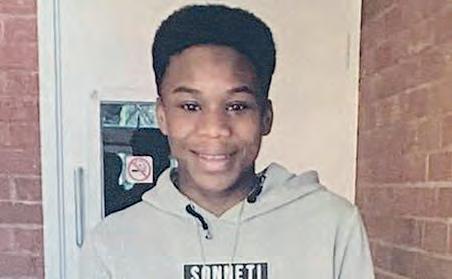

‘HUNTED DOWN’: Dea-John Reid, 14, was killed in Birmingham on May 31, 2021
Ebony Villas & Elixir Heights Rent Free For Life - Luxury African Homes

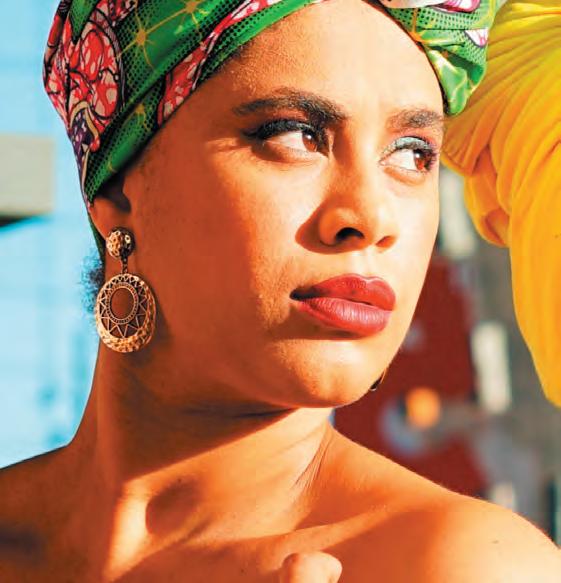
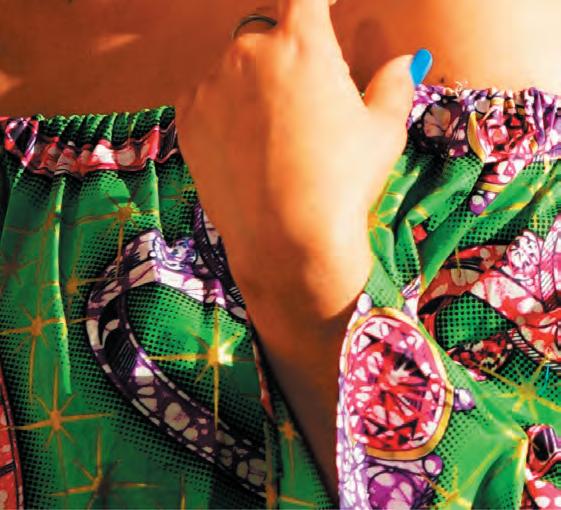
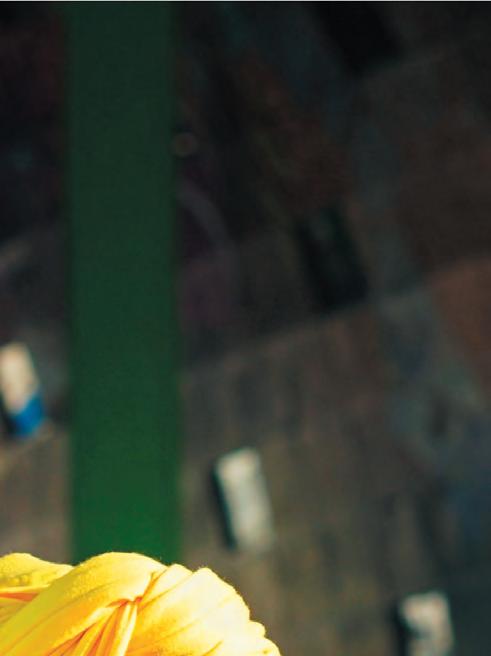
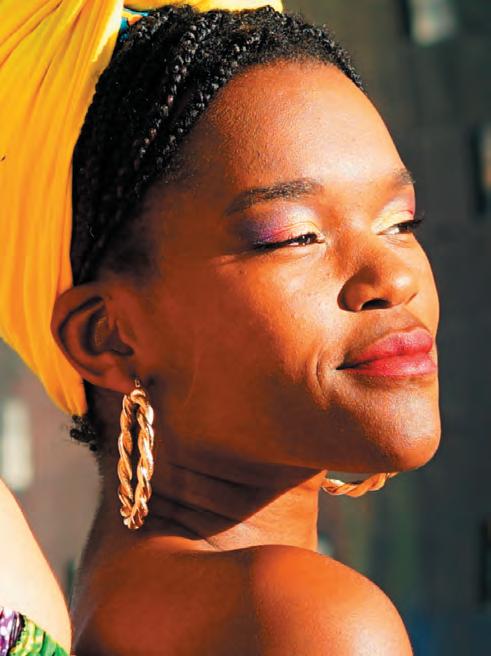
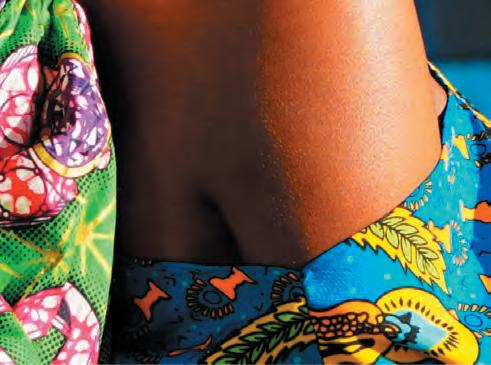

Morizon International has recently incorporated
Ebony Villas and Elixir Heights in order to bring about the greatest and most innovative African Housing Development Projects ever seen before. Where each of the 1 Million+ Family Homes and Apartments we intend to build across 6 countries in Mother Africa, will all be built to modern standards and will come with Ensuite Bedrooms, Private and Communal Swimming Pools, but most importantly, they will all be completely RENT FREE FOR LIFE for all Successful Applicants.
In addition, all Shops, Stores and Business Premises will also be RENT FREE FOR LIFE for
any Residents wanting to open their own business, which will be very bene cial to those with an entrepreneurial spirit, as the constant worry of paying rent has been removed from both their home and business premises. is will also create many thousands of employment opportunities for Diasporans that wish to move to Africa and for the Local Residents.
e First Phase of each development is predicted to be completed within 3years+ from the date we achieve the number of Housing Applications needed.
Morizon international is a (Black Owned) Financial Technology Corporation which was founded by Amanda Joseph C.E.O and John Bennett C.O.O, who are both born in the UK and of Caribbean








descent. ey are currently providing the Morizon VISA CARDS to their customers and will be o ering Morizon Gateway services for Shops and Stores very soon.
is revolutionary Financial Corporation was created to provide a Continuous Funding Solution for various Housing Projects,Humanitarian Communities,Churches, Charities and Sports Clubs, through the Morizon Community Pro t Sharing Program, whereby Community Members or Supporting Fans simply use the Morizon VISA Card to pay for Goods and Services in Shops and Stores or when paying Household Bills.
Amanda and John are true visionaries in the Financial Corporate World and have been called geniuses by many of their peers and banking partners. It is truly a blessing to see these two dedicated individuals leading




the way with their innovative RENT FREE FOR LIFE Housing Solutions and their Community Pro t Sharing Programs, that will nancially empower thousands of communities worldwide for years to come, with an array of Financial Solutions to help them achieve their goals.
Morizon have managed to bring onboard Supporting Celebrities to help with their marketing campaign, like (UK’s Renown Actor BRIAN BOVELL), (Reggae Star TONY GAD from ASWAD) and (LEEE JOHN from the awesome and timeless group IMAGINATION), who has recently had an N01 Hit in the UK Soul Charts. More celebrities are now expressing their interest to o er their support, which will inevitably ensure their success.
Amanda and John fully understand that all Black Communities around the world need many more trusted Black Owned Financial Corporations like Morizon to back them in their



endeavours of empowerment, whilst simultaneously helping other communities to achieve their humanitarian goals to make a fairer world for everyone.
To nd out how your Community can nancially bene t from the Morizon Pro t Sharing Programs, simply visit: www.morizonltd. com and click on the ‘Community Program Tab’ in the menu.
For more details on how you can secure your RENT FREE FOR LIFE Luxury Home in Mother Africa visit: www.ebonyvillas. com & www.elixirheights.com, or you can join their Sunday Zoom Presentations where everyone will have the chance to speak directly with the founders Amanda and John to ask any questions and to hear more about how you can get involved.
e Solution Is In Our Hands.










BUILDING A LEGACY OF FAIRNESS AND GROWTH
WITH the election days away, the new Prime Minister must prioritise financial inclusion to address ongoing disparities, especially for people of colour (POC).
It is time for radical measures that tangibly involve us in critical discussions to drive economic well-being for every UK citizen.
We have suffered ridicule, oppression, and systematic denial of financial opportunities for too long in an untenable, degrading structure designed to enslave and maintain an oppressive class structure which leaves POC at the bottom of society, just as in colonial Britain.
As a first-generation migrant, I have personally experienced racism from financial institutions both as a person of colour and as a Black entrepreneur.
The moment I set foot in the UK I was branded with an invisible scarlet mark: ‘high risk.’ It didn’t matter that I had a solid background, a high education and fantastic international exposure. In the eyes of financial institutions and the UK system, I was an inconvenient, unviable, unwanted, and unworthy immigrant.
It was as if my very existence was a liability, guilty until proven innocent – and rarely, if ever, proven innocent. This systemic prejudice didn’t just deny me opportunities; it condemned me to a perpetual state of financial limbo.
Financial exclusion is a crisis affecting millions of people, locking them out of the financial systems that should support them.
This exclusion perpetuates cycles of poverty, limits economic growth, and destabilises communities. Every person should have access to affordable and essential financial services— bank accounts, loans, insurance, and investment opportunities.
SYSTEMIC FINANCIAL APARTHEID
POC face systemic barriers in accessing financial services, including discrimination and a lack of tailored financial products.
Many migrants like me feel excluded and typically come from cash-based economic backgrounds. So, the learning curve is exceptionally steep when you are immersed in the
The new Prime Minister must dismantle financial apartheid and pave the way for a truly inclusive economy

UK’s credit-based economy, which is heavily reliant on a credit history to access decent financial services. Effectively, no one has ever bothered to create tailored financial education to serve this market.
We are not accounted for, and there is no real appetite to account for us. We go unseen, set aside by almost every player’s inherent bias as poor, needy, and unable.
It’s time for financial institutions and anchor organisations to actively engage with marginalised communities and develop products, services, and education
tailored to their needs. We must combine education, signposting, curated products and services to address the intersecting issues causing poverty and financial exclusion.
BANKING CRISIS
Millions of adults in the UK remain unbanked, teetering on the brink of economic precarity. This is particularly alarming among POC. Research reveals that 35 per cent of Black African and 30 per cent of Bangladeshi households in the UK lack basic bank accounts.
These communities face
manifesto
Rethinking measurement for meaningful inclusion
Firstly, I propose an innovative approach to measuring diversity that supersedes traditional metrics to align with financial inclusion and broader diversity, equity, and inclusion goals. The challenge with current diversity measurements is their lack of uniformity and depth.
A comprehensive financial inclusion framework: The new Government must monitor financial access across various demographics using advanced data analytics to collate and visualise financial access data nationwide, integrating inputs from banks,
FinTech companies, and community feedback. It will provide policymakers with information on financial inclusion and highlight areas needing urgent attention.
Inclusive finance seed fund
I also believe an ‘inclusive fund’ should be established to encourage the development of financial products and services designed specifically for historically underserved communities.
A community financial advocates program
I believe we need a ‘Community Financial Advocates Program’ that Empowers local leaders and advocates to play a pivotal role in enhancing financial literacy and service uptake.
systemic barriers in banking and securing loans, insurance, and credit, often exacerbated by discriminatory practices and a lack of culturally competent financial services.
The financial requirements of POC are currently not adequately met by the larger financial services industry. According to Fair4allFinance, business models are not tailored for low-income communities and inherent discrimination already exists within the system, such as postcode risk scoring, with algorithmic decisions that drive
Green bonds for equity— rewarding allyship and environmental sustainability I propose a unique financial instrument: green bonds for equity, to promote financial inclusion and environmental sustainability. This instrument will financially incentivise and reward proactive allyship and collaboration between White counterparts and people of colour
Implementing a UK Community Investment Act
I propose a “UK Community Investment Act” that would obligate UK financial institutions to support and participate actively in financial inclusion efforts, ensuring equitable access to financial services for all
STAIN ON OUR SOCIETY: The financial exclusion of People of Colour perpetuates poverty and hinders growth
financial services, resulting in generic services and raising barriers and costs associated with accessing financial services.
THE REAL COST OF INACTION
The continued financial exclusion of People of Colour is not just a social injustice; it’s an economic disaster. Billions are lost annually due to the underutilisation of the entrepreneurial potential within these communities. Racial inequality, including discrimination in employment and pay disparities, costs the UK economy approximately £24 billion a year in lost GDP.
The underutilisation of the entrepreneurial potential within these communities exacerbates this economic loss. By not harnessing this potential, the UK forfeits billions annually, which could otherwise invigorate local economies, increase tax revenues, and reduce welfare dependency.
These businesses often face higher rates of loan rejections from mainstream banks compared to their White counterparts.
This systemic financial exclusion limits their potential expansion and contribution to potential job creation and economic activity within these localities.
Black people are exceptionally entrepreneurial, with a higher rate of business creation than their White counterparts. However, they face systemic barriers that stifle their potential and success.
Ethnic minority entrepreneurs are three times more likely to be denied loans than
entrepreneurs. When they do receive funding, it s often at higher interest rates, which hampers their business growth and longevity.
If barriers were removed and minority-owned businesses grew at the same rate as other startups, their increased profitability and employee base could significantly contribute to the national and local tax base.
THE ELECTION
The new Government stands at a critical juncture to redefine and drive forward the financial inclusion agenda.
This is a unique opportunity to implement targeted policies and practical initiatives that involve strategic partnerships, deeply embedded in the communities they seek to serve. It is imperative that both the community, and thought leaders like us, are an integral part of this process, ensuring that initiatives are grounded in real-world needs and expert insights.
Political parties vying for power must demonstrate a solid commitment to making financial inclusion a cornerstone of their policy agenda. The new Government has a chance to transform the landscape of financial inclusion
A FINAL WORD
Financial inclusion is a fundamental human right that must be a major election issue in dealing with Britain’s economic challenges. Implementing focused policies, infrastructure investment, and financial literacy promotion is not a luxury but a must.
The financial exclusion of People of Colour is a stain on our society and a massive economic blunder. The time for empty promises and superficial changes is over. We demand genuine, impactful actions to dismantle the financial apartheid and pave the way for a truly inclusive economy. Government, the ball is in your court. Together, we can dismantle the hidden financial apartheid and build a fairer, stronger UK.
l Tynah Matembe
Tynah’s
























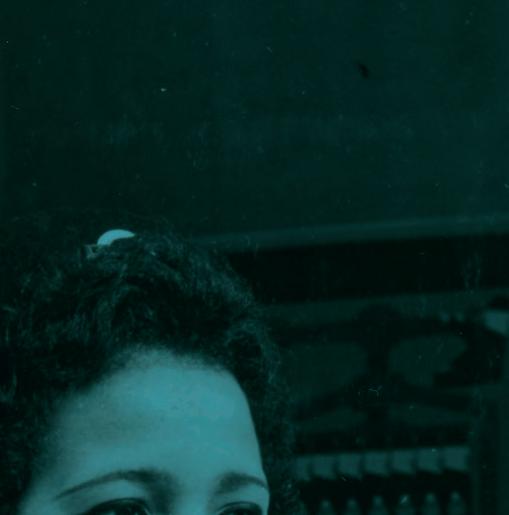
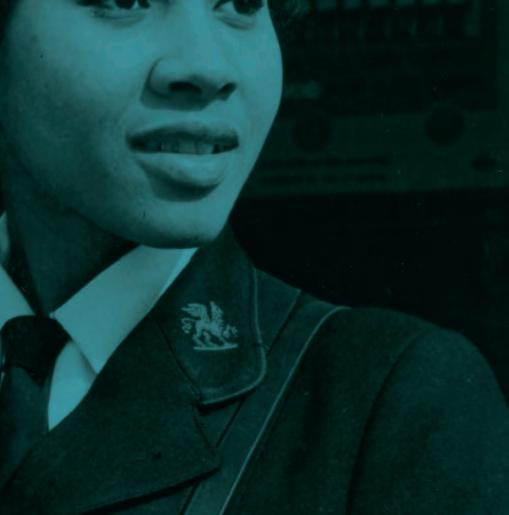
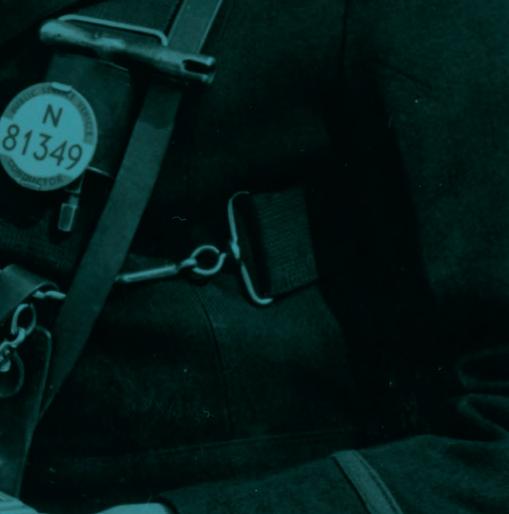

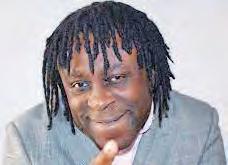
Abbott’s big influence on this month’s election is something no one can underestimate
LET ME ask you a question. What do you call a Black woman who slays not one but TWO ame-throwing dragons hands down in a very British election Game of rones?
Diane Abbott.
Let me ask you again.
Who is the fairest of them all?
Diane Abbott.
Even Labour can’t say fairer than that.
She was the story in the beauty contest that was the run-up to the General Eection on July 4. She owns the moment. An historic moment.
Diane Abbott has never been more popular. Shes as close to being a national treasure as any MP.
We’ll have to give Sir Keir Starmer the credit for it. Ironically, given how she was kept ‘hanging on a string’ like loose ends for ages.
But when it came to dragonslaying, she did a proper St George jobbie on the re ghters. Not just the Labour leader. Even Rishi Sunak was silenced. But it is Labour rather than the Tories who will pay the price.
Most people agree that the way Diane was treated by Labour over the past year was shocking and disrespectful to the historic gure she is, as the rst Black woman MP in these here British Isles, and that it has damaged Labour irreparably in many minds.
Keeping her waiting for a year to learn her fate was no way to treat a lady. Not least when her fate seemed to have been decided the moment she pressed the send button on her computer to unleash her controversial comments on race and racism and whether travellers and Jewish people su er it like we do.
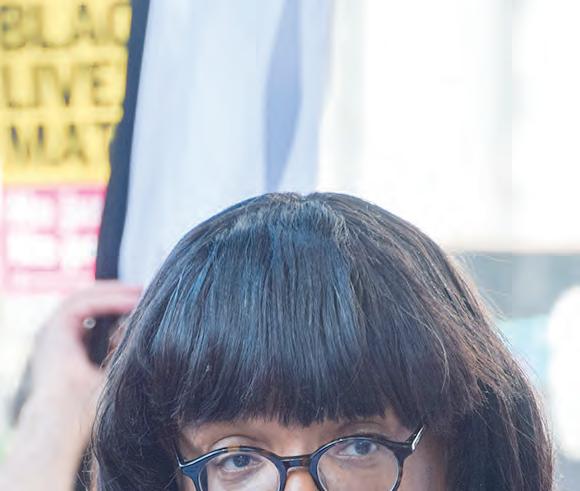

DIANE’S FIGHTING THE GOOD FIGHT!
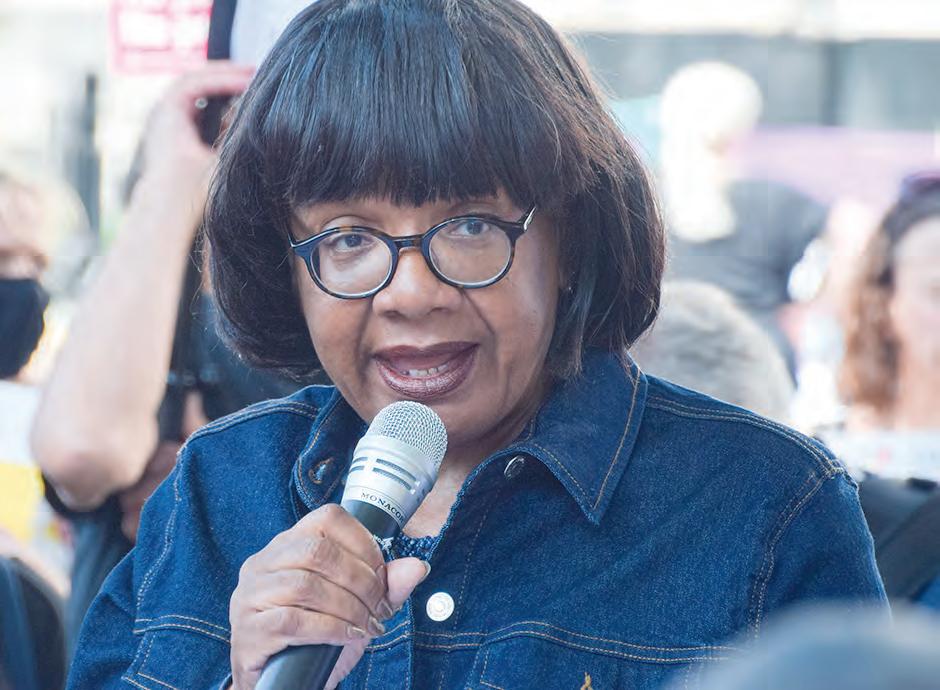

party decided to throw her under a bus (not literally, obviously).
radio phone-in recently.




that fair city.




Sir Keir could have told her that her goose was cooked on day one, but instead he let it drag on, and on, and on, and had her jumping through a series of never-ending hoops that left her hanging on, suspended in limbo for 365 days and counting.
Instead of putting an arm around her and showing support for her amidst the racist and misogynistic abuse she su ers continually, the leadership of her
Most people agree that the way Diane was treated by Labour over the past year was shocking and disrespectful to the historic figure she is
After all, many of us don an arm around her either to
Even I thought she wouldn’t make it and that Starmer would have the proverbial last laugh. After all, many of us don’t put an arm around her either to support her when she is being abused.
We’ll have to wait until the next general election to see if the Me nah vote Labour again...” stands the test of time. But one aspect of the Diane Abbott e ect that we may see play out sooner is her legacy.
Lord Mayor of Leeds, Cllr Abigail Marshall Katung, the rst African to be elected to Leeds City Council. Mayor Brenda Dacres in Lewisham
concerned about whether they will in the future, attract the Diane Abbott-inspired talent among young Black politicians that they have thrived on, relied on and taken for granted – until now.
switched when Diane decided to take the good ght to the
But then the narrative switched when Diane decided to take the good ght to the Labour leader and let it be known publicly that she was still sitting in limbo, weeks before the election, not knowing whether she was a Labour candidate for the seat she had held with a huge majority for coming up to 37 years.
What a cheek! at’s when things kicked o .
It was no longer a battle of Sunak v Starmer but of Abbott v Starmer and, starting with the ‘sista collectives’ and the activists and then spreading right across the great Black British public everywhere I went, people were saying “Me nah vote Labour again after the way they treated Diane Abbott.”
You only have to look at the numbers of Black women in parliament today to see the impact of that legacy.
And it is Labour more than any other party which has bene tted from that.
Until today, Diane Abbott’s election in 1987 continues to inspire the up-and-coming generation of Labour women who are rising through the ranks to take prominent positions in local and national government.
She is never given the credit for it by her party, otherwise she would have been handled with care. If Labour was to take a poll of its Black candidates and MPs, it might get a wake-up call of how inspiring she is and has been to many of the future stars of Labour politics like:
London Councillors: Tamar Barrett, Eunice O Dame, Brigitte Graham, Alisa Flemming, Ibtis Adem, Jacqui Dyer, Maria Kay, Yemisi Anifowose, Ese Erheriene, Ayesha Lahai-Taylor, Rachel Onikosi, Kim Powell, Marcia Cameron, Christine Banton Felicia Opoku and Michelle Simmons-Safo, Niki Adeleke.
Margaret Greer, Chinelo Anyanwu, Concia Albert, and Doris Jiagge
I would hazard a guess that there isn t a single one of these future parliamentary stars in the making who wasn’t inspired by Diane Abbott s political achievements when they were drawn to the Labour Party.
e new president of the NUS (National Union of Students) Amira Campbell, for example, is the kind of future star of parliament that Labour would have in the past expected to come their way.
But if people are saying Me nah vote Labour” because of the way the party treated the most historic Black woman in British politics, then I wouldn t be surprised if the NUS president’s political home, and the political home of many other Black Britons, is elsewhere.
● Dotun Adebayo, Britain’s most celebratedBlack broadcaster, is known as the King of the Nighttime Airwaves. All views hereare his own. Listen to him overnight on BBC 5 Live from 1-5amSaturday mornings - Monday mornings & 1am4am on BBC Radio London (Wednesday to Friday mornings). Follow him on X, formerly Twitter: @dotunadebayo the historic gure she is, as aiting way to treat a lady. Not least
ose were the exact words of Dorothea in Bermondsey in south London when she called up my
Yvonne Mosquito, who served as the 109th Mayor of Birmingham and only the second Black woman to hold the post in
And you would have expected that legacy to roll and roll and roll in the way that the ANC’s Nelson Mandela legacy (despite the recent South African elections that gave the party a bloody nose) has kept them in power for more than thirty years.
But after the Diane Abbott scandal, Labour should be
AFRICAN CARIBBEAN SUSTAINABILITY & INVESTMENT SUMMIT (ACSIS)
Away from the much talked about African Caribbean Sustainability & Investment Summit (ACSIS) to be held in London, November 21-23, 2024, ACSIS continues to gather momentum.
ACSIS aims to bring together key diaspora stakeholders from the African and Caribbean business communities of the United Kingdom to discuss and strategize sustainable investments across various sectors.
UK based entrepreneurs with heritage links to Ghana, Kenya, Uganda, South Africa, Rwanda, Saint Lucia and Jamaica will participate in panel discussions, roundtable discussions and workshops to discuss business best practice on fours sectors, Agriculture,
“African and Caribbean business panel discussions...”
Cybersecurity, Climate Change and Tourism.
Presentations will be delivered over three days at three separate venues. Day I will focus on high-level roundtable meetings ‘Business Meets Diplomacy,’ involving African and Caribbean High Commissioners / Ambassadors and diplomatic sta , at the UK House of Lords. Day II will focus on cybersecurity, tourism and investment at Lloyds of London; and Day III will address matters pertaining to agriculture, climate change and diaspora engagement.
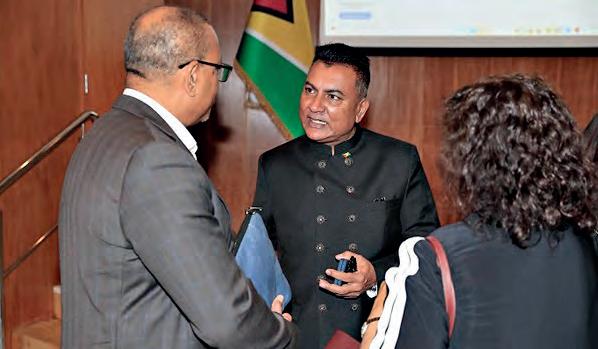
Chairman of ACSIS, David F. Roberts, expressed how delighted he is at the level of interest coming from the seven participating countries and the importance of the delivery of an academic White Paper on the impact of cybersecurity on diaspora business.
Roberts is also quite pleased at the recent signing of a Memorandum of Understanding (MOU) with world renowned Leaders Without Borders Development Centre (LWB) a highly respected global organisation focused on improving leadership and entrepre-
neurial skills within the African communities while creating an environment for trade and investment. LWB Founder and Principal Partner, Amb. Dr. Hillary Emoh deemed the partnership ‘A critical and timely step in the right direction and this union sets the stage for untold possibilities in Africa and the Caribbean.’
ABOUT
AFRICAN CARIBBEAN
SUSTAINABILITY & INVESTMENT SUMMIT (ACSIS) ACSIS was conceived following the suc-
cessful Guyana Diaspora Sustainability & Investment Conference (GDSIC), November 18th and 19th 2023 where one signi cant outcome was the statement by London Stock Exchange Group (LSEG) Director of Sustainable Finance and Investment, Mr Ibukun Adebayo, which suggested he had ideas about how the Exchange could help Guyana improve its international credit rating. at event also witnessed presentations from senior Guyana government ocials, Dr Peter Ramsaroop, Chief Investment O cer and Ms Rosalinda Rasul,
Head, Diaspora A airs Unit. Feedback from GDSIC inspired the genesis of ACSIS to broaden the concept scope to include Africa thereby bridging the socio-economic and cultural gap that inhibits optimal trade and investment between Africa and the Caribbean at diaspora level.
For details on how to register for the Summit or buy tickets Email: enquiries@ africancaribbeansummit.com or visit www.africancaribbeansummit.com

SIDS are vital for the whole of humanity and the planet we share, so it’s crucial our richer nations come together and provide them with support
IN THE last few weeks, more than 100 people have died from oppressive heat in India.
In Africa, while some countries are experiencing torrential rains, others are suffering from terrible droughts.
At the recent Commonwealth Health Ministers Meeting in Geneva, collectively we considered how climate change is increasing the incidence of vector-borne diseases – not only spreading malaria but other dangerous diseases, like the recent dengue outbreak in Samoa.
Commonwealth leaders have been calling for global action on climate change since 1989, before a process for international negotiations even existed.
In line with their calls, climate scientists have long warned the world of the need to limit global warming to 1.5 degrees Celsius to avoid dangerous tipping points which could lead to irreversible damage.
Worryingly, in February 2024, we breached this critical milestone. Global temperatures surpassed 1.5 degrees Celsius over the past 12 months, making it the hottest year on record.
The World Meteorological Organisation warns this record could be smashed again this year, which will lead to the loss of more lives and livelihoods, and place national systems and services under intense pressure.
This pressure is disproportionately borne by Small Island Developing States (SIDS). Despite making up only three per cent of the world s land area, SIDS are vital for the whole of humanity and the planet we share.
They safeguard 11.5 per cent of the ocean’s Exclusive Economic Zones, which include seven out of 10 coral hotspots, and 20 per cent of all terrestrial bird, plant, and reptile species.
Yet SIDS experience five times more climate-attributable deaths due to extreme weather events and, when shocks hit, our SIDS are hit hard.
A cyclone, or a hurricane, can knock a small or vulnerable country off its growth trajectory for years, if not decades. In 2017, hurricane Maria devastated my
Baroness Patricia Scotland, Secretary General of the Commonwealth
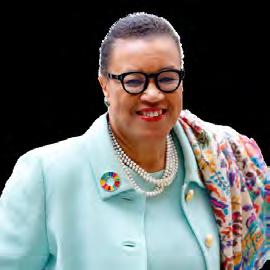
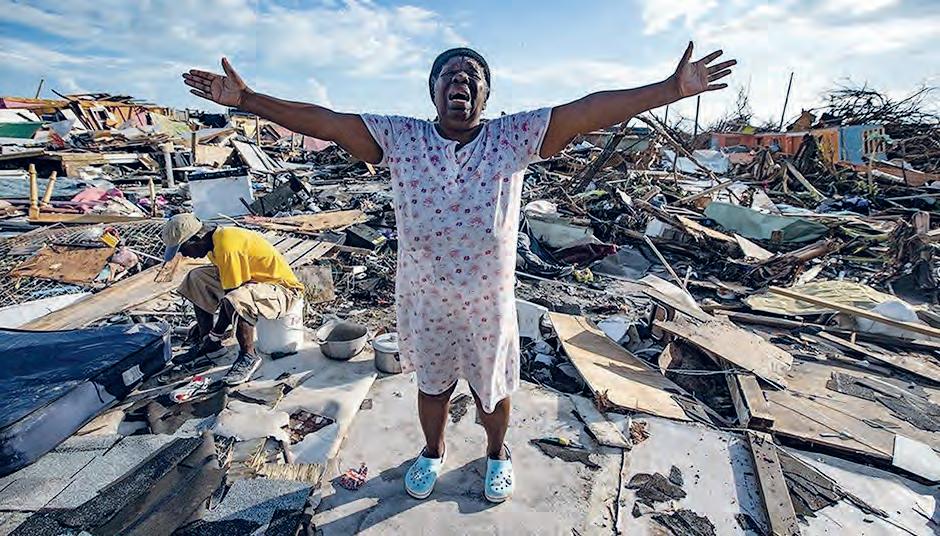
in 2019
DEVASTATION: Much of Haiti was flattened by Hurricane
DEVELOPING STATES NEED TO BE PROTECTED
own country of birth, Dominica, taking 225 per cent of GDP with it.
In 2019, shortly after Dorian, the most powerful hurricane to ever hit the Bahamas, tore through the island nation I visited, the northern islands of Abaco and Grand Bahama. I was heartbroken at seeing what I could then only describe as a war zone.
DEVASTATED
Last year, Vanuatu was devastated by category 5 cyclone Lola, which hit seven months after twin cyclones Judy and Kevin had wiped out 50 per cent of her GDP.
The damage of these shocks is deepened by the lack of adequate financial support.
Despite contributing only one per cent of all global carbon dioxide emissions, SIDS struggle to unlock climate finance. In 2019, they had access to only $1.5 billion (£1.18bn) out of the $100 billion (£78.9bn) pledged to developing countries.
With no alternative, these countries are often left with no option but to obtain financing
These countries are often left with no option but to obtain financing on unfavourable terms, resulting in high debt burdens,creating a vicious cycle
on unfavourable terms, resulting in high debt burdens, creating a vicious cycle where debt becomes unsustainable and access to finance becomes even more limited.
The Commonwealth is home to two-thirds of the world’s SIDS, and this exceptional convergence of hardships is at the heart of
my motivation to champion and support SIDS at every level.
SIDS have also been saying enough is enough and are leading the charge to reset our climate finance ambitions. At COP28, Commonwealth SIDS were at the forefront of hard-won progress on loss and damage.
Samoa, the Commonwealth’s incoming Chair-In-Office, joined other small islands and vulnerable countries at the fourth International Conference on Small Island Developing States (SIDS4) in Antigua and Barbuda, with leaders calling for ‘collective quantified finance goals and funding’ to help deal with frequent and intensifying natural disasters
The Commonwealth is working to ensure that SIDS’ voices are heard at the highest level of the international system, while providing practical support in critical areas such as finance and disaster resilience.
The Commonwealth Climate Finance Access Hub has unlocked $330 million (£260.5m) for our most vulnerable members, with
another $500 million (£394.7m) worth of project proposals in the pipeline. Our national climate finance advisers are working shoulder-to-shoulder with government officials across our member countries.
They are not just preparing project proposals but also building the capacity of governments to face the challenges of climate change and development.
TRANSITION
For years, we have seen leaders from these countries take the steps needed to transition toward low-carbon, climate-resilient development.
But to scale up this action, reliable climate finance is key.
The Commonwealth Secretariat will continue to advocate for increased funding for adaptation, mitigation, and resiliencebuilding. This is a lifeline for vulnerable countries.
Our commitment to climate change is not new; it is part of the Commonwealth’s DNA, and our history of environmental
leadership continues to guide us today. Our next Commonwealth Heads of Government Meeting (CHOGM) will take place in Samoa in October this year –the first CHOGM in a Pacific Small Island State – with a clear focus on building the resilience which is essential for each of our 56 nations to thrive.
If we are to achieve this, the world must keep its promises. Every commitment to climate action and finance made by world leaders is vital – but every failure to meet those commitments is an insult to the most vulnerable, and every example of inaction is an act of violence against those who need us to succeed, now and for generations to come.
The call to action on climate finance will continue to resound from Commonwealth SIDS at the UN General Assembly in September to the negotiations at COP29 in Baku in November. It must be heeded.
Dorian
News Feature
She wants other men in the community to take up the baton, and start calling out and correcting their friends and male family members if they are being abusive to women and girls.
“Stop him in his tracks and tell him exactly what he is” she said.
“We need men to start taking those accountabilities because that is the way we are going to tackle the femicide at the core.”
Looking at society as a whole, Malcolm is adamant there is a “systemic problem” which is fuelling toxic and dangerous attitudes towards Black women and girls.
“I think there’s strong patriarchal rule. You have White men and White women, then you have Black men and of course at the very bottom there’s the Black women.
“When you have people like the Tory party donor Frank Hester who recently made a statement about wanting to shoot Diane Abbott that doesn’t help matters.”
Malcolm believes the fact that Hester has not faced any legal action for his comments sends a message that people can away with being threatening and disrespectful towards Black women.
“That’s just taking the soft approach and when men know they have nothing to fear or to face by being narcissistic, by being misogynistic or committing femicide, they will get a slap on the hand and that’s it – it’s not going to change,” she said.
Malcolm believes that the femicide of Black women needs to be taken more seriously by the criminal justice system and British courts.
“If it was White women who were being murdered systemically like this, things would have to be changing.
“Within the Violence Against Women and Girls (VAWG) campaigns you have powerful lobbyists who stand up for women. But we marginalised women are not a great part of that.
“There also needs to be stiffer sentences to tackle the toxic social media we see. What it spews out to young men about what they can do infuriates me.”
Malcolm also started her Protect the Girl Child Campaign several years ago, which warns of the dangers of abuse being committed within the home by family
members, friends or neighbours. She has now enlisted the help of her first six grandchildren – who are all girls – in her campaign and says it is important to teach the next generation about the dangers that sadly still exist globally
“I started the campaign after seeing this global issue of being brutalised and harmed just for being female.”
The United Nations Office on Drugs and Crime published its Femicide Brief in 2022, which said: “Violence against women and girls is the most pervasive human rights violation rooted in gender inequality and discrimination, unequal power relations and harmful social norms.
“An estimated one in three women globally have been subjected to either physical and/or sexual intimate partner violence or non-partner sexual violence in their lifetime.”
The key findings from the brief show globally, an estimated 81,100 women and girls were killed intentionally in 2021.
In 2021, around 45,000 women and girls worldwide were killed by their intimate partners or other family members. This means that, on average, more than five women or girls are killed every hour by someone in their own family.
Approximately 56% of all female homicides are committed by intimate partners or other family members, while only 11% of all male homicides are perpetrated in the private sphere.
In some countries in the Caribbean the rates of femicide are also a cause for concern.
In 2021, Jamaica recorded some 9.3 femicides per 100,000 women and in the same year, Antigua and Barbuda recorded 10.3 femicides per 100,000 women.
Some Black male community workers are taking an active role in raising awareness about the issues that are linked to femicide.
Davis Williams, founder of Manhood Academy Global (MAG), a charity that provides Black children with life-changing transformation opportunities, has created a workshop for Black teenage boys and girls to learn how to communicate with each other in a respectful and non-toxic way.
“One of the things we realised was that within the Black community there is a lack of intimacy, there is a lack of connection between the young boys and the young girls. They speak to each other like they are just objects. The level of mutual respect is really low.”
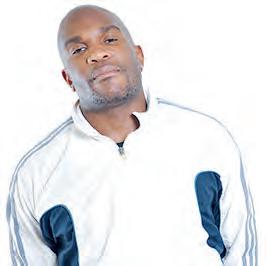
He added: “Once we got the young boys to a certain place, we had a similar conversation with the young girls in regards to their view of masculinity and
CHANGING THE NARRATIVE:
manhood and how it should show up and what is toxic masculinity.”
Williams continues: “These conversations are extremely powerful, not just with the young boys, but with the parents as well.”
Williams said authentic and open conversations are not being had in the home about things like relationships, domestic violence and dealing with rejection.
As a result, he said many young boys are turning to social media and society for examples of how to behave and act towards women and girls which creates problems. He added that too
“Our women are not respected, they are not validated. They are not seen as humans”
often said society’s view of Black women creates an underlying perception that they are “not worthy of protection”.
“Our women are not seen, they are not respected, they are
not validated. They are not seen as humans and they are being treated as animals and it is absolutely wrong,” he said.
Reflecting on his own upbringing, the community worker says he had to go on his own journey to unlearn much of what he was taught about relationships with women.
“I strongly believe this is learned behaviour because growing up I was always told not to show women any emotions or intimacy.
It’s only since I started my own personal journey, that I have asked, ‘Where did this stem from?’’”
In a statement Commander Kevin Southworth, who leads on Public Protection for the Met Police, said: “We take violence against women and girls in all its forms extremely seriously and are dedicated to being open and transparent with our data.
“We are committed to protecting those who are at risk, regardless of their ethnicity or faith, and understand that communities are affected in different ways.
“We work with victim-survivors, charities and partners to listen to, transform and improve our response to all victims.”


DECADE OF PROMISE OR MISSED CHANCE?
Independent history researcher Kwaku shares his thoughts about the impact of the International Decade for People of African Descent and whether or not it lived up to the hopes that people had for it
THE year 2011 was declared International Year for People of African Descent (IYPAD) by the UN, and it was the middle of the same year I discovered that neither the British government, a UN member state, statutory bodies, nor community organisations were engaging. I therefore took the initiative and started my African identity advocacy journey.
I spent the rest of the year randomly conducting vox pops with Africans in London for a film I was hoping to produce. I asked two questions: “Do you know about the UN declaring 2011 International Year for People of African Descent?” And, “Are you African or Black?”
In January 2012 we launched the resulting film of dozens of respondents, ranging from the barrister Courtney Griffiths KC, poet David Neita, parliamentarian Dawn Butler, academics Carole Boyce Davis, Caroline Cooper, Hakim Adi, Lez Henry and Nehusi Kimani, community activists Nana Asante, Lee Jasper, Stafford Scott and Toyin Agbetu, to historians Runoko Rashidi and Tony Warner.
At the films launch at Westminster City Hall, the motion to call ourselves African was unanimously carried.
Ever since then, I ve become the TAOBQ (The African Or Black Question) convener, advocating that people of African heritage call themselves African.
Among our earliest success was to change Harrow Council s annual BHM programme to African History Month,
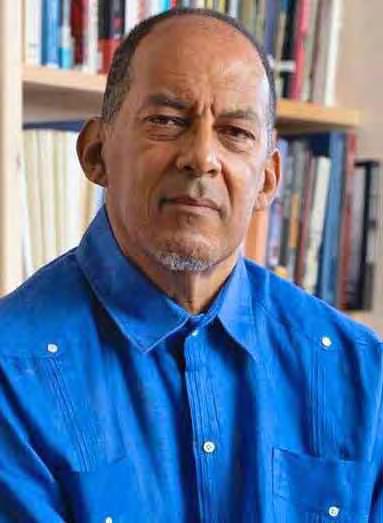
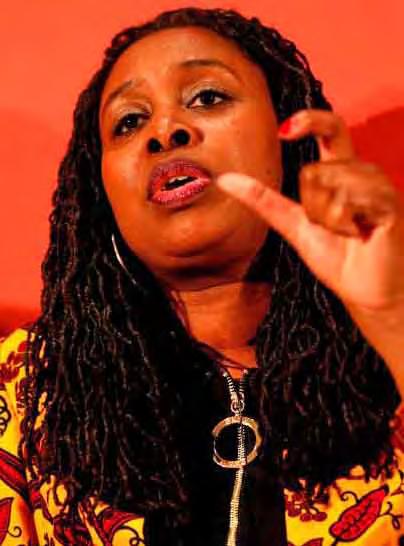
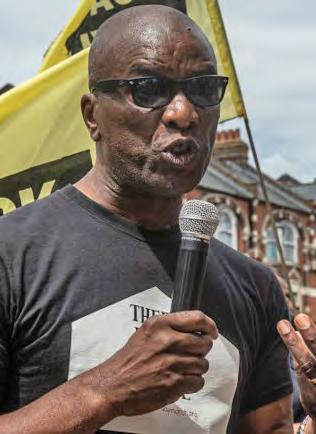
following a decision made at a 2012 event marking the 25th anniversary of the election of Britain’s first African MPs – Diane Abbott, Bernie Grant and Paul Boateng.
Not surprisingly I was disappointed to see the Mayor of London launch last year’s Black On The Square, which has replaced the annual Africa On The Square, which started in 2014.
At last month’s Marcus Garvey Annual Memorial Lecture at Goldsmiths University, the keynote speaker Professor Kehinde Andrews asked how many had heard of the International Decade for People of African Descent (IDPAD). Sadly, very few had.
IDPAD was launched in 2015 by the UN General Assembly. The theme for the Decade is “People of African descent: recognition, justice and development.”
Much was expected of the lofty ideals to globally combat racial discrimination, systemic racism, Afriphobia; and the epistemicide, erasure or concealment of African history.
PRIORITY
Member states were supposed to highlight the importance of the history and contributions of Africans. Sadly, this did not happen.
Unsurprisingly for the Conservative government, which has an avowed anti-woke stance, promoting a programme of IDPAD activities was never going to be a
priority. Indeed, when the IDPAD Coalition wrote to the then new Prime Minister Theresa May, she replied that her government had “no specific” plans to mark the decade.
The ethnicity demographics of Britain have changed a lot in recent times. Thirty years ago, there were almost twice as many who identified as Caribbean compared to continental Africans in London. Today, continental Africans number more than twice Caribbean people of African heritage living in London.
That gap is going to widen, because the Caribbean population is declining. Coupled with this decline, as mentioned in my December 2022 Music And Film Improving African-Caribbean Relations Weekly Gleaner article, is the ascendancy of Brits of continental African heritage across music, film, politics, and even food.
This is one of the reasons I advocate for the use of African as a unifying descriptor for people of African heritage, irrespective of ones antecedents.
In addition to this global/panAfrican descriptor, TAOBQ has been promoting the Global African Quad Flag, which combines the four common colours of the two pan-African flags, as a visual representation of African issues.
Interestingly, The Voice September 2023 cover carried the bold statement: “Future Is African”. It went on to state that “Young
Member states were supposed to highlight the importance of the history and contributions of Africans. Sadly, this did not happen
Africans are the undisputed trendmakers of 2023 in the arts, business, music and sports.”
This is definitely a message for those who can’t identify with their African heritage, perhaps as a consequence of those Tarzan movies and African poverty reportage.
The fundamental point of IDPAD is identity. So if you’re of African heritage, then it’s time to own your Africanness, no matter where you were born.
There is a Marcus Garvey bust in Brent Museum, which is within Willesden Library, where we will be marking The Marcus Garvey Annual Pan-Africanism Presentation on his birthday, August 17, 2024. The note by the bust refers to a question asked
of Garvey: “Are you an African or Jamaican?” His reply: “I will not give up a continent for an island!”
The newly established UN Permanent Forum on People of African Descent – we much prefer “Heritage”, as all humanity is of “African Descent” – had its last Sessions in April in Geneva.
Although the apparently poorly resourced Forum’s engagement with African communities is not great, its Sessions either in the UN s New York or Geneva centres can be accessed via the UN Web TV portal.
SUBMISSION
Its raison d être is essentially to deal with the global issue of “racism, racial discrimination, xenophobia and related forms of intolerance”, though TAOBQ has made a submission that the UN and this particular Forum use Afriphobia, which speaks specifically to racism against Africans.
At the start of IDPAD in 2015, I interviewed two reparationists, Esther Stanford-Xosei and Kofi Mawuli Klu, Co-Vice Chairs of PARCOE (Pan-Afrikan Reparations Coalition in Europe) in a video available on YouTube. They explained how IDPAD had the potential to uplift the African cause on a local, regional and global level.
But having organised IDPAD programmes in London and Accra, I have to admit that we have not realise any of its potential to move Africans forward. So like
Prof Andrews, who scorned the notion of campaigning for a second decade, I won’t be spending my energies for another Decade.
However Nana Haja, who is a UN Fellow of the People of African Descent programme, sees a glimmer of positivity that’s come out of IDPAD. She highlights the training of UN Fellows, the Working Group of Experts of People of African Descent and the Permanent Forum of People of African Descent.
She adds the IDPAD Coalition’s definition of Afriphobia is “perhaps the most lasting legacy – a definition arrived at through roundtables involving the community, both youth and elders.”
Ronoko Rashidi once said: “Being African is not based on where you were born. It is based on what you are.”
This is a fact not lost on the racist police officers who deliberately pick on African youths and use false evidence in an effort to criminalise them, or on racist groups such as the British National Party. What these groups see are Africans, and care not whether they were born in Britain or have British passports.
MAKING THEIR POINT: Hakim Adi, Dawn Butler and Stafford Scott appeared in a 2012 film produced by Kwaku that examined the meaning of African identity
GRENADA PUSHES BANK OF ENGLAND FOR REPARATIONS
Government says payments should be made for ownership of slave plantations in the 18th
Century.
By Sinai Fleary
GRENADA IS demanding the Bank of England pay reparations for its ownership of slave plantations on the island.
According to a report in The Telegraph, the government of Grenada has delivered a letter to Andrew Bailey, the Bank’s governor, calling for it to atone for its “enslavement of Africans”.
The bank owned almost 600 enslaved African people on Grenada in the 18th Century.
A letter received by Bailey and seen by the newspaper states: “The Government of Grenada calls upon the Bank of England to make reparations to Grenada on account of the direct involvement of the Bank of England in the 1780s in the enslavement of Africans and their descendants in Grenada.”
It continues, and states that “the enslavement of Africans in Caribbean colonies including Grenada was atrocious.”
It goes on: “The work regime, punishments inflicted both physically and psychologically, and the immeasurable suffering endured have multiplier effects on our current populations of African descent.”
In March 2023, the Grenada National Reparations Commission (GNRC) told the Caribbean nation’s government that Grenadians both living in the country and in the diaspora should not forget the horrors of slavery.
Chairman of the GNRC, Arley Gill, told the newspaper: “The Bank of England have done all the research, they have had an exhibition demonstrating to the world their involvement and profiteering from the crime against humanity that is slavery. We urge them to do the proper thing and to have a discussion with us on how they can repair the harm they caused
“They have financed the slave trade and slavery in many instances, in this case they owned slaves and plantations and were directly involved. They can only do the right thing now by committing to making repairs to the harm which was caused.
“We look forward to the Bank’s substantive response to our proposal.”
According to the National Ar-
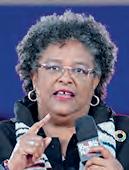
“We’re not expecting that damages will be paid in a year, or two — but we are demanding that we be seen and heard”
- Mia Mottley
chives of Grenada, between 1662 and 1807 Britain shipped some 3.1 million Africans across the Atlantic Ocean in the Transatlantic Slave Trade.
The Africans who were forcibly enslaved were brought to British owned colonies in the Caribbean, including Grenada, and sold as slaves to work on plantations, generating millions of pounds for Britain.
In March 2023, Grenada’s Prime Minister invited the British Prime Minister to attend discussions with the Caribbean Community (CARICOM) about reparations for slavery.
Dickon Mitchell extended the invitation to Rishi Sunak at a reparation forum, which was hosted by the University of the West Indies (UWI) and the Grenada National Reparations Committee (GNRC).
Mitchell said talks about reparatory justice, the legacy of British colonialism and slavery across the Caribbean should be “open, transparent, frank and dignified”.
At the same event, Gill urged Grenadians in the Caribbean and in the diaspora to never forget the
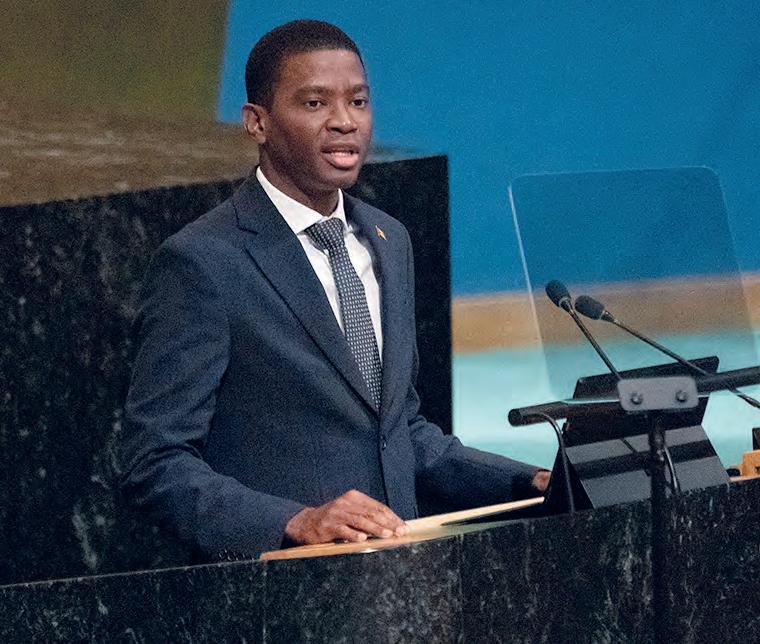
horrors of slavery. He said: “This is not something that we should put behind us and move on.
“We must join hearts and hands and as a strong, proud and resilient people demand justice! Fight for Fairness! And hold those responsible for the plunder, extraction and exploitation of our nation and for the inhumane treatment of our ancestors, accountable!
“Hold them accountable for the harms they’ve done and for the persistent problems that our people and nation have been subjected to 400 years of illegal and inhumane slavery, centuries of colonialism and 40-plus years of political independence, with limited social, economic and human development!”
Gill has also encouraged other Caribbean nations to “come together” and use the Caricom Reparations Commission to begin their fight for reparations and reparatory justice from European countries for their role in the slave trade.
Grenada gained independence from the UK in 1974 and commemorates its independence annually on February 7.
A Bank of England spokesperson said:
“We have received the letter
and confirmed that, while there can be no doubt that the slave trade was an appalling aspect of British history, our position remains in line with that of the UK government, which has no plans to pay reparations.
“The most effective way to respond to the wrongs of the past is to ensure current and future generations learn lessons from history and work together to tackle today’s challenges.”
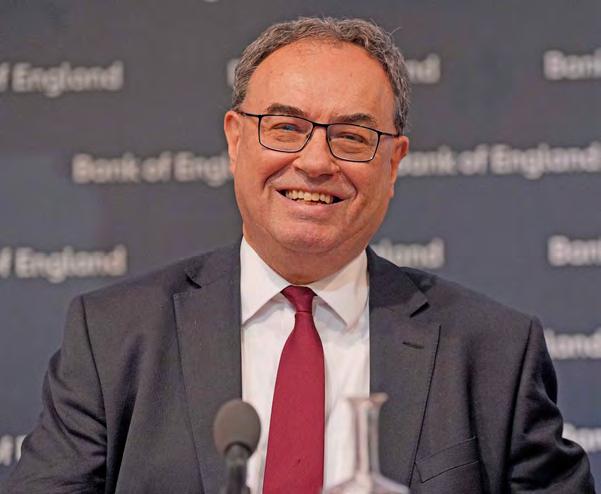
The move by Grenada follows claims made in December last year by Barbados’ prime minister Mia Mottley, inset top left, that her country is owed a staggering $4.9tn (£3.9tn) in reparations for slavery.
She told The Guardian that she didn’t expect payments anytime soon but emphasised it was important to raise the issue of reparations and the legacy of slavery.
“We’re not expecting that the reparatory damages will be paid in a year, or two, or five because the extraction of wealth and the damages took place over centuries. But we are demanding that
we be seen and that we are heard,” she said.
During her visit to the UK, Ms Mottley also had a meeting with new British foreign minister David Cameron, but said she would not disclose the details of the meeting. The Barbados prime minister has been advocating for reparations for several years.
In 2022, she delivered a powerful speech in Ghana during its 65th independence celebrations at the Cape Coast Stadium, in which she called for greater links between the two countries.
She said: “The heads of government of the Caribbean Community have assigned me the responsibility of writing to the heads of government of those European states whose governments were responsible for the extraction of wealth from our countries for centuries, and who extracted wealth from your continent and countries too.
“There are those who will say and remind us that the war makes it an inconvenient time to have this conversation but may I say, it is never the wrong time to do the right thing.”
KEEN TO TALK: Dickon Mitchell says conversations should be frank, open and transparent
DEMANDS: Grenada is urging Andrew Bailey to take action
News Feature
Delia Gray believes the word is offensive and outdated and should be replaced.
By Sinai Fleary
ATEXAS-based community activist is calling for a leading civil rights organisation in the United States to change its ‘offensive’ name.
The National Association for the Advancement of Coloured People (NAACP) was formed in 1909 and is America’s largest grassroots anti-racist non-profit.
Delia Gray launched her campaign to get the organisation to change its name after claiming that the word ‘coloured’ is an offensive relic and should be replaced with the word Black.
Speaking exclusively to The Voice, she said: “I started on a mission to either replace the name or just change their name entirely to reflect our progress as people because everything else that is offensive gets changed right away.
“People jump onto change it, because if it offends one person, they are ready to change it, and that should be the same for us.
“If it offends me, and I’m a Black person, it should offend everybody that is Black because the word ‘coloured’ links us to so many different hates.
“During the Jim Crow Era because of this word we were jailed, we were beaten we were killed because of this one word. They know this, this organisation knows this, so why do they continue to link us to it?”
She added: “If somebody walked up to me today and called me a coloured woman, I would be ready to go toe-to-toe with them because that is something that is not accepted in this day and age.”
Gray said she will keep campaigning against the use of the name for people like her late 92-year-old grandfather, who was subjected to harsh segregation laws during the Jim Crow Era.
“My grandfather had to walk on another side of the walkway because he couldn’t walk on the same side of the street as a White person. My mother and my grandmother had to go through this,” she said. “I would like it to be changed to the National Association of the Advancement of Black People, just change one letter and don’t call us coloured, call us Black.”
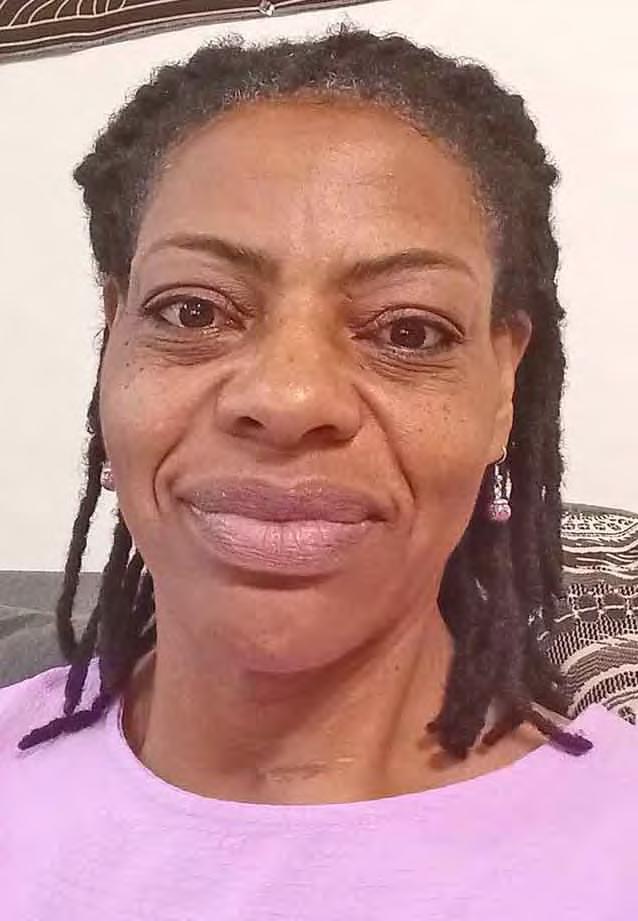
CALLING FOR CHANGE
:
Community activist Delia Gray says it’s time for the NAACP to drop the word coloured and replace it with Black
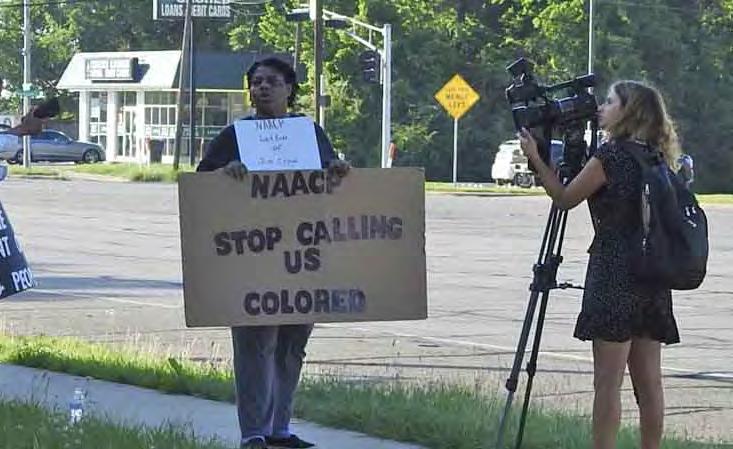

DAYS OF CALLING US ‘COLOURED’ MUST END NOW
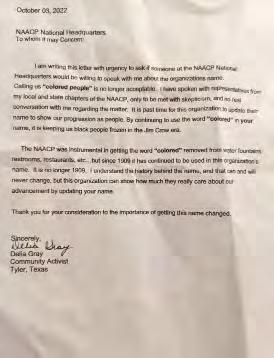
abusive category as the N word and says “it was a nice way of them saying the N word. They didn’t want to continue using the N word – so they came up with something else.”
Gray says she would classify the word coloured in a similar
action by the NAACP. She said: “Everything else that is offensive they change it, except for when it comes to us.
“If it’s offensive to us they are like ‘oh who cares?’”
The activist has no plans of slowing down and has started a petition and has held protests to try and raise awareness of her campaign.
She says she will continue with her cause to help empower the next generation of Black Americans, including her grandchildren.
“I don’t want my grand children to have to keep talking about this when they get older” she said. “I want them to say ‘My grandmother was instrumental in getting this change’
“I don’t want them to say, We need this word coloured changed’.”
Black American writer and speaker Kamilah Newton told The Voice that getting rid of what some may consider “archaic language” could be seen as a step in the right direction but she is conflicted on the issue.
She said: “Every few years a new way to categorise Black people comes about, for example Negro, coloured, AfricanAmerican that is supposed to allow us more dignity yet for each of those eras, Black people throughout the diaspora have instead endured a ‘new and improved’ iteration of racism.
“Will we update these organisations with every change?” she asked.
Newton added that she was unsure if the legacy of the NAACP should be rewritten.
“This is an historic organisation that began with the consultation of Black intellectuals which has been committed to the well-being of Black people since 1909” she added
“After that I started thinking I could do more to bring the community together,” she said.
Gray said her campaign to get the NAACP to change its name started in the same year.
She admits initially she didn’t know what the acronym for the NAACP stood for and was shocked when she found out. “I was, like, why would they still call us coloured people in 2017?”
The Texas-based community activist decided to write directly to the NAACP. “In May 2018, I went to the National Headquarters in Baltimore, Maryland, and I gave a letter I’d written to the secretary of the NAACP and she said she would pass it on.”
Gray said she phoned the headquarters to follow up and was told her letter had been passed on to the board members who would contact her.
The proud grandmother was prompted to become an activist after a local woman from Charlottesville, Heather Heyer, was killed after a car rammed into a group of protestors at the Unite the Rally against neo-Nazis and White supremacists in August 2017.
“Our race is the only one where no one knows what to call us”
- Delia Gray
However, she claims she still has not had a response despite further efforts to contact the organisation by letter in the years that followed.
Gray told The Voice her campaign has been met with some opposition by people who accuse her of “hating the NAACP”, which she denied.
She added: “I don’t hate them at all, I just feel like we should not be called coloured people anymore.
“There were flags and statues that have been removed because of how it reflected on Black people, because what it did to Black people or what it meant to Black people, they were removed
because it was offensive to Black people.
Our race is the only one where no one knows what to call us.
“We are African-American, Afro-American, we’re coloured, we’re Black, we’re Negro. Now we’re people of colour. There is no other race that has this many names for them, to classify them as, but us.”
American football team the Washington Redskins changed its name to the Washington Commanders, in the wake of George Floyd’s murder and the Black Lives Matter protests that followed in the summer of 2020.
The term “redskin” was used as an insulting term for Native Americans.
Corporate sponsors threatened to withdraw financial support for the NFL team if they did not act.
The team later dropped the name and logo and called itself the “Washington Football Team” before a complete rebrand to The Washington Commanders in 2022.
Gray would like to see similar
“I understand removing statues originally erected by oppressive entities that promote problematic figures, changing the names of schools and updating curriculums so that some children understand the true history of this country, but I don’t know if the legacy of the NAACP should be rewritten over what feels like a small correction.
“With that, it might make more sense to leave the title as it is since ‘coloured’ is quite literally a category we all fall under, whereas (for some) Black has been rightfully reserved for a specific group.
“Given the NAACP is working to help us all across the diaspora, perhaps this can be seen as both a more inclusive take and a simple relic of the past.
She continued: “I guess it could feel like progress to have the C changed to a B, but in terms of tangibles, I’m not sure what that could translate to for us as a collective.
The Voice contacted the NAACP for comment.
ON THE FRONT LINE : Delia Gray said her campaign to get ‘coloured’ dropped started in 2017; below left, Ms Gray’s letter to the NAACP HQ
HISTORIC: A group of protesters pulled an statue of 17th-century slave trader Edward Colston down from its pedestal in Bristol
Walking made easier!
Do you enjoy going for a walk? To blow off steam, for some time with a friend, for a commute, an explore, a bit of perspective? Reckon you’d walk more often, or to more places, if you knew that the route was going to be fun, safe and recently walked by other people? If you knew the route was going to actually go somewhere?
That is exactly what we have in mind! Slow Ways is a new, exciting, audacious project to create tested and trusted walking routes going from every town and city to all of their neighbours.
All of the 9000+ routes have been drafted, and now we are busy walking or wheeling and reviewing the routes. We need as many people as possible to help with this enormous challenge. Could you walk a route? All you need to do is go to www. slowways.org, choose a route, walk or wheel it, and review it on the site.
If you’d like to get more involved we are also looking for Wayfarers – Slow Ways volunteers who pledge to walk five Slow Ways and help others get involved. See more here: tinyurl.com/slowwayswayfarer
Social Media and Community Support Manager
Part-time, three days per week (flexible hours, remote) £25-30k FTE, depending on experience (0.6)
Slow Ways is an initiative to create a national walking network, entirely of crowd-sourced and peer-reviewed routes that connect every town and city to its neighbours. We are a CIC and a small staff team, plus hundreds of people walking, checking and reviewing routes on our website and apps: www.slowways.org
We are looking for the right person to amplify our social media presence and engage with our online community, and be the first port of call for Slow Ways’ volunteers, contributors, and firsttime visitors for technical issues and requests for help. Does this sound like you? To apply see the full job description and application form at tinyurl. com/slowwaysjobs
For queries or a chat, please contact Julian Lipton at julian@slowways.org Applications close at midday on July 8th, 2024


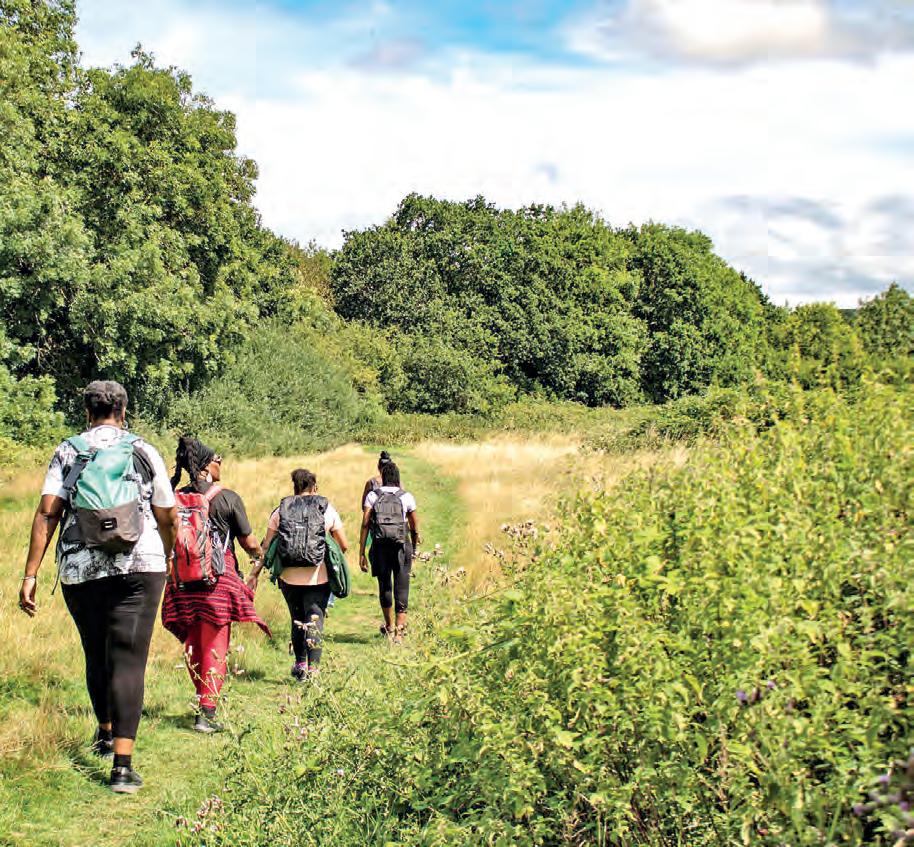
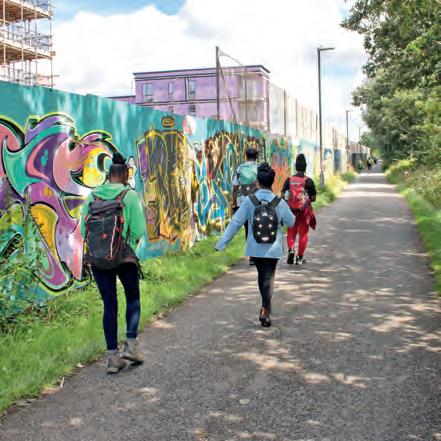
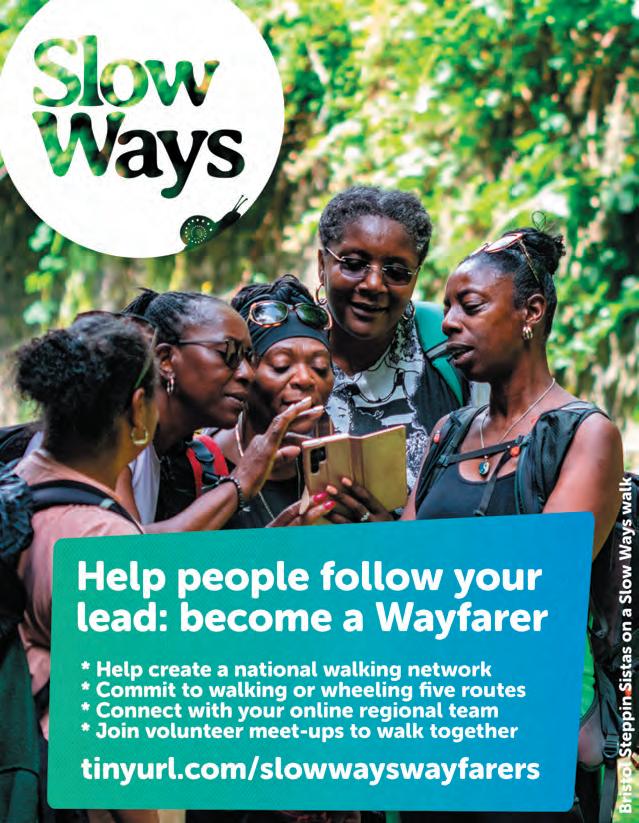
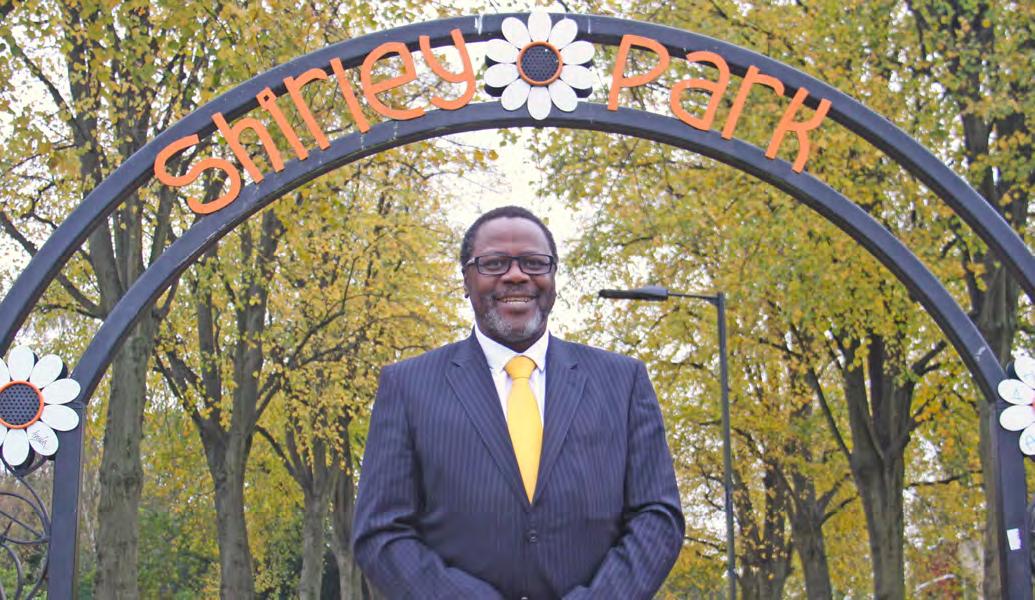
MAKING A BIG IMPACT IN MIDLANDS POLITICS
Candidates of African and Caribbean heritage are increasingly ascending to senior political appointments in the region
ASEISMIC shift away from the Conservative Party predicted by most polls and analysts come the General Election on July 4 would be consistent with the political activity that has been percolating under the radar, on local and regional platforms, in the Midlands for several years.
Unlike London and the south east, the 105 constituencies across the East and West of the region continue to lack representation in Parliament by MPs of African and Caribbean descent.
Prior to the dissolution of Parliament for the General Election, Taiwo Owatemi (Coventry North West), Claudia Webbe (Leicester East) and Paulette Hamilton (Birmingham
Erdington) were the only Black MPs returned from the Midlands. All are standing for re-election.
Labour’s image as the party of the region’s Black communities endures. But while its candidates remain strangely absent from the upper echelons of its parliamentary party, Black candidates are increasingly ascending to other senior political appointments.
TOUGH
At the time of writing, Labour councillor Sharon Thompson, fresh from a tough baptism of fire as deputy leader of the cash-strapped Labour-led Birmingham City Council, was named deputy mayor of the West Midlands Combined Authority (WMCA) by the newly appointed Richard Parker.
Sharon Thompson has been a prominent national voice on housing, lobbying government over Grenfell
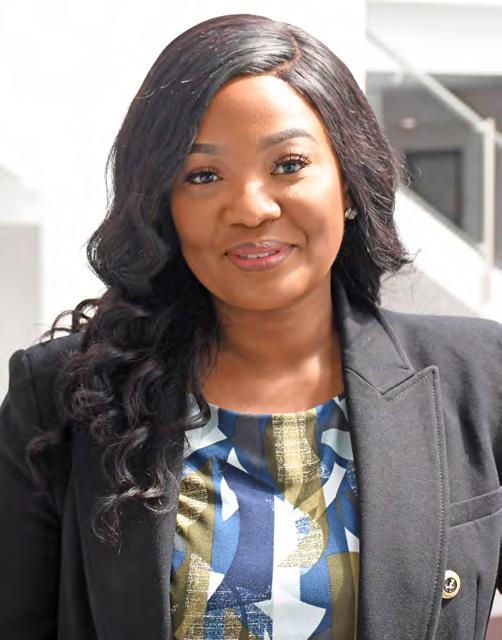
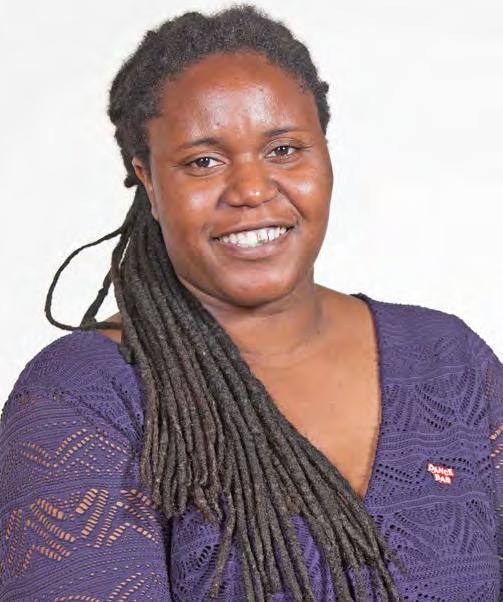
Parker famously ousted his high-profile Conservative predecessor Andy Street by a razor-thin majority of 1,508 votes back in April.
Cllr Thompson, a city councillor since 2014, comes into this new role having been a prominent national voice on housing and homelessness, lobbying government over the Grenfell and social housing scandals.
This new appointment sees her follow in the hallowed shoes of previous Labour councillors: Yvonne Mosquito, who served as Lord Mayor of Birmingham between 2018-19, succeeding the Second City’s first Black Lord Mayor, Sybil Spence, whose 1997-98 tenure saw her become the first Lord Mayor of a major European city.
Parker’s victory over Street
sent shock waves through local and national Tory ranks not least because of the latter’s popularity and the former’s much lower profile, but also the strides Street’s tenure at WMCA opened up for minority communities.
PROGRESS
WMCA has been credited with making “steady progress” in closing the racially influenced inequality gap in healthcare and provision, as detailed in postpandemic ‘Health of the Region’ report.
The document also attributes “a long-lasting physical activity and wellbeing legacy” to the WMCA, who in tandem with delivery partners of the Birmingham 2022 Commonwealth Games, saw over 16,000 pieces of
sports equipment donated to community organisations, the setting up of scores of physical and mental health activity groups and enabling the Thrive into Work programme to support hundreds of people with life limiting health conditions into employment.
Also, 60 per cent of the 3,500 applicants to WMCA’s six-month long digital and retrofit bootcamps, tasked with upskilling the workforces in sectors including housing and IT, are from non-white backgrounds.
Within two years, the WMCA has invested more than £25 million in over 100 different bootcamps, with almost three quarters of its graduates securing sector-related jobs within six months. These include Solagne
CAMPAIGN:
Ade Adeyemo, Liberal Democrat MP candidate for Solihull West & Shirley
BIG WIN: Derbyshire’s new Police & Crime Commissioner Nicolle Ndiweni
BAPTISM OF FIRE:
Cllr Sharon Thompson, the new Deputy Mayor of the West Midlands
By Veron Graham
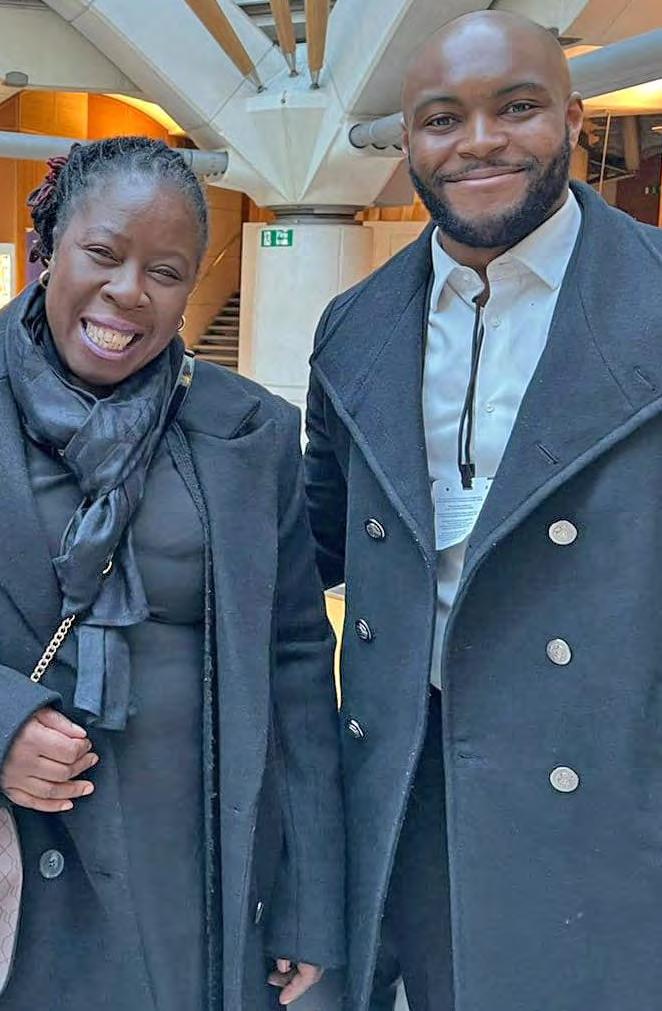
Lake, who joined to grow her knowledge in coding en route to landing a role as a software engineer at a Birmingham branch of professional services giant KPMG.
Also, nearly 2,000 West Midlanders proceeded into permanent employment through the £32 million secured by The Apprenticeship Levy Transfer Fund, set up by the Tory/ Street-led WMCA, in 2019.
The levy – a fund charged of qualifying businesses by HM Revenue and Customers – is held centrally by government to which businesses who wish to appoint apprentices must apply to fund up to 95 per cent of the associated costs.
Birmingham’s Bintou Keita was among the beneficiaries: having become an apprentice
on a controversial Conservative project HS2, she went on to complete the apprenticeship standard, clinched a permanent role in project management, was named as Apprentice of the Year at her employer’s BAME

Company where I recorded videos to encourage young women to consider an apprenticeship in engineering. HS2 gave me a platform to share my voice as a female BAME apprentice.”
Still the brighter future afforded to the likes of Solange, Bintou and thousands of their peers by WMCA under the leadership of Andy Street was not enough to earn the Tories a historic third term in the regional Mayoral office.
Could this turning away from Conservatism indicate that national issues such as the economy, NHS failings and the ‘Partygate’ scandals could again have more influence at the ballot box on July 4 than local and regional issues?
Appearances can be deceiving: the defeat of Labour’s Eleanor Smith in 2019, then the only Black Midlands MP, by Tory Stuart Anderson seemed like just another brick in the red wall that Boris Johnson decimated in his landslide General Election victory that year.
In hindsight, it now appears to be an anomaly in Black Midlanders’ slow and gradual departure from Conservatism.
The region’s handful of Black Conservative councillors became one fewer in January when Sandwell’s Archer Williams became the second from his party in the Black Country constituency to defect to Labour, who now lead the authority with a large majority.
Williams was elected to the Princes End ward in May 2021. He said at the time: “I’ve seen the drastic issues at local level of being under a Conservative government.” He added that it was “frustrating” to see the impact of funding cuts on the delivery of basic services.
Our community deserves better than the leadership we have had in Westminster. The current government have let us down
to assume the role of deputy mayor of Sandwell, Councillor Jackie Taylor called for people in positions of power to send out positive messages of aspiration to the coming generations. Now responsible for Adult Services, Health and Wellbeing in the Black Country borough, looking back on her then eight years as a borough councillor, she told The Voice: “I never ever thought in all of my days, with my background, I’d see myself in this position. It is all of our responsibilities, people in positions of power, to send out messages that our people can aspire to achieve. It doesn’t matter where you are or where people put you.
“We get used to the hard knocks of life, but if we don’t get the things we’re trying to achieve the first time, let it be, but keep trying because when we reach those things, we will appreciate it all the more.”
offers an important warning against complacency that all campaigners would do well to heed. Its once popular High Street continues to be a bone of local contention with complaints about street drinking, drug selling and racially motivated violence made to the understaffed West Midlands Police reportedly commonly going unresolved and even unanswered.
Still, in April the constituency reinstated its collective wish to have its two seats on Birmingham City Council filled by Tories. Is this because the party’s national woes have little impact on the local electorate’s voting habits? The truth will only emerge, at least in Erdington’s case, if Hamilton is re-elected.
If she is, alongside Webbe and Owatemi, the current triumvirate of Black MPs from the Midlands could become a quartet, if the campaign by Ade Adeyemo to become the Liberal Democrats’ representative for the new West Midlands’ constituency of Solihull West & Shirley is successful.
His candidacy demonstrates another development in the evolving tale of Black political activity in the Midlands.
Speaking ahead of a campaign rally in Solihull Town Centre, Adeyemo said: “Our community deserves better than the leadership we have had in Solihull and Westminster. The current Conservative government and our last MP have repeatedly let us down with incompetence, contempt, and unfulfilled promises.”
Apprenticeship Awards and organised events for its Race Equality and Cultural Heritage Network en route.
She said: “My apprenticeship journey has been filled with incredible experiences and opportunities. I have been lucky
Over in the East Midlands, there was a toppling of a popular Conservative figure by another unlikely Labour candidate, reminiscent of Parker versus Street, last April as Nicolle Ndiweni swept to an overwhelming victory over the Conservative incumbent, Angelique Foster, who notched 65,293 votes to Ndiweni’s 93,260.
In the north of the region, Tamworth Borough Council in Staffordshire, newly-led by its first Black chief executive, Stephen Gabriel, switched decisively from Conservative to Labour’s control for the first time in 21 years. The party gained nine seats in April, leaving the Tories with just one out of the

Shortly after her 2022 inauguration as the first Black African Caribbean
HISTORIC
Cllr Taylor’s historic appointment coincided with similarly groundbreaking mayoral appointments across the Midlands. In the same week, Labour councillors Sandra Samuels OBE, George Cole and Tafadzwa Chilcato became the first mayors of African Caribbean heritage in Wolverhampton, Leicester and Corby in Northamptonshire respectively.
More recently, another longserving local Labour councillor, Paulette Hamilton, continued the groundbreaking trend by becoming the Second City’s first Black MP. In winning the mandate to represent the city’s Erdington constituency, Cllr Hamilton won the first by-election between two Black candidates, besting another history maker, Ashley Bertie. Bertie had become the UK’s youngest Deputy Police and Crime Commissioner when he assumed the role on a Labour ticket under David Jamieson, in 2015, aged just 23.
As the electorate gears up to vote on July 4, Hamilton’s Erdington constituency
Adeyemo’s near 30 years as Solihull resident coincided with a long period of Conservative dominance, until broken by Lorely Burt, MP between 20052015 and now a Baroness. It was her local activism that drew Adeyemo’s interested, then won his support and preempted a career with the Liberal Democrats.
He told The Voice: “For a long time, it seemed that if you put a blue rosette on a donkey and put it forward as a candidate, Solihull would vote for it. Lorely was a Liberal Democrat who was very engaging and committed to the local area and its people. I’d see her dropping leaflets through letterboxes. Which MPs do that? I wanted to be involved in a party that was active locally.”
Speaking simultaneously to his rare status as an active Black Liberal Democrat and the Black electorate at large, he added: The Lib Dems tend to focus on more affluent communities, which makes it harder to attract people from ethnic minorities.
“Still, if you don’t engage, politicians will ignore you, that’s why we rarely get policies targeted at Black people. How are we encouraging politicians to address those matters of our concern?
“Also, candidates need to ensure we don’t become separatists and talk to everyone in our constituencies.”
WINDRUSH MOVE RULED UNLAWFUL
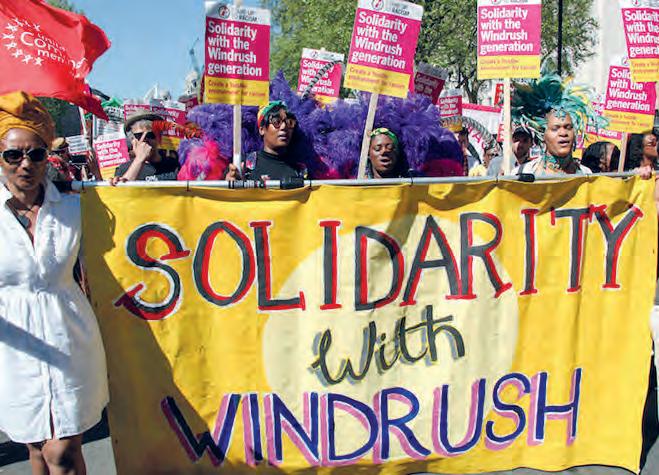
Windrush victim Trevor Donald, 68, brought legal action after he was refused entry into the United Kingdom – despite living in the country for 43 years. By Sinai
Fleary
THE government’s decision to drop three key recommendations from an independent review into Windrush Scandal has been ruled unlawful by the High Court.
Windrush victim Trevor Donald, 68, brought legal action against the Home Office after he was refused entry into the United Kingdom despite living in the country for 43 years.
In January 2023, then-Home Secretary Suella Braverman decided not to proceed with all the recommendations made in the Windrush Lessons Learned Review by Wendy Williams, which was published in March 2020.
The independent review outlined some 30 recommendations for the thenHome Secretary Priti Patel to implement to repair some of the harm done to the Windrush Generation through the scandal.
Three key recommendations were scrapped by Braverman.
These included running reconciliation events aimed at enabling victims of the scandal to articulate its impact on their lives in front of specialist services and senior Home Office staff.
The introduction of a Migrants’ Commissioner, who would be responsible for advocating for the rights of migrants was also dropped, along with a review of the role of the Independent Chief
Inspector of Borders and Immigration (ICIBI). Mrs Justice Heather Williams ruled last month that dropping two of the recommendations – the migrants commissioner role and the ICIBI – had a “disproportionately prejudicial effect upon Windrush victims” and indirectly discriminated against them, Sky News reported.
Dropping the ICIBI recommendation without consulting the Windrush community or Ms Williams – author of the review – was described as being unlawful and “conspicuously unfair” by the judge.
The judge added: “I conclude that an inference can be drawn from the evidence before the court that the decision not to proceed… was a matter of considerable concern and hurt to a significant number of Windrush victims, given, in particular, that a cause of the scandal was a failure to listen to the voices of those from the Windrush community.”
The Windrush Scandal saw people mainly from the Caribbean treated like ‘illegal immigrants’ by the Home Office despite arriving in Britain legally.
Many lost their homes, jobs, access to benefits, pensions and were even threatened with deportation and detained.
Mr Donald was born in Jamaica in 1955 and arrived in the UK in 1967.
Despite living in the UK for 43 years, when he returned to the UK after a trip to Jamaica in 2010 he was refused entry.
His lawyers say it is at this point when Mr Donald became a Windrush victim.
After the scandal emerged in 2018, he was allowed to eventually re-enter the UK and was given indefinite leave to remain.
In January 2022, he was finally grant-
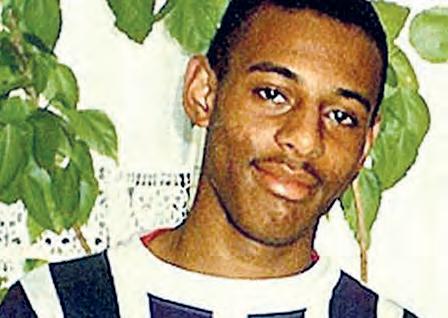
Review confirms Stephen Lawrence detectives will
not be charged
A REVIEW has concluded that four retired detectives from the initial Stephen Lawrence murder investigation will not face criminal charges.
The CPS review decided to uphold the decision made last year not to prosecute the Metropolitan Police officers following an investigation by the Independent Office for Police Conduct (IOPC).
“We are committed to working to ensure that all
recommendations are fully implemented”
- Timi Okuwa, CEO of BEO
ed British citizenship.
The judge said Mr Donald sadly “missed critical moments in the lives of his children and lost his council flat and most of his possessions”.
According to reports, a further hearing will take place to consider if Mr Donald is entitled to any compensation for his ordeal.
In February, the Black Equity Organisation (BEO) was granted a judicial review to challenge the decision to drop the three key recommendations.
Speaking about the judgement Timi Okuwa, CEO of BEO said: “We remember and stand with all Windrush Scandal victims, survivors and their descendants. Therefore, BEO welcomes the decision that confirms that Suella Braverman’s decision to drop these recommendations was unlawful. We are especially pleased that Mrs Justice Williams recognised the discrimination of the Windrush Generation in her judgment.”
She added: “We are committed to working with the next Government to ensure that all the Williams Report recommendations are fully implemented.
“The work isn’t done. We will continue to hold public institutions to account to ensure that institutional racism is eradicated from our society.”
The decision was challenged by Stephen’s parents, Neville and Doreen, and friend Duwayne Brooks who was with him on the night that he died. Their challenge triggered a victim’s right to review the charging decision.
The latest review found insufficient evidence for conviction, meaning that no police officers have been held responsible for one of Scotland Yard’s biggest disasters.
Stephen, 18, was murdered in a racist attack by a gang on Well Hall Road, south London, in April 1993.
He was running to catch a bus with his friend, Duwayne Brooks, when a group of six white youths attacked him.
Only two of his killers – Gary Dobson and David Norris – have ever been brought to justice.
Speaking to BBC News his mother Baroness Doreen Lawrence said she was “bewildered, disappointed, and angry” at the decision, adding: “I am sure the public will be, too.”
“The decision today means – as things stand – that not a single officer will ever be held responsible in any way shape or form for the obvious and unforgivable failings in Stephen’s case,” she said in a statement.
She said the CPS’s decision “marks a new low in the way the criminal justice [system] has treated me and my family”, saying it was “unjustifiable”.
She went on: “The reviewed decision, issued today, makes not a single mention of racism.
“Everyone now accepts that institutional racism was at the heart
of the first investigation and yet, no consideration has been given to how it impacted the decisionmaking process. It clearly did.
“How can racism not be part of and at the forefront of the CPS’s decision on Stephen’s case? This is unforgivable.”
The 1999 Macpherson report found the original Lawrence murder investigation was hampered by professional incompetence, institutional racism, and poor leadership. It criticised the decision not to make quick arrests.
Rosemary Ainslie, head of the CPS’s Special Crime Division, said: “The unprovoked and racially motivated murder of Stephen Lawrence in 1993 shocked the nation, and had a vast impact on the criminal justice system in the years that followed.
“Significant changes were made to policy and legislation in the wake of Stephen’s death, and in 2012 the CPS was able to successfully prosecute two men for his murder – Gary Dobson and David Norris – due to a change in double jeopardy laws.
“Following our decision in July 2023 not to bring criminal charges against four police officers involved in the initial six weeks of the investigation into Stephen’s murder, we received a request to review the decision under the Victims’ Right to Review (VRR) scheme.
“An extensive review of that decision, which involved an independent prosecutor reexamining a substantial amount of evidence and material in the case, has now been completed.
“Offences of misconduct in public office were reconsidered, but the review upheld the original decision not to bring any criminal charges against the four officers in the case.
“We understand this news will be extremely disappointing for Stephen’s family and friends, and the CPS has offered to meet with close family members to explain our reasoning in further detail.”
VICTIM: Stephen Lawrence died after a racist attack on April 22, 1993
POWER IN NUMBERS: The High Court has criticised the Government’s decision to drop recommendations from an independent review into the Windrush Scandal
BABY ELSA IS THIRD ABANDONED BY SAME PARENTS
Newborn found
in shopping bag confirmed as sibling of boy and girl after DNA tests. By Sinai Fleary
ANEWBORN baby found in a shopping bag in east London earlier this year is the third baby to be abandoned by the same parents.
The baby girl – who is Black –was found wrapped in a towel inside a bag by a dog walker on January 18 at around 9.15pm.
Police said the baby – who was given a temporary name of Elsa – was unharmed and is safe and was kept warm by the dog walker using blankets.
According to a BBC report, DNA tests presented to the East London Family Court established that Baby Elsa is the sibling of two other babies, a boy, Harry, and a girl, Roman, who were also found abandoned in 2017 and 2019 in same area in east London.
Baby Harry was found abandoned in a park area close to Balaam Street, Newham, at about 8.20am on September 17, 2017. Baby Roman was found abandoned by dog walkers in a small children’s play park on Roman Road, near the junction with Saxon Road, at approximately 10.15pm on January 31, 2019.
Harry and Roman have now been adopted and Baby Elsa remains in foster care, the corporation reported.
The BBC and PA Media were given special permission by the court to report on Baby Elsa’s sibling link and confirming that all the children are Black.
As babies are rarely abandoned in Britain, Judge Carol Atkinson said there was “great public interest” in the story.
An expert told the court there was genetic findings that support the idea Baby Elsa is “a full sibling” to the older two children.
The Family Court has heard the children’s names have now all been changed and they will know they are full siblings. Also, as the children get older, arrangements will be made for them to have some form of contact.
According to the BBC, the local authority did not support the
sibling link being reported in the media.
The Met Police said it was up to the court to determine whether the link between the children should be reported, but informed the court they did not wish to “inadvertently promote or encourage struggling mothers to abandon unwanted babies in public spaces”.
PARENTS UNKNOWN
After Baby Elsa was found, police issued a media appeal and conducted a wealth of checks, reviewing many hours of CCTV.
A week later another appeal was issued to identify a woman seen wearing a large dark coat with a light coloured scarf or hood around her neck and had a rucksack on her back, shortly before Elsa was found.
The Met still believed she could hold important information about how Elsa came to be where she was found.
In January, Met Police officers said they were “extremely concerned” for the welfare of the baby’s mother and appealed for her to come forward, as she would require medical attention following the birth.
So far, the identity of the parents has not been established, despite media appeals for them to come forward.
INVESTIGATION
Detective Inspector Jamie Humm from the North East Command Unit which covers Newham said: “We understand the significant public interest that will come following the lifting of restrictions that allow this information to be reported. It is significant news and our work has focused on trying to locate the mother and provide support to her.
“We have worked 24/7 in each of these three cases to identify the parents, so far without success.
“We continue to investigate, and will consider the next steps in our investigation.”
l Anyone with information is asked to call 101 or ‘X’ @MetCC


‘UNHARMED’: The newborn baby was found by a dog walker on January 18 this year (stock photo: Getty Images)
Lyndon Mukasa
Eye on the Diaspora
‘FLASH DROUGHTS’

POSING MAJOR RISK TO THE CARIBBEAN
Over the last five years every island has experienced water scarcity

ONE OF the biggest challenges of the 21st Century will be solving the increasing crisis of water scarcity brought on by the climate crisis.
Nearly two thirds of all land on Earth is on track to face water scarcity as droughts become more common. This is a challenge that the countries of the Caribbean are embroiled in.
Currently there is a drought over many parts of the Caribbean that has been lingering for months. Many governments in the region have warned that water scarcity could become a new norm as “flash droughts”, a term coined by Craig Ramseyer of the College of Natural Resources and Environment (in a recent research paper that highlighted the susceptibility of the Caribbean to sudden droughts), become an increasing feature of life in the region.
Over the last five years, every island in the region has experienced some degree of water scarcity and data is now showing the Caribbean is one of the most water stressed regions in the world.
The crisis at a glance
Countries such as Dominica have seen a sharp decrease in fresh water, while water systems throughout Grenada have been affected by drought. Trinidad and Tobago is experiencing its worst drought in years with residents being placed under water restrictions until the end of June assuming that the water table has been replenished by then.
Similarly, Jamaica and Barbados are also experiencing water shortages and over the last few years have resorted to limiting water availability to a few hours a day. St. Vincent and the Grenadines, and St. Kitts and Nevis have also been forced to implement water rations.
As the climate crisis gets worse, over the years there have been changes to annual rainfall patterns which has affected the ability of aquifers to replenish. Additionally, the supply of water across the region is not keeping up with increasing demand, as a combination of structural factors have exacerbated from increasing urbanisation to mismanagement of water systems. Some 90 per cent of water comes from groundwater supplies in Barbados while it is 84 per cent in Jamaica. For Barbados, only 15 per cent to 30 per cent of its aquifers is replenished annually and it is getting worse as rainfall becomes more irregular.
Causes
Water scarcity has been steadily increasing since the 1950s, but the 2013 to 2016 droughts were particularly severe, putting two million people at risk of food insecurity.
One of the main issues that has exacerbated the Caribbean’s water scarcity is the tourist industry. In last month’s edition of The Voice, I highlighted how large foreign hotel companies drive up energy and food costs in the region.
As it stands, the tourist sector absorbs huge quantities of water often at the expense of local communities. The consumption of water by hotel resorts is much higher and often there is also a higher rate of pollution of water resources which further limits water availability.
To make matters worse, in many countries across the region water has been diverted to hotels and tourist sites first while water rationing has been implemented, demonstrating the costly dependency that many countries in the Caribbean are trapped in.
However, the problem isn’t just
tourism, it also comes down to poor management and inadequate infrastructure. There is extensive loss of treated water as waste, which across the Caribbean amounts to 46 per cent of average water waste due to inadequate storage. For some countries such as Jamaica the waste could be as high as 75 per cent.
Caribbean solutions to Caribbean problems
As the climate crisis gets worse it might seem hopeless, but for the region to endure the crisis and prevent it from becoming an emergency and then a catastrophe, structural solutions will be needed to upgrade water management systems and pressure tourist companies to adapt.
In the medium term, however, there is a method that could be harnessed to help alleviate some of the pressure from drought. This is rainwater harvesting, a practice that has been in use across the Caribbean for at least 300 years.
Rainwater harvesting involves capturing rainwater that often runs off from roof tops to be stored for future use. Already over 500,000 people across the Caribbean partially depend on rainwater harvesting.
If governments across the region were to apply rainwater harvesting on a systemic scale particularly during the rainy season from May to December, then it could hopefully form one part of many adaptive measures that would ensure that the livelihoods and health of people could survive during the dry season and beyond.
l Lyndon Mukasa is a writer and researcher. He studied International Development at the London School of Economics
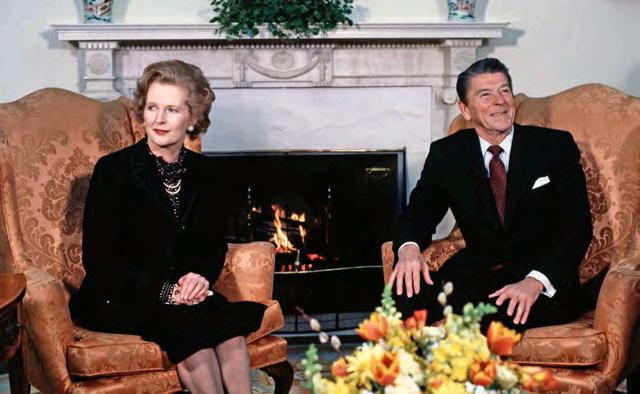
BIG BUSINESS: Consultancy firms’ origins are unclear, but their growth began in the 1980s with Margaret Thatcher and Ronald Reagan’s neoliberal policies promoting business-like economic management
THE HIDDEN INFLUENCE OF CONSULTANCY FIRMS
IF YOU were asked what you think is the greatest obstacle to the development and prosperity of developing countries, what would you say? Western exploitation? Multinational corporations? Corruption? You would not be wrong. However, there is another obstacle to development that is hardly ever considered and this is the influence of foreign consultants on various governments across Africa and the Caribbean.
What are consultancy firms?
Consultancy firms are private companies that provide advice or expertise in a particular area or sector.
In the context of working with governments, these firms in theory deliver expertise across a variety of sectors such as healthcare, transportation or agriculture.
There are two views of consultancy firms. The first view is that these firms offer valuable insights and provide skills and training that are not available in the host country.
The second view is that these firms are parasitic organisations that provide very little benefit to the host country. Instead these firms exist as part of an industry that cons governments into paying exorbitant amounts of taxpayers’ money to privatise whole sectors and reduce workers rights while weakening and undermining the civil service and other institutions in the country.
Origins
The origins of consultancy firms are murky due to the fact that many governments don’t always declare when they are using them. However, it is generally believed that their growth and proliferation started in the 1980s with the promotion of neoliberal economic policies that under UK prime minister Margret Thatcher and US president Ronald Reagan encouraged a view of
running economies like a business. This approach would eventually bleed out of the West and contaminate the Global South as governments opted to gain policy favour with the United States in particular following the end of the Cold War in the 1990s.
Increasing Influence
In Africa, the consultancy industry is worth over $2 billion with over 30 countries utilising hundreds of foreign consultants with Nigeria, South Africa and Morocco having the most consultancy firms in operation.
The governments of these countries are paying these firms to assist in managing the financial sector and attracting European foreign investment.
In the Caribbean, McKinsey & Company, a consultancy firm that was embroiled in a scandal in France a few years ago, has a strong presence in many countries in the region. These firms view the market as a means to shape policy and develop countries. This often involves privatising the public sector, weakening unions and creating new access points for Western multinational companies in the host country.
The problem is that over the last 40 years very few gains have been made from this approach and yet governments in Africa and the Caribbean keep on paying for the cheap trinkets that these firms offer. What is left are increasingly weakened and hollowed-out institutions incapable of functioning on behalf of the state creating further justification for “assistance”.
African and Caribbean policymakers constantly find themselves taking advice from “experts” who don’t understand or really care about their country. It is an insidious cycle that further robs countries in Africa and the Caribbean of their autonomy acting as a silent and hidden arm of neocolonialism.
‘NEW NORM’: Water scarcity in the Caribbean has been worsened by flash droughts and foreign hotel chain demands which strain local resources and increase costs
Photo: Getty
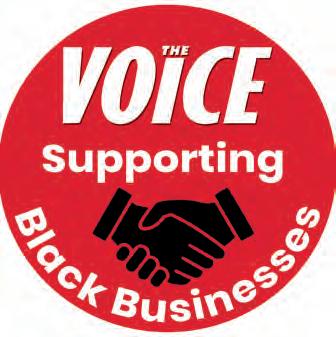




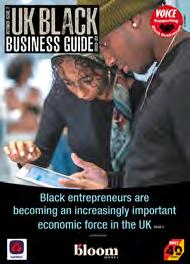
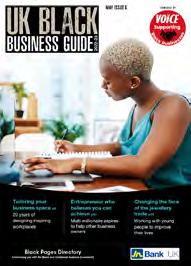






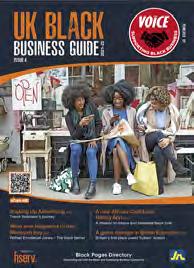
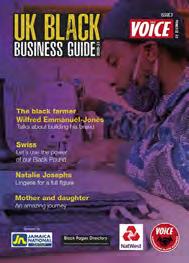


























Darell J. Philip
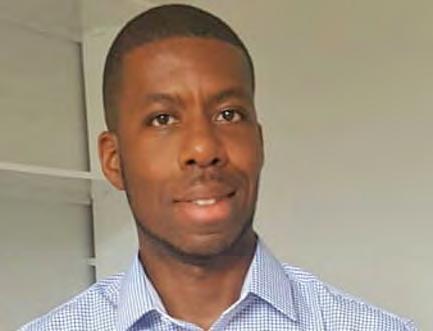
UNDERVALUED: TEACHING ASSISTANTS ARE GIVEN A RAW DEAL

TAs are bearing the brunt of an underfunded education system – and pupils are losing out, too
TEACHING Assistants (TAs) are often the backbone of what is a crumbling education system, in most part due to the increasing cuts the current government have made to school budgets during their decade-long leadership of the country.
The impact of these cuts have led many school leadership teams to take drastic measures, such as calling on TAs to cover lessons due to a shortage of teachers, or in some cases having to undergo a formal consultation and restructure process, with TAs often being the first to face the chop. In research carried out by
NEEDED: Many pupils benefit from one-on-one support
Unison — one of the UK’s largest trade unions representing some 1.3 million members providing public services in both the public and private sectors — it was revealed that in a survey of almost 6,000 TAs that two in five (39%) were covering classes for regular teachers for at least five hours a week, while 15% said they were expected to teach entire classes for at least 11 hours a week.
TAs, who can earn as little as £14,000 with salaries as high as £21,000 for those with most experience, have covered classes for little or in many cases no extra pay.
The knock-on effect has also

been that in plugging the teacher shortage gap, many TAs have been unable to provide the essential one-to-one support to children with special educational needs and disabilities (SEND). Higher level teaching assistants (HLTAs) who receive a slightly higher rate of pay, though much less than that of a qualified teacher, can be called upon to cover classes — but often as a last resort where there is an urgent shortage of teachers.
As a qualified HLTA and academic mentor, there have been rare occasions when due to a shortage of teachers around the time of the pandemic, when schools had just started to be reopened again, that I too had been called upon to cover a few English and Destination Reader lessons.
While those occasions went as well and as smoothly as I could have wished for, in the long term I was under no illusion of this being a viable solution, not only because of it being unacknowledged in pay, but also because of the one-toone support children with SEND would be missing out on.
Having also twice been in the unenviable position of facing a formal restructure consultation process (the last time, five years ago, I wrote about in an opinion piece for The Guardian (https://www.theguardian. com/commentisfree/2019/ mar/22/teaching-assistantsinvaluable-learning-axed-lobby-
Schools’ budgets are so tight that, instead of getting in supply teachers, heads are having to use TAs on the cheap
government), I’m aware of not only how stressful such a process can be for TAs who have for many years provided valuable interventions for SEND children, but also of the negative impact such measures can have on the children who in so many ways have benefitted from the one-toone support they receive.
Not to mention teachers too, who have come to rely on their TAs to provide pastoral support to children presenting with complex social, emotional and behavioural issues.
Addressing this issue, Unison’s head of education, Mike Short, said: “Schools’ budgets are so tight that, instead of getting in supply teachers to cover classes, heads are having to use teaching assistants on the cheap. This is neither right, nor fair.
“Parents will rightly assume
their children are being taught by teachers, not teaching assistants.
The government must ensure all schools have the budget and staff to provide the education they’re meant to deliver.
“This over-reliance on unsatisfactory stopgap measures and overburdening teaching assistants in this way has to stop.”
In my own experience, the value of a one-to-one and full class TA is often priceless.
Having worked in the education sector for the past 16 years, I have had the privilege to support a wide variety of students of varying abilities and from different cultural backgrounds.
I remember one student in particular who, having presented us with complex behavioural issues, came to a point where sadly we were unable to continue to provide the adequate support he was in need of (though there had not been a lack in trying).
Often, I had been a listening ear for that student, the brunt of his frustrations and outbursts while also offering words of counsel, encouragement and praise at opportune times.
With a heavy heart I said goodbye to that student, who moved on to a different school where it was hoped he could get the support he needed.
I remember praying for him that he would turn his life around and that the right support would be sent his way.
It was sometime after the lifting of lockdown — some 10 years since the student had left our school — that I bumped into this now young man, who told me that he had never forgotten the support I had given him during his primary school years, and that he was sorry for his behaviour at that time.
When I asked what he was doing with his life, he shared exciting news of him gaining qualifications which led to him securing employment in the building sector for which I congratulated him.
To my surprise, this student then said he wanted to compensate me for the trouble he felt he put me through many years ago, but I told him he had already compensated me by making a success of his life for which he was truly humbled and grateful.
It is such priceless experiences which remind you of the calling you have on your life to make a positive difference in the lives of those needing support and direction. So to have such necessary support denied is an indictment on this current government owing to the illjudged decisions they are taking as relates to the education of our children.
Asari St Hill
Business and Wealth
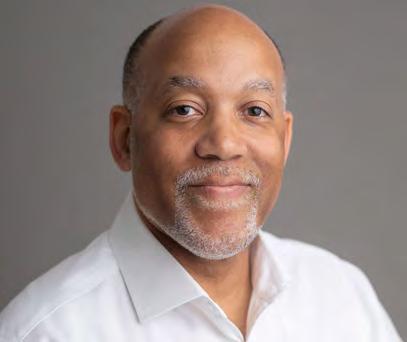
GET DOWN TO BUSINESS WHEN IT’S TIME TO VOTE
As we head to the polls, we take a look at what Black-owned businesses could be demanding from the next government
THERE ARE some crucial things that the next government could do to maximise the success of the growing Black business community.
My first recommendation to people who run Black-owned businesses or want to support them would be to read each of the party manifestos. Either decide to vote based on them or help hold the winning party to account to deliver what they say they will do for the micro and small business sectors.
In terms of what Black businesses could demand we can start with the welldocumented issues that have been holding them back.
For me, there are three key ones – better access to finance, mentoring support for micro and small businesses, and better access to public sector and other contracts.
The government could also do more to ensure that larger companies have a greater number of Black people on their boards and serve as nonexecutive directors. Many of these concerns were identified in the Black Entrepreneur Report 2021. Let’s look at each of these items in more details.
Access to finance:
The lack of access to finance has long been a complaint of Black businesses. There is plenty of evidence that highlights the fact that Black entrepreneurs have not been given loans or have been offered them at higher interest rates than other business owners with the same credit ratings.
Government start-up loans do exist, but more could be done to promote them. Many would-be Black entrepreneurs are unaware of the fact that being employed

in a full-time job makes it much easier to secure getting one of these loans.
This is a much better way to start a business, when you have alternative income and a way to pay back the loan should the business fail.
The next government could also force financial institutions to give an ethnic breakdown on who is given these loans to enable comparisons to ensure we have the same access as everyone else.
Mentoring and support:
About 60 per cent of UK startup businesses fail within the first five years. So we should not be surprised when you see the occasional Caribbean restaurant close or other Black business fail.
However, with more government support, maybe a lot more of our businesses would succeed.
Greater access to good quality but affordable or free mentoring would certainly benefit most
Better access to finance, mentoring support for micro and small businesses, and better access to public sector and other contracts are key considerations
Black business people. With a little government funding, the ‘growth accelerator programme’ could be reintroduced for both start-ups or growing businesses. Even a small subsidy would help Black business owners access business coaching and mentoring.
There are some localised
training programmes for business owners, but it is not well coordinated nationally. A new programme, better publicised could provide that additional training to secure more business success.
Access to public sector and other contracts: This is a huge opportunity for Black business owners. I have worked with hundreds of large organisations across the private, voluntary and public sectors.
Most of them do not have a well-developed procurement policy that ensures greater diversity of suppliers, particularly Black-owned businesses.
But, particularly since the death of George Floyd and the growth of the Black Lives Matter movement in the summer of 2020, many organisations are looking to spend more of their procured contracts with ‘minority’-owned businesses, including Black businesses.
For example, that summer,
Sky announced a series of commitments to help tackle racial injustice. One was to invest £30m over three years across its platforms on more diverse content and with Black-owned companies.
Similarly in 2021, the BBC said, “The BBC is to increase diversity by investing £100m of its TV budget over a three-year period to produce diverse and inclusive content . Some local authorities and large corporates have made similar commitments.
There are many more of these examples but we need to get on the radar so we can tap into these opportunities. What else?
We need to be careful not to see the election just from a ‘Black’ point of view. We make only four per cent of a UK population of almost 68m people. That is about 2.4m people.
One strategy to consider is, how can your business contribute to the next government’s policies
Reading party manifestos could help you decide who gets your vote
aimed at impacting society as a whole?
If you, as a Black entrepreneur, can add value to any government you are far more likely to get funding or a contract. One such example is contributing to the ‘green economy’.
All the main parties state they are committed to building a ‘green economy’.
So it is worth considering how you can benefit from some of this investment by contributing to this strategy.
I hope you will vote and make a difference, and/or hold the next government to account to deliver on their promises.
l If you would like business advice from Asari St.Hill - ActionCOACH Business Coach and Founder of the Black Business Club, you can contact him: via https:// blackbusinessclub.org/
MAKING THE RIGHT CHOICE:
Special Feature


By George Ruddock
UK Jamaicans are getting ready for two weeks of activities to mark celebrations around the island’s 62nd Independence anniversary. ese will range from church services, music festivals, family fun day, domino tournaments, food festivals as well as art and craft markets.
Activities will get underway on Saturday, August 3rd with the annual anksgiving Service hosted by the Jamaica High Commission at the Westminster Chapel, Buckingham Gate, London SW1E 6BS starting at 11.00 am.
is special service brings together hundreds of Jamaicans and friends of Jamaican from across the United Kingdom for fellowship and worship.
On Saturday and Sunday, August 3 and 4, e Jamaica Basic Schools Foundation UK will be hosting its annual Family Fun Day and Food Festival at Norbury Park, 289 Green Lane, London SW16 to celebrate Jamaica’s Independence.
is will be the 26th staging of the event and activities will start from 12 pm and end at 9 pm each day. Entertainment will include a live stage show featuring Agent Sasco, Chi Ching Ching, Bushman, Everton Blender, Top Cat, Claire Angel, Jah Screechy, Coxsone Outernational Sounds and Pablo Mix, among many other artists.
Emcees will be Angela Mason and Pink Panther. Other activities will include domino tournament, traditional and modern Caribbean dance, art and craft stalls, food stalls featuring Jamaican and Caribbean food and a funfair for the children.
e Association of Jamaicans (UK) Trust will be hosting their annual Independence Dinner and Dance event on Saturday, August 3 at the Croydon and District Masonic Hall, Oak eld Road, Croydon CR0 2UX, starting at 7.00 pm.
e evening will include a rum-punch reception, a three course meal, featuring Jamaican cuisine, live entertainment, ra e prizes and dance music provide by a popular DJ.
Over
Birmingham, the














UK Jamaicans ready to celebrate Independence
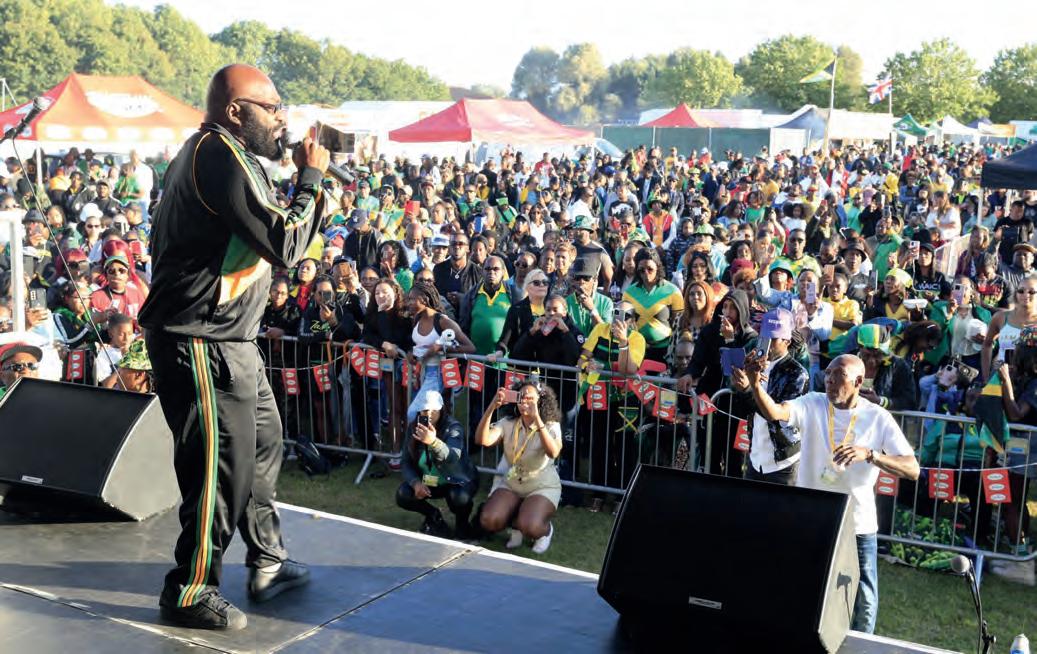
the city centre from Friday, August 9 to Sunday August 11. e festival will boast a line-up of over 50 Jamaican and UK-based artists with attractions including, Party in the Square, Jamaica Unplugged, Gospel in the Square, Flag-raising ceremony and Brum Got Talent show. ere will be a wide variety of food stalls featuring Jamaican and Caribbean food jotted around the square.
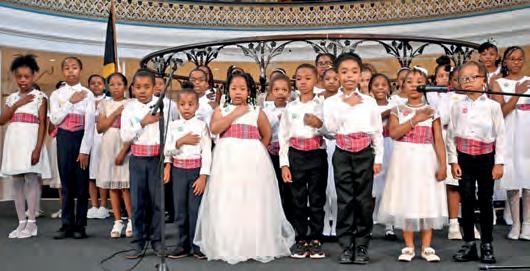

in
annual Jamaica 0121 Festival to celebrate Jamaica’s 62nd Independence will be held at Victoria Square in

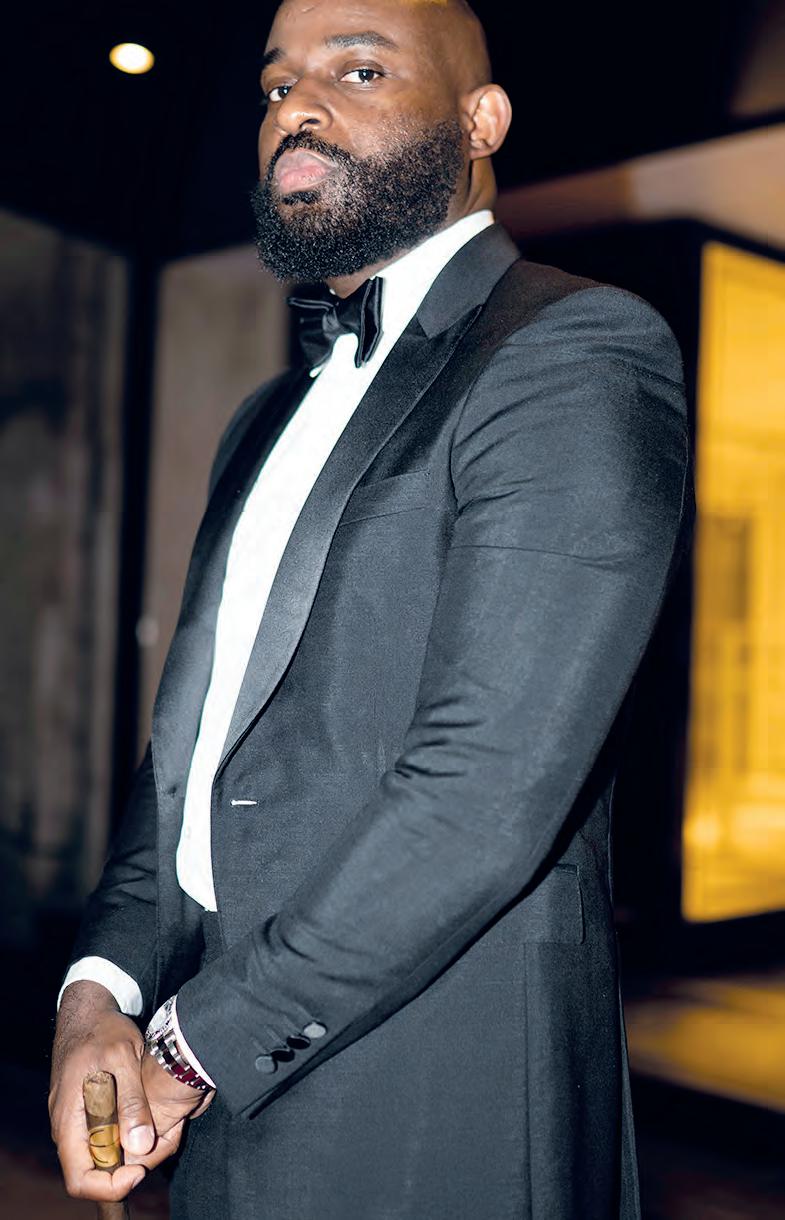
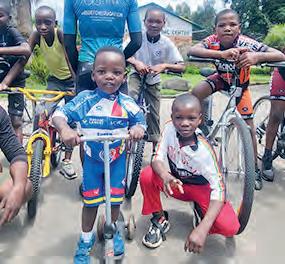
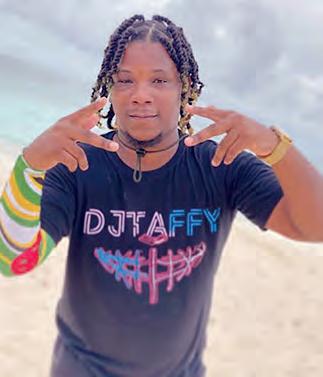

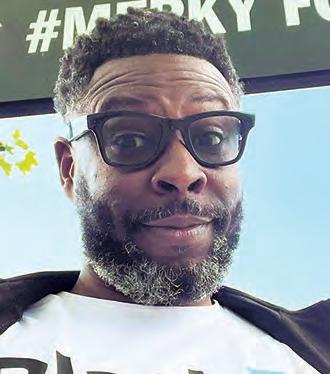
Lifestyle Sport
Johnny’s so good! Sky’s the limit for stunt star Buffong
Author writing his own scripts as he bids to become one of the UK’s few Black stunt men. By
TOM Cruise does his own stunts, as did Jackie Chan in his heyday – but what if an all-action stunt double was needed last minute for a movie being shot in the UK featuring Idris Elba, who would be the go-to man?
Step forward Johnny Buffong.
The London author and entrepreneur is a busy man at the best of times and, as well as running Mixed Martial Arts for Reform And Progression (MMARAP) — an organisation he founded which seeks to empower those from disadvantaged backgrounds, deaf/blind and disabled people by delivering MMA and educational programmes — he jumps out of planes in his spare time, and has done for six years.
The adhoc pastime quickly became an obsession and, aligned with his love for movies and acting, the new found recreational activity began to present as another potential vocational avenue to explore.
Now, call him crazy, and many do, but Buffong is very serious about his ambition to become one of the only Black skydiving stunt men in the country.
He recently secured a gold medal at the Grand Prix, Accuracy Landing Competition at Skydive Netheravon, the Home of the Army Parachute Association – yet another milestone on his journey to making himself ‘all employable’.
Lifestyle caught up with the budding movie star to find out a bit more about him.
Joel Campbell
Lifestyle: Congratulations on securing a gold standard pass in the skydiving sport accuracy assessment! How did you prepare for this challenging milestone?
JB: My preparation was to be fully focused and perform the best I can. With no distraction from external forces. A combination of prayer and meditation while monitoring what I’m consuming within my body.
Can you describe the feeling you had when you realised you achieved the gold standard?
I was ecstatic. Especially from one of my better landings. Even the one I missed.
I’m just a crazy person jumping out of a plane. I’m dedicated, so it’s a big personal achievement and an insight into what is to be attained.
What inspired you to pursue a career as a movie stunt double, and how did skydiving become a part of that journey?
Acting has always been a performance I admired and wanted to explore. Growing up was difficult due to social economics, but as I developed myself into this position as a skydiver, I then viewed it as my journey towards becoming a skydiver stunt double.
It’ll be great to feature in a role/ scene in place of iconic legends such as Idris Elba, John Boyega, Daniel Kaluuya, Lennie James, David Oyelowo, Danny Sapani and others.
There’s a mass pool of Black male actors but not many or any skydiver stunt doubles in the UK. Something I’d like to change! What are some of the biggest challenges you’ve faced while training for both skydiving and stunt work?

My biggest challenge is myself; which I’m not afraid of. I find challenging myself exuberant. The British Skydiving community and skydiving community as a whole has been very supportive towards me.
I’ve been given some positive feedback and viewpoints regarding stunt work from experts in this field. People like Allan Hewitt have been




instrumental. He has coordinated many stunt films in his time, such as James Bond and Mission Impossible.
Having top-tier coaching brothers Hamish and Alistair Cameron has been a blessing. They’ve given me pure confidence, belief and assurance. They have helped develop me into becoming a safer, better skydiver stuntman.
Also, I can’t forget Nathan Geering. He’s a film director and fight choreographer. Being exposed to him has brought the best out of me. He’s a big part of the reason those challenges I spoke of earlier aren’t in fact challenges at all. To become the stunt man I want to become, I will always face those challenges. Can you share any particular moments or experiences during your training that were especially memorable or transformative?
I must say it has been a turbulent journey but one must rise above the storm. My memorable and
transformative highlights are firstly, becoming a qualified skydiver, receiving my A licence; which was fully approved by Chris McCann.
The Flight 1 courses are amazing which really transform you into a better pilot. To those who don’t know, Flight 1 are canopy courses that improve your canopy skills.
A big shout to Paul Dorward. I’m now in the progression stages of being approved for my FreeFall (FF). FF is a skilled discipline that is displayed in an acrobatic style. That’s real fun. It’s all been memorable and transformative. I’m embracing the journey. The field of stunt doubling is quite niche and demanding. What motivates you to push through the tough moments and continue striving for excellence?
Yes, it’s niche and very unique when it comes to being skydiving stunt person or fighting in the sky. Pulling off MMA techniques such as Arm Bars and Rear Naked Chokes (RNC).
My motivation is me – becoming that better person. Life is tough, so we might as well smile while we persevere. I’m in no competition with anyone but myself. I want to perform the best I can. I strive and thrive for excellence. I never asked to become this. I believe I was chosen.
As one of the few Black British men in this profession, what kind of impact do you hope to have on the industry and future generations?
When entering this wonderful sport of skydiving. I never noticed that there’s not many Black men that skydive.
I saw it as what beautiful accomplishments can I achieve and what can I give back?
No matter what race or sex you are – I’d like to be seen/ remembered as a platform. A level that you can spring from. What advice would you give to young individuals, particularly from underrepresented backgrounds, who aspire to enter the world of stunt
performing and skydiving? Just go for it. Why wait! With passion and determination and the willingness to win. You’ll definitely make it. The rest will unfold.
The skydiving community is fantastic and amazing. I’ve made some close friends of whom I now call my brothers and sisters in this game. Skydiving is my drug. Looking ahead, what are your next goals and aspirations within the stunt double industry, and how do you plan to achieve them?
As I mentioned earlier, to work with Black actors along with doing TV/Film commercials as a stunt performer. I’m open to hearing from all casting agencies, directors, filmmakers and other entities in the television, film and movie space.
l Find out more about Johnny and follow his journey here: www.skyhighbuffong.co.uk
IG @mmarap_official
IG @skyhighbuffong
SUPER MAN: Black skydiver and bidding stunt double Johnny Buffong enjoying life in the skies
Johnny Buffong has won parachuting awards

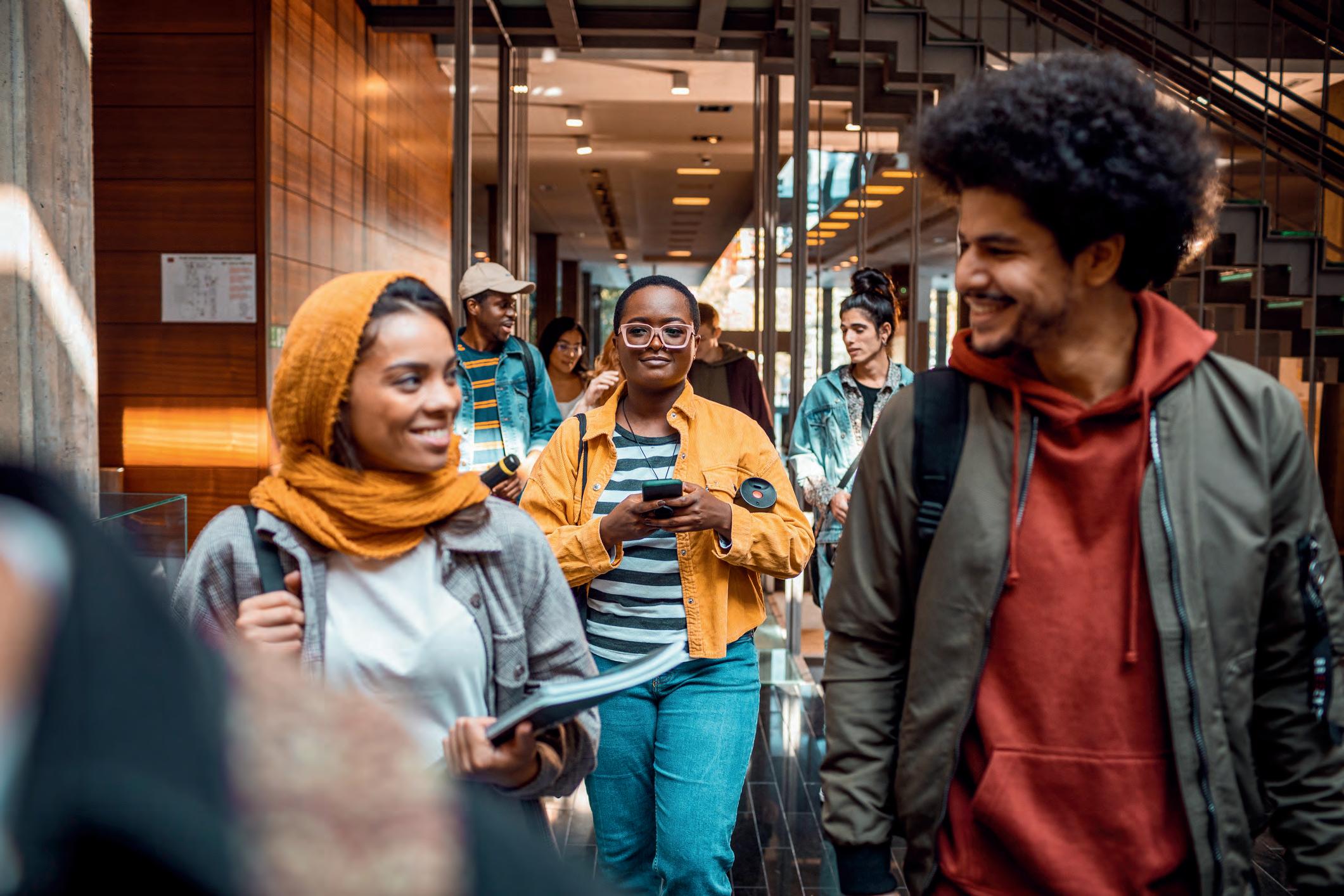





















































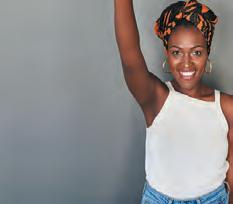






























































































The BUBR team conquered the land of a thousand hills in Rwanda earlier this year, raising thousands for charity. Now they’re ready for the streets of London.
By Joel Campbell
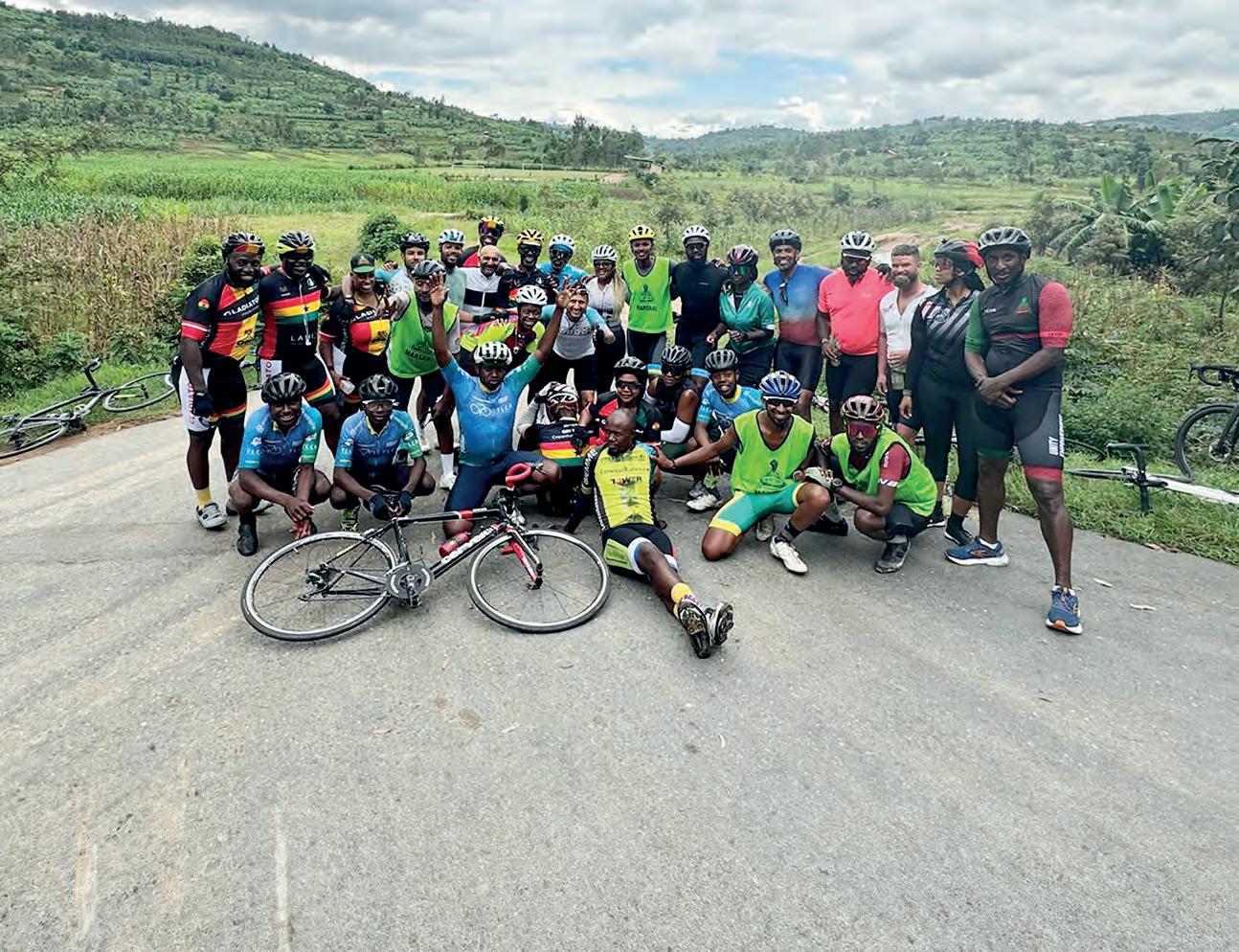
LET’S GET READY TO RIDE IN UNITY!
IF you’ve taken part before, then you are probably just as excited as the Lifestyle team is ahead of the upcoming 2024 Black Unity Bike Ride (BUBR) set for August 3.
The annual ride, dubbed London’s Carnival on Bikes, is led by an alliance of more than 17 Black-led Londonbased cycling collectives and welcomes novices and experienced
Next month’s ride starts at Leyton Sports Ground in east London and has pit-stops in Hackney Downs Park and Somerset House before crossing the Thames River and concluding in Dulwich Park.
Founded by Londoner Tokunbo Ajasa-Oluwa, BUBR continues the drive for positive change and to encourage unity among the Black community.
As well as the main event, AjasaOluwa is an ardent promoter of supporting bike riding enthusiasts who aren’t in as fortunate a position as many of us find ourselves.
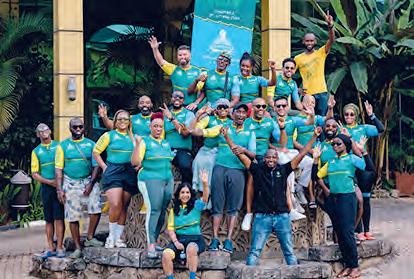
JOURNEY: Riders from Ghana, the Netherlands and Middle East have got involved
Last year, in an effort to promote cycling opportunities for young Ghanaian women, the inaugural BUBR Africa tour took place, which saw a cohort of UK riders joined by the Accra-based Gladiator Cycling Club, as well as riders from the USA and the Middle East, to cycle 500km (310 miles) between The Cape Coast and the Asuogyaman District of the Eastern Region in Ghana.
The ride raised over £10,000 for the Vida Cycling Program (VCP), an NGO founded by Vida Juliet Vivie, which provides access to competitive cycling events, repair and maintenance development programs,
Last year’s event welcomed almost 1,000 people, with the movement aiming to encourage even more Black people on to two wheels
grass track cycling events, and free cycling equipment for young girls.
Fast forward a year and (as Lifestyle readers will already know)
BUBR identified Rwanda-based NGO Twin Lakes Cycling Academy (TLCA), as this year’s cause.
Some 23 cyclists arrived in Rwanda on May 3 from the UK,

SUPPORT: The BUBR Africa tour took place last year
Netherlands, Ghana and the Middle East to be a part of the tour which was run in partnership with Ruhengeri-based Africa Rising Cycling Center.
The team of cyclists rode to various destinations in each of the country’s four provinces either through road race or mountain bike depending on the stage altitude.
Their first destination was in
Bugesera District where they raced over 80km (48 mile) journey from Kigali to Nyamata and back.
They used the opportunity to honour the victims of the Tutsi Genocide laid to rest at Nyamata Genocide Memorial.
They later rode to Rukomo (Gicumbi), Rwamagana, Muhanga, Rubavu where they explored the shores of Lake Kivu among other features before concluding
their visit in Musanze which currently hosts the Africa Rising Cycling Center (ARRC).
During their final tour, the cyclists toured Kinigi on mountain bikes before they met the children of Twin Lakes Cycling Academy, which consists of former street children living in the neighbourhoods around Burera and Ruhondo Lakes.
It was then that BUBR presented a cheque for £10,000 to the children in addition to cycling equipment to help them in their everyday lives.
“We are thankful for this support which we hope will help us improve our children’s lives.
“With the support, we are going to improve children’s education by giving them enough materials and better coaching backup to ensure that children study well because, beyond cycling, they can venture into other careers,” said Florent Nsengumuremyi, a former street child and founder of Twin Lakes Cycling Academy.
Nsengumuremyi founded Twin Lakes Cycling Academy with an objective to bring street children back to school and give them hope for a better future.
“As a former street child, I founded this academy because I just wanted to give back to the community,” he said.
“A bike changed my life. I dropped out of school
because I was staying far from school and, when I was asked what I needed to go back to school, I asked for a bike that would help me for transport.
“My life changed later and I wish to do the same for former street children,” he added.
The Black Unity Bike Ride is a registered UK charity (1208033) that began as a community initiative in 2020 at the height of the Covid-19 pandemic. The organisation aims to encourage more Black people to enjoy cycling and prioritise their health and wellbeing.
Ajasa-Oluwa says: “We are very proud to have brought the Black Unity Bike Ride community to Rwanda and support Twin Lakes Cycling Academy.
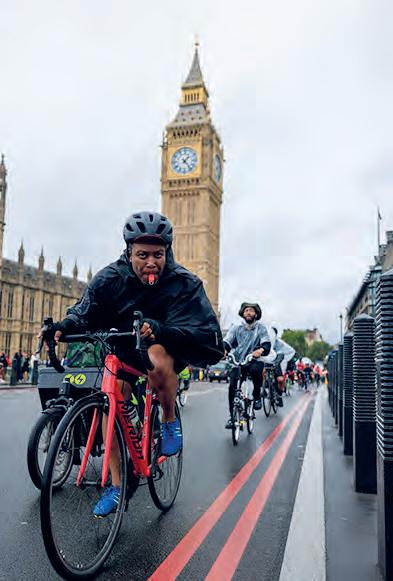
“We have seen the work of TLCA first-hand and are very inspired by what they can achieve with such limited resources.”
In the UK, survey results for the 2023 BUBR main event found that as many as 200 individuals were inspired to start a new cycle club or crew as a result of their participation. Last year’s event welcomed almost 1,000 participants, with the movement aiming to encourage even more Black people on to two wheels. The
post-event survey of participants found that 68 per cent were inspired to cycle more often, 69 per cent were inspired to think about their health and wellbeing and amazingly half of all participants were inspired by BUBR to join a cycling club, while a quarter of participants were inspired to start a new cycle crew or club.
In a nutshell, as the event approaches its fifth year, it’s fair to say BUBR is a huge success.
According to Sport England research, 75 per cent of people from an ethnically diverse background never cycle and only 57 per cent of Black people are
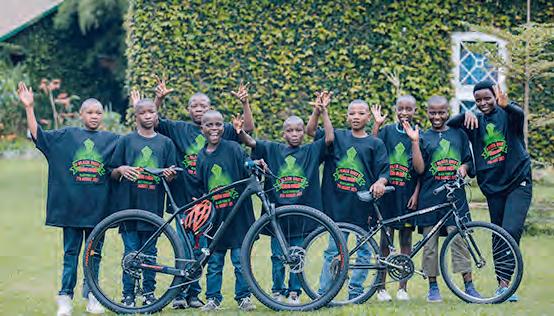
considered active – which is even lower than the majority of other ethnic groupings. The BUBR serves an inclusive Black pan-London community, where many are cycling novices – only 22 per cent of the BUBR community describe themselves as advanced cyclists.
Ajasa-Oluwa, says: “We are very excited to deliver the fifth edition of this wholesome event.
“It is a unique and organic community event that celebrates cycling, inclusion and Black culture.
“BUBR targets the Black community and welcomes all that celebrate Black culture
and are keen to see the sport of cycling diversify. This year we pray for good weather and expect to welcome 2,000 participants at the ride now dubbed the carnival on bikes.”
Hamid Vaghefian, Head of Community Engagement at London Marathon Events, said: “Cycling is an invigorating and inspiring activity that offers everyone the chance to do something good for their physical and mental health and wellbeing.
“The Black Unity Bike Ride is one of the best examples of bringing people together to show that cycling is for all, and the results from the 2023 post-event survey
show it is working, as well as supporting positive behavioural changes.
“They break down barriers and nurture unity in the world of cycling, and I am excited to see the event continue to grow. Following the success of Ford RideLondon, it is great to see bikes once again transform the streets of London, and paint a truly diverse and inclusive picture of this great city.”
See you at this year’s ride.
l For more information and to register for the (FREE) Black Unity Bike Ride 2024, check out their site here: www.blackunitybikeride.com
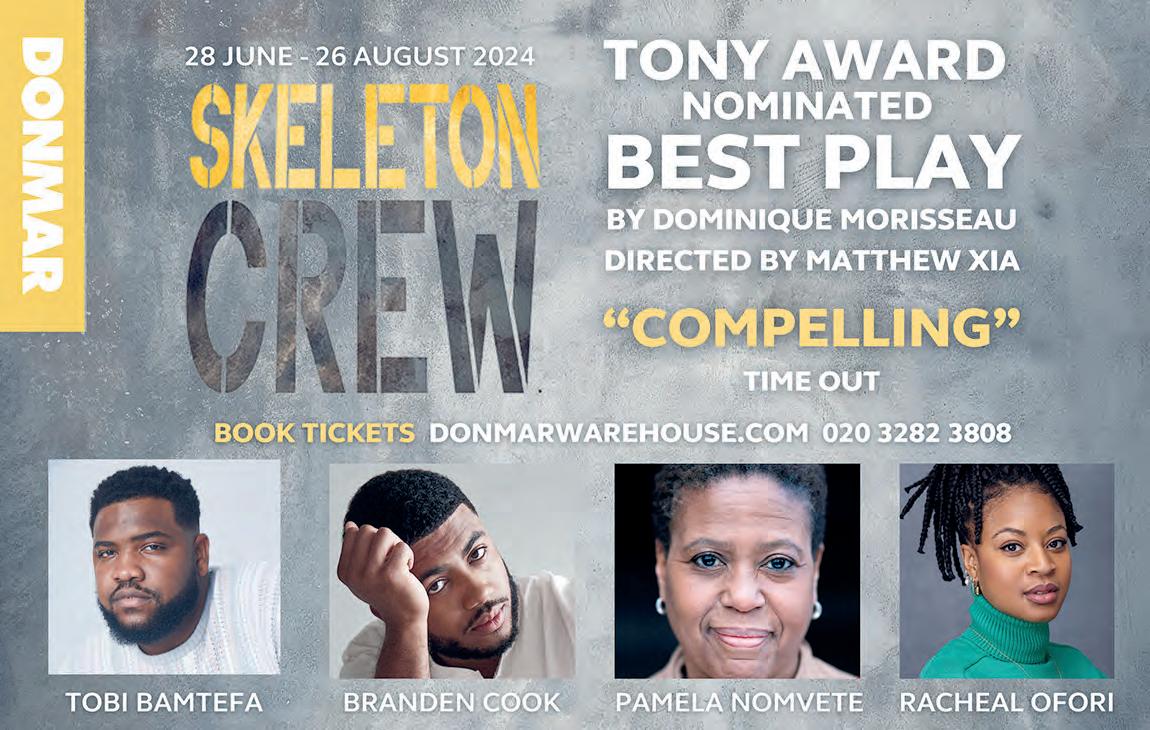
HOME SOIL: Fun during last year’s soggy London ride
ALL FOR THEM: Youngsters in Rwanda have benefitted
He’s been at the centre of Black British music for the past 15 years. And as GRM Daily celebrates its 15th anniversary, we take a moment to appreciate the legend that is Koby Hagan, AKA Post.
By Joel Campbell
AMIX of humility and self determination, underpinned by a pursuit of excellence that is unrelenting, innate, inherent, simply a part of him. That’s how this journalist sees Post, aka Koby Hagan, the man responsible for creating the platform we know as GRM.
And no, he didn’t create it alone but in the year the UK’s global epicentre of everything UK rap and contemporary music celebrates its 15th anniversary, this article is about him.
By the time we finish the interview/conversation about the highs and lows of the last decade and a half, Post revealed that he rarely likes to sit and talk about what he’s done, preferring instead to focus on the immediate future, the what’s next. It makes sense.
Part way through our discussion he gives me a gem of an insight into how he has managed to stay at the fore of so-called Urban culture (very much just culture now) and it’s a strategy that has served him well.
“I don’t look too far ahead,” he explains.
“We don’t even use data. For example, we’ve got our latest series, GRM radio, which features artists performing with an incredible band, one of the most notorious bands in the UK, The Compozers, and yeah it’s just artists rapping with a live band.
“Kids might not necessarily think, ‘Oh, this is the sickest thing in the world’. But we do. So sometimes we do things for ourselves and hope other people like it as opposed to just doing things that we know will drive numbers. It’s not the ethos of GRM.”
There will be few that identify with Post’s mindset, but there will be many that look at what the CEO and founder of the biggest music and culture platform in the country has achieved and wonder how he managed to keep it all going if, where he is now, wasn’t the goal all along.
New business ventures can get bogged down with plotting and planning the future, everything seems like it has to be fixed in one’s vision from the outset.
Post has built an empire that has been a little more malleable than that. The results are there for all to see.
HERE’S TO YOU, POST

As one of the first Black British media moguls, Post’s entrepreneurial spirit has pushed everyone towards the same goal and provided a platform that elevates and celebrates UK music and culture.
The platform has gone from being a place to discover the best rising talent, to being at the very heart of everything in the music and culture space.
Since inception, the GRM Daily YouTube channel has amassed
more than 10 billion views (and counting), and is currently sitting at just shy of seven million subscribers (three times more than any other British music channel), proving it really is the home of Black British music.
“I think the significance of YouTube as a platform would be one of them,” Post says when asked what the major pivot points were on the journey from inception.
He added: “And being one of the
I think our consistency and dedication to honing Black British music was another pivot point
first in this space, and when I say first, I don’t know who the first was, but being one of the first to identify that this is where people are going to be consuming music moving forward.
“Being one of the first was, I think, definitely a pivot point.
“I think our consistency and dedication to honing Black British music was another pivot point, because we just were relentless in telling that story and promoting that music.
“It just went on for years and years and years and years, and I think that sometimes it just takes a long time to build an audience, and that then in turn translates to the masses.
“So I feel our consistency definitely played a part in that.
“And definitely our peers in terms of the musicians that we work with, because inevitably it’s their art that we’re promoting. So if it wasn’t any good then none of this would have been possible.
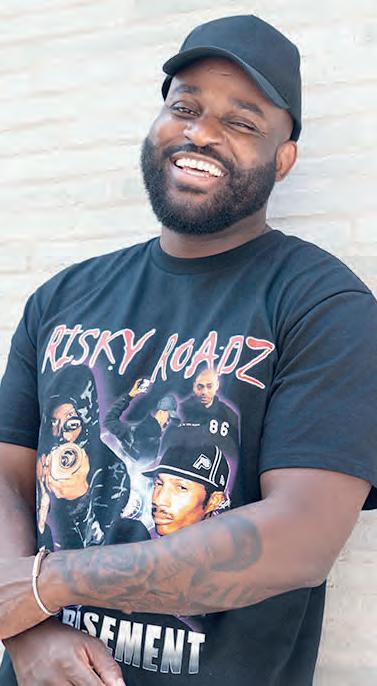
as much as I could. I would be uploading videos myself, I’d be running social media accounts. I’d be populating the website.
“I had help, of course, but not the help that I have now. I’m busier now in the sense of more on a creative level and more on a managerial level and actually trying to work out the destination of which GRM is going on a day to day basis, on a month to month basis and on a year to year basis.
“So I think, yeah, it’s different types of busy but busy all the same.”
Drawing from his own experience, Post is keen to express how important it is for the next generation to identify that school doesn’t offer everything they need to be a success in his area of business and that building the right team is key.
In most instances, he insists, being patient, willing to learn and working hard will yield positive results.
“I think school skills and life skills are totally different. I was quite studious in school, I mean. I had really good grades, and I actually did really well. Until university. And then I realised that a lot of what I’ve done and my experiences in life have been theory and not practical.
“I started GRM in law school and I had to adjust from being a theory person to a practical person.
“So, taking it off paper and actually putting those skills into real life. And that’s when I started.
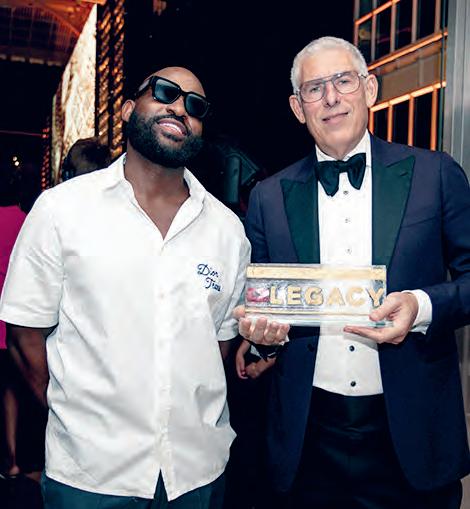
to them for being as creative and dedicated as they were, and trusting the brand as they did, and other brands in this space.
“I feel like all those things played a part in pivoting us from where we were to where we are now.”
For the young entrepreneurs out there keen to follow the blueprint laid by Post where GRM is concerned he says the notion
you become more successful is a fallacy.
Speaking on how the building of this now media empire required different energy from him at different stages, he explains:
“I think you can be busy in different ways.
“At the start of our journey I was busy in terms of manual labour. I would go on shoots physically
great artists and releasing singles with never seen before collaborations.
Fredo & Not3s, Aitch & B Young and D Double E and Unknown T are just some of the collaborations that only Post could bring together.
He’s buss some big names in the 15 years while at the helm of GRM.
He wouldn’t be drawn on anyone single artist, group producer, understandably, but he did say: “It’s one thing to have a dream but then it’s another thing to see it come into fruition.
“And see people take something that you were a part of creating and growing on that.

“And I think the most important thing for me in terms of GRM. Is like the impact to the Black British economy.
“We have thousands of people that are now cameramen, videographers, directors. The number of people that are now editors, photographers, stylists and make up artists and A&R agents.
“We were part of creating money in the ecosystem for young Black people and people from poverty stricken backgrounds.
“And I feel like that’s the greatest gratification, gratification that we get from our job.”
Continuing the legacy, 2024 sees GRM maintain its tireless championing of British music and delivery of game-changing content.
GRM and that’s where I pull my eggs in.”
“To be honest, not everything is taught at school.
“I think important things are taught in school, but not everything. And I think that a lot of things when you’re going from childhood to adulthood is a lot of trial and error and patience, actually. You’re not gonna get everything right straight away.”
He added: “But then you also need the patience and the relief to hope that things work out, and you find the right people that share your vision and want to support the cause in which you’re fighting or the goals in which you want to reach.
“There’s no secret to it but trial and error and patience.
“Some people say they can do all these things that you might be looking for, but they might not be necessarily for your business, or for you.
“Or some people might not know anything, and they are willing to come and learn and then end up being well versed in areas that you might not be as well versed in.
“And sometimes people are what they say on the ting and everything works. It’s definitely a trial and error situation, and patience.”
In his time Post has spearheaded a record label in partnership with Parlophone, signing a host of
From the evolution of stable content series like ‘Daily Duppy’ and ‘GRM Radio’, the platform has also recently launched two brandnew content series
Eddie Abbew Show in a Culli
Hosted by Post, a Culli
glimpse into the world of some of the UK’s most iconic artists all while cruising in an iconic Rolls Royce.
It’s a role he approaches with an understanding of the responsibility that comes with it.
“I think is how hip-hop culture is consumed these days, and has for the last couple of years, through conversation.
“And I don’t think that GRM has thus far has put its best foot forward in terms of who we can converse with, and what those conversations could be about.
“That’s what is about. Offering myself up to create that service, because it would be difficult to accomplish the things I’ve mentioned if someone else was doing it based on the relationships that I might have with artists or the experiences, or maybe the depth of knowledge that I have regarding their lives.
“Especially as young, Black,
Events wise, The Rated Awards began in 2015, and are undeniably the most respected awards ceremony in the industry, mostly because of GRM’s acute ability to always recognise and reward the next generation long before anyone else does. The show itself has been featured on prime time slots on Channel 4, and garnered millions of views across YouTube.
With the GRM Gala, the bar has been well and truly set, it’s a feather in their cap, but Post won’t be resting on his laurels.
I know a lot of things that go on behind the scenes because I’ve experienced it. So I’m able to speak to them on that level. I can relate
successful people. I’ve personally been through it and so I can relate a lot, further than the glitz and glamour, or what people see on paper.
“I know a lot of things that go on behind the scenes because
Speaking on how he was inspired to bring the event about in the first place, he enthused:
“I think it all came from my experience at the Roc Nation Brunch.
“I went there, and I’ve never seen anything like it in terms of the level of detail. The attendees, the luxuriousness of it.
“It was a breathtaking experience for me just being surrounded by such class and elegance. I came back to England, and a month later the first GRM Gala was born.
“And that was simply because I wanted my peers and people that we work with and have a relationship with, to experience close to what I experienced that day. Because I know that everyone from here might not necessarily have the opportunity to experience something like that. Some people will, and but not everybody, and I just wanted it to be something that people strive
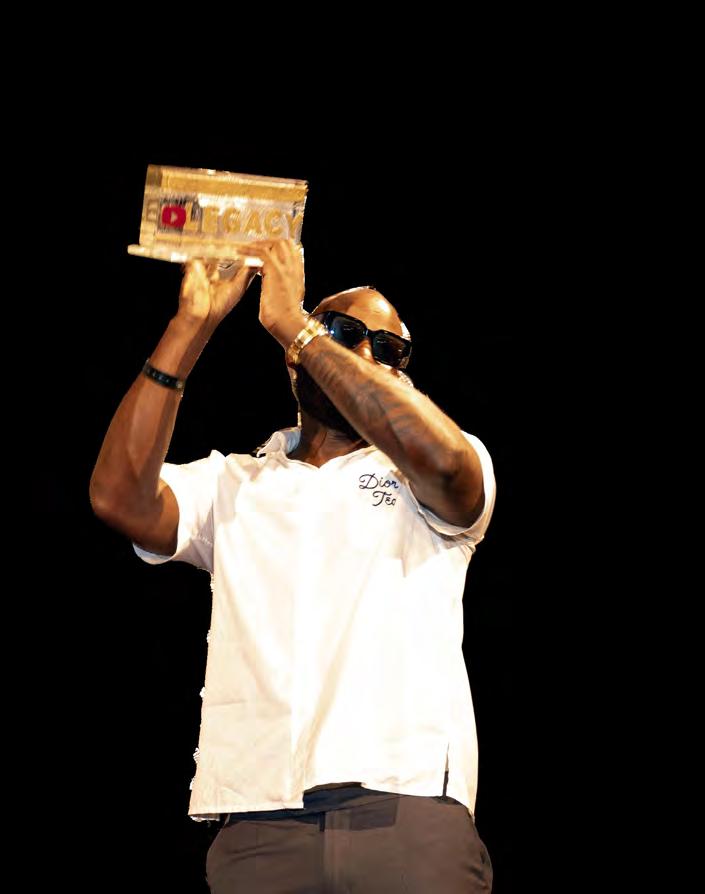
“Just giving people options constantly of avenues in which they can aspire to and grow to and get to and I think and that was
In the end, after all is said and done, the motive for the birth of GRM was just to be seen, heard and respected. It’s clearly, job done.
“I think that when I was younger I just wanted Black British music to be popular in the UK,” Post
“And I felt like there was not enough of an audience paying attention to the maximum gross amount of talent that we had here,
“I noticed that in France French hip-hop music was the biggest thing, in America, American hip-hop music was the biggest thing in America and I always wondered why we didn’t have
“So when I look at things now, I think that it’s an amazing feat what we’ve all accomplished together as a community of people that love music and wanted to spread what our
“Just being able to see how people are successful in the music industry now, and are able to feed their family and build a legacy and be regarded as real musicians, is just a
REAL MEETS REAL : With US music exec Lyon Cohen (photo: Waryamus)
HUMBLE : Post appreciates his success and stays true to his roots

‘Riddim Beast’ DJ Taffy is leading the change in direction for Nasty Business, which is seeing Bouyon dominate the Caribbean
IT was at last year’s Carnival party that I first met Dominican music star Shelly from The Signal Band. At that meeting I apologised to him and said: “I have to do better!”
My reasoning for this was because I witnessed the power of a musical movement at this event from Dominica that I had no idea of. This was Bouyon and the movement of Nasty business. Bouyon quite literally is the creole word for soup, or a mix up, which this definitely is.
The energy I witnessed from him and Asa Banton that night was something incredible with the show of Dominican flags making other flags look non-existent in the crowd.
This is Brukout!
TAFFY DOING IT RIGHT:
DJ Taffy says Bouyon is taking over
by Seani B
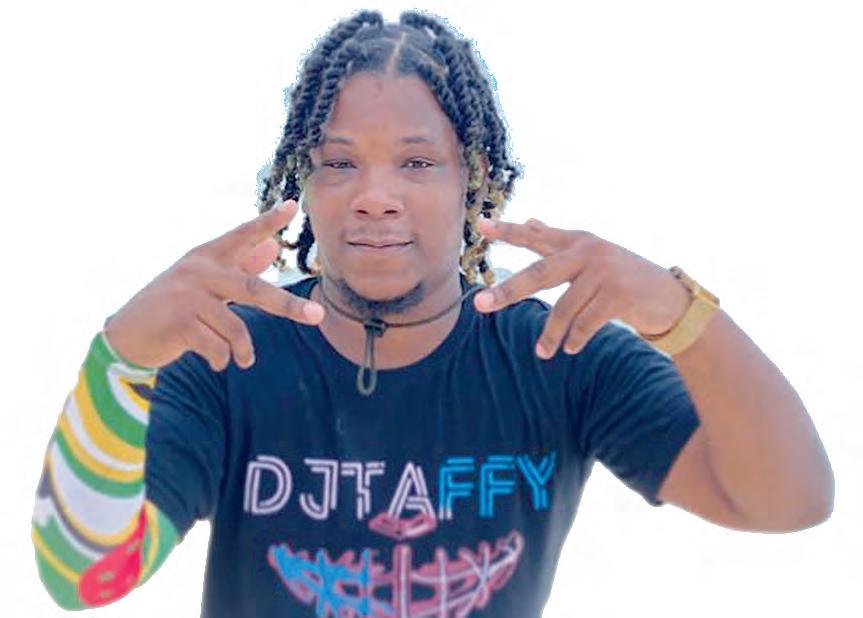
I was aware of what Bouyon was, but not this version! My one reference was The WCK Band and the song Balance Batty
Shelly didn’t make me feel so bad on our second meeting when I told him that Balance Batty was my only reference as that was always the go to song to represent the DA in any situation, to which he agreed.
But a lot has changed over the last few years and I saw that first hand on my recent trip to Dominica to watch the world cup qualifier between The Reggae Boyz v The Bouyon Boys in the island’s capital of Roseau. My father was born in Pointe Michel, Dominica and my mother in St Andrew, Jamaica.
So as a JamDom this meeting between my two bloodlines was something I couldn’t miss.
En route to Dominica, I stopped off in Antigua and this is where Shelly saw I was true to my word that I wanted to investigate the genre in more depth and what Nasty Business was all about.
My knowledge of the Nasty side was quite comparable to what I am used to hearing in dancehall music, from the likes of Rajah Wild with
Bouyon pioneers: Triple Kay International are leaders in the Bouyon game
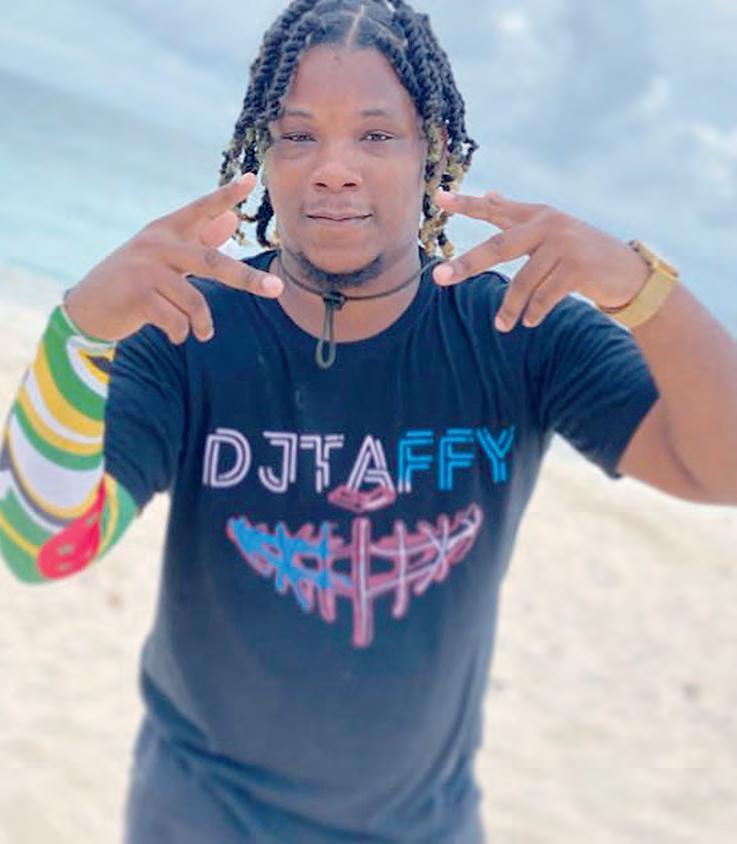
‘BOUYON IS AT ITS HIGHEST PEAK YET’

no holds barred explicit lyrics. This new wave is raw and uncut and straight to the point sexually. Especially orally, unlike the Jamaicans!
On our brief link up, Shelly explained to
me enough to know that Nasty Business was exactly as I saw it with a new direction by producers in the studio, but what he and Signal Band brought to the table was rated ‘E’ for everybody and more rooted in the original live sound.
This new change of direction has been led by someone who has earned the title of ‘The Riddim Beast’.
Professionally known as DJ Taffy, this is the name that
the riddim was Situationship by Nice, that has over 2.2 million views on YouTube.
Not bad for a country of just 73,000 people.
As someone that grew up under the iron fist of a Dominican father I didn’t see this coming from this side of my
I always thought my Jamaican side was more raw. But Taffy tells me: “People have started to accept certain things. Outside artists come to Dominica to sing about those things, why can’t we
“Nasty Business has put Bouyon at a peak that it has never seen before. We are hearing the music in other islands. For example, Trinidad never used to play Bouyon before. Maybe a few WCK, but right now it’s dominating the Caribbean,” he states confidently. This level of confidence was also echoed by band Triple Kay International, who have been at the forefront of Bouyon music for over 20 years. While in conversation with Super Killa from the
People have started to accept certain things. Outside artists come to Dominica to sing about those things — why can’t we?
band he told me how he turned the Caribbean upside down with one statement.
This statement was that the anthem Famalay by Skinny Fabulous, Machel Montano and Bunji Garlin was Bouyon and not Soca. He said it was credited as a Soca track because of the artists featured, but the riddim is a Bouyon riddim created by Dominican producer Krishna ‘Dada’ Lawrence.
This was important to him and equally as important for me to know from him that Bouyon is not Soca and should be under the umbrella term as some like myself use it.
has been touted as someone I had to speak to.
Eventually meeting with Taffy he seems more reserved and humble than what Nasty Business seemed to bring. He could have easily boasted his accomplishments as he is responsible for a huge chunk of producing many of the young stars. This is evident in 2023’s Funny Riddim that even featured Trini artist Nailah Blackman.
One of the breakout songs on
I can feel the patriotism that runs through every conversation I have with each artist who represents the music under the flag of Dominica and if you sense a little bias from me maybe as it was the first time that I was truly torn when while watching Jamaica defeat Dominica 3-2. But what I do know is what will be winning in the streets of Nottinghill Carnival for 2024, is the sound of Dominica and Bouyon for sure.
I better start learning some patois now...
your copy!




40 Years of Black British Lives published by The Voice shares the narrative of the Windrush Generation and their descendants in Britain.
The book chronicles stories of education, politics, entertainment and sport amongst others as told through the pages of The Voice. It is an essential read.


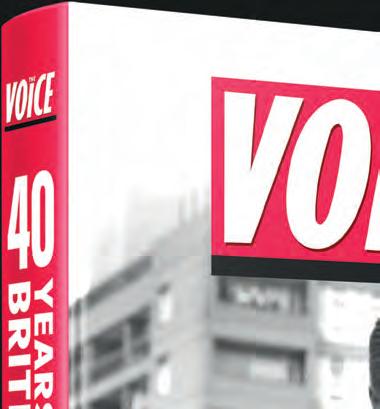





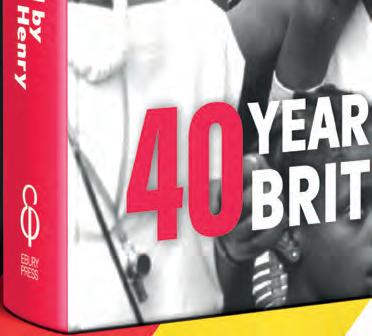
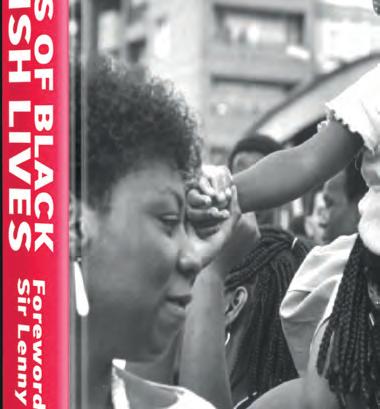
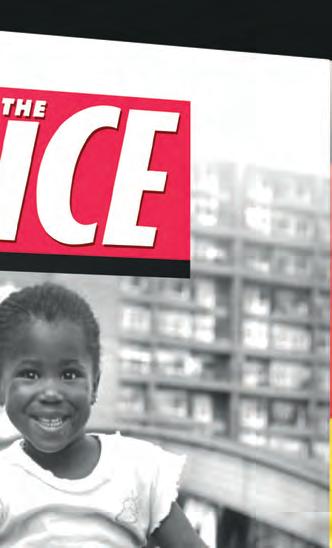
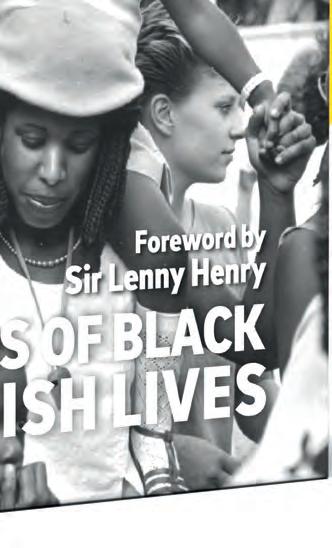



Lifestyle Technology
IT’S AN opportunity for the Black community to come together and learn more about “tech, gaming and financial education,” says Dexter Simms ahead of the second Black Tech Day taking place in South London this month.
Brought about in order to help future proof families by assisting them in building lifelong financial independence and guiding children on to the path of selfdiscovery and success, BTD is also a place where you can learn to scale a business you’re currently running.
“When you hear tech you usually think of the upper class, when you hear tech you usually think of the Excel Centre or the O2. It’s just the same with Gaming. And perhaps more importantly when you think about finance, we think about Canary Wharf or Central London,” said Simms.
He added: “At Black Tech Day we want to make a change, we want to make sure the underprivileged communities, the poorer and more at risk communities, especially with the borough of Croydon having the most youth in all of the boroughs in London, we wanted to make sure that these young Black youth have the opportunity to be included in tech and gaming.
“Across the two days of July 20 and July 21, we’ll be providing financial education, technology in gaming for the whole family. There will be 30 guest speakers, workshops and competitions, giveaways and more”.
He continued: “We’ll be bringing awareness to education and tech using gaming. For me, the most important thing we’ll be providing is financial fundamentals for families to take home.
“Last year guest speakers who featured were Damien the Magician, Emmanuel Asuquo and Big Narstie.
“This year we wanted to include more financial celebrities and influencers, not to mention we’re having a one vs one under-12s football tournament hosted by The Streets Football.”
In 2022, Simms, a serial entrepreneur, told Lifestyle following a financial clinic he’d hosted which introduced families and to Digital Assets, that ‘a lot of people still don’t know what an NFT is, that’s where we come in as we believe it will be a big part of the young people’s future. Not

overwhelmed by the jargon in the space, there’s a lot to learn and they may need a hand.”
BTD 2024 takes place at Merky FC HQ, a football and community centre in Selhurst, London, designed to nurture the voices of tomorrow.
The venue boasts a full size 3G pitch, recording studio and gaming room. #MerkyFC came about through a partnership between adidas and Stormzy, who is local to the area.
When the partnership was revealed in 2022, Stormzy said: “Just 6.7 per cent of senior roles in football are taken by someone
Black Tech Day founder Dexter Simms says it’s important for underpriveleged communities to be part of the conversation and vision. By Joel Campbell
‘We
want Black youth to be included’
heritage. We barely see any Black team managers, coaches, sports presenters, assistants, ops managers, sales managers, accountants, marketing managers or physiotherapiststhe list goes on, nor are many of us even aware of the vast roles available within the football industry.
“Through the #MerkyFC initiative we hope to inspire real change within this field as part of my wider commitment to support racial equality in the UK.”
He added: “With the support of adidas and the additional 10 partners, we will be in a position to aid the people who may have experienced disadvantages during their football career pathway.
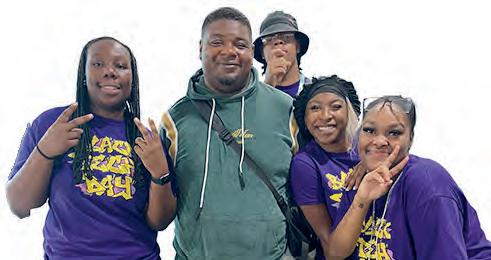
“We strongly encourage other companies to join us in our
The ethos of why the venue was born is firmly
KEEPING IT REAL : Big Narstie spoke at last year’s event
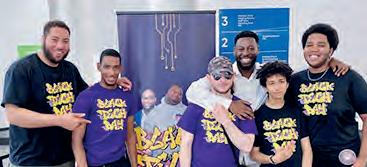
in keeping with Simms’ visions to enable people from the Black community, particularly those who find themselves coming from disadvantaged backgrounds, to carve out a career in business, finance and the emerging Web3 sector.
The BTD founder said last year’s event was a big success for diversity.
Feedback showed a high level of engagement with the under-25 age group across all areas.
Some 86 per cent of attendees found inspiration watching at least one of the many panel talks. The same percentage of attendees expressed interest in signing up for future courses or training with BTD’s education providers, while
a third of attendees signed for training and courses at BTD itself.
The most popular workshops that attendees participated in included: Essential Skills for the Future; The Future of News; UX Design; Coding Q&A; Work & Business Pre; Artificial Intelligence; No Code Skills and Virtual Reality.
He enthused: “What we hope to achieve is internships, create more networking opportunities and bring more awareness to the different types of job and business opportunities that are out there, which often get missed by the underprivileged communities.”
He added: “With so much information out there on the internet and so many ways to
scam people, we believe that Black Tech Day offers trusted and transparent information and all at an affordable price.
“Most of the big tech or gaming events sell out on the same day or they charge you £200 to £2,000 a ticket, which is definitely out of the range of the ordinary.
“You can attend BTD for anything from £10-£30.”
This year’s sponsors include Solana, beatsora, and superteam UK.
There are still opportunities available to sponsor.
“For the past 20 years, I have harboured a vision of independence,” said Simms.
“A vision where entrepreneurship transcends mere business and becomes a way of life. My aim, and the aim of the Black Tech Day event, is to unlock the inner greatness of individuals by imparting essential skills often overlooked in traditional education.”
l Black Tech Day takes place on July 20-21 at Dagnall Park, London SE25 5PH. More information here: www. disruptionbanking.com
ON BOARD: Attendees with Dexter Simms last year
Spellbinding novel scores Joseph medal for writing
Current Children’s Laureate is presented with Yoto Carnegie Medal.
By Joel Campbell
FOR THE first time, the Yoto Carnegie Medal for Writing was awarded to a Black British author, and the current Children’s Laureate – Joseph Coelho – for his “beautifully descriptive” novel in verse The Boy Lost in the Maze.
Coelho said he was “absolutely delighted to be the recipient of this year’s Carnegie Medal for Writing”, an accolade established in 1936 and awarded annually to a children’s book author whose writing creates an outstanding reading experience.
The Boy Lost in the Maze is a spellbinding novel told in poems, blending the ancient legend of the Minotaur with the quest of a modern-day teenage boy to find his biological father.
The book brilliantly blends Greek myth with a 21st Century quest.
Each story tells of a boy becoming a man and discovering what true manhood really means.
The winners of the Yoto Carnegies were announced last month in front of an audience of more than 600 children at a live-streamed ceremony at the Cambridge Theatre.
Coelho’s win is a fitting tribute to an award that is uniquely
judged by librarians and to his outgoing tenure as Waterstones Children’s Laureate (2022-2024) where he launched the ‘library marathon’ project – a personal mission which saw him visit and join a library in every region of the UK, a total of 213 nationwide, to highlight their importance and show the support they provide to local communities.
The Yoto Carnegies celebrate achievement in children’s writing and illustration and are unique in being judged by an expert panel of children’s and youth librarians, including 12 librarians from CILIP: the library and information association’s Youth Libraries Group.
The winning titles were selected from a shortlist of eight books in each category with the judges praising the “timeless storytelling” and “cyclical nature” of the winning author’s and illustrator’s work, allowing them to be “enjoyed in perpetuity”.
Each year thousands of
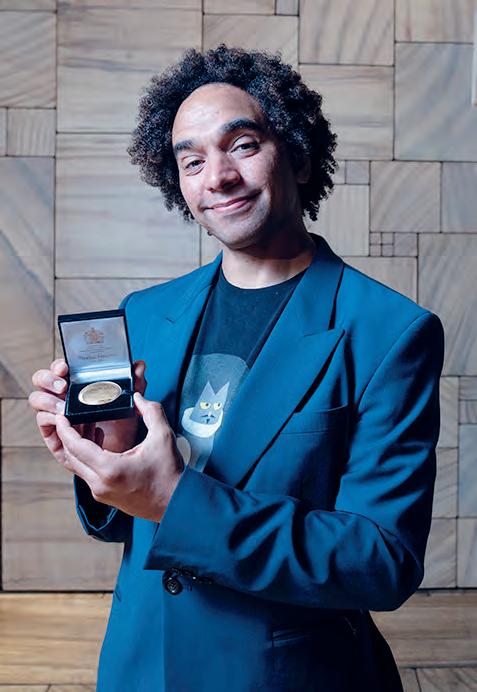
‘HONOURED’: Joseph Coelho has won the Yoto Carnegie Medal for Writing
THE HIP HOP MBA
By Nels Abbey
What does the founding of the Sugarhill Gang teach us about business development? What can we learn about management and leadership from Jay-Z’s decades-long dominance? What does Ice Cube’s refusal to accept $75,000 to remain a member of NWA tell us about risk management? What can we learn about market dominance from the Death Row and Bad Boy Records beef? What does the rise and fall of MC Hammer (and the near fall of Rihanna) reveal about the psychology of money management? Does Lil Nas X have anything to teach us about corporate diversity?
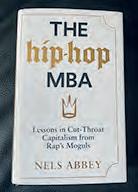
In The Hip-Hop MBA, banker-turned-writer Nels Abbey offers an alternative and entertaining look at business and economics through the rise and triumph of Hip-Hop. This is the story of how rap industrialists – like Jay-Z, Suge Knight,
ZARA: THE TRANS-ATLANTIC SLAVE GIRL
By Sophie Adegbotolu
“Another Eke morning...” You might think that it’s just a typical day. Well, that’s what Zara was thinking, getting ready for the day and BANG! The worst nightmare of her life is her mother being killed, and there’s nothing she can do. This is a story of a girl who was abducted in the 19th century from today’s Igboland, Nigeria. This book gives an illustration of life on the Trans-Atlantic journey to America.
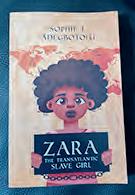
Through the abduction, she lost her biological family. But she gained resilience and other families on her journey,
reading groups in schools and libraries in the UK and around the world get involved in the Awards, with children and young people ‘shadowing’ the judging process, debating and choosing their own winners
Maura Farrelly, Chair of Judges for The Yoto Carnegies 2024, said: “The Boy Lost in the Maze is an extraordinary novel told through poems about two boys searching for their fathers.
“It is a multi-layered immersive read which is playful in its language and construction and is as architectural as the mythical maze itself.”
He added: “Thank you to all the young readers who took part in the Shadowing programme and to the librarians who continue to support and inspire readers and to champion the best in books for children and young people everywhere.”
Award-winning and bestselling author Coelho enthused: “The Boy Lost in the Maze is a novel that means a great deal to me and so to have it recognised by the UK’s, if not the world’s, most prestigious award for children’s literature feels particularly special.”
He added: “During my tenure as Laureate I have had the
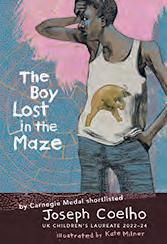
pleasure of joining a library in every local authority in the UK, meeting librarians and patrons of libraries on buses, in converted flats and in gorgeous Carnegie buildings.
“The one thing that has been consistent between all libraries has been the passion, skill and creativity of the librarians. “Through their essential work they are tackling social isolation, providing access to essential services and of course creating the readers of the future.
“I feel completely honoured that it is librarians who have deemed The Boy Lost in the Maze as worthy of a Carnegie medal and will forever be grateful to the team at Otter-Barry Books, illustrator Kate Milner and my agent Caroline Sheldon for helping me bring this story to bookshelves and into the hands of readers.”
including her British-American slave owner turned mother, Baroness Victoria Washer.
WORK IT LARA BLOOM
By Dee Benson
Lara Bloom is back with more teenage catastrophes ... When Lara’s school announces a young business competition, her friends are buzzing with ideas. But Lara’s focus is on her football training – this is her big chance to take her playing to the next level!
As Lara and her friends set their sights on the prize, can she figure out a way to balance everything and have fun? Certain people seem to be taking pleasure in watching Lara struggle to keep her cool . . . If Lara is going to achieve her dreams, she’s going to have to work it!
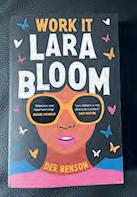
Friendship, football and feelings combine in Lara’s hilarious latest teen diary.
Sylvia Robinson, Puff Daddy, 50 Cent and Bryan ‘Birdman’ Williams – took chronic economic pain and turned it into champagne.
Photo: Tom Pilston
Grenada’s history maker aiming for glory in Paris
Ahead of the 2024 Olympics, one-lap star Kirani James spoke to the Voice of Sport’s Rodney Hinds about life in the fast lane…
KIRANI JAMES is a very special athlete. A world 400m champion at the age of 18 and an Olympic champion a year later at London 2012, when he also became Grenada’s first ever medallist in the history of the Games, Kirani won silver behind Wayde Van Niekerk in a race for the ages at Rio 2016.
Born in the fishing village of Gouyave on September 1, 1992, he first made his mark in track and field in his teenage years, recording the fastest ever 400m time by a 14-year-old and running a world best again when he turned 15.
James was still only 18 when he became the youngest 400m world champion of all time in Daegu, South Korea in 2011, his time of 44.60 giving him gold ahead of the USA’s LaShawn Merritt and Belgium’s Kevin Borlée (44.90) and earning Grenada its first ever IAAF World Championship medal. In topping the podium, James joined the very select band of athletes to have won world youth, junior and senior titles. He ended the year by also winning the IAAF Diamond League.
James then headed to London 2012 as one of the favourites for Olympic gold, and laid down a marker by running a personal-best 44.59 in the semi-finals. Drawn into lane five in the final, the 19-year-old flew down the back straight and emerged from the final bend with a sizeable lead.
He extended it down the home straight and cruised to victory with a new PB and national record of 43.94, finishing well clear of old junior rival Luguelin Santos of the Dominican Republic and Trinidad and Tobago’s Lalonde Gordon.
In becoming the first non-American runner to dip under 44 seconds in the event, he also won a first Olympic medal for his country. He said at the time: “It means a lot. Grenada will be going crazy right now. This is a huge step for our country in terms of stepping up to the plate in track and field, just going out there and putting us on the map.”
RH: Who inspired you to pursue

athletics, and at what moment did you realise you wanted to make it a career?
KJ: When I first started off it was more about the opportunities that it could have provided for me more than a career, things like scholarships to higher
intense physical training with mental preparation?
KJ: It’s a good balance between those things, I usually get weekends off from training, and I also do a lot of recovery work, massages, and with the physios every week. I do a lot of visualization, thinking about how I would want to run a
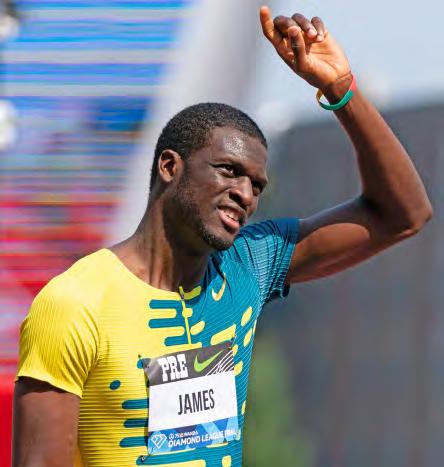
Looking back at your illustrious career, which races stand out as the most memorable for you and why?
KJ: I would say the London Olympics for what it meant for my country having the first medal ever in an
What have been some of the biggest challenges you’ve faced in your athletic career, and how have you
In 2017, I got diagnosed with Graves disease, which affects your thyroid, it was
“In 2017, I got diagnosed with Graves disease. It was tough at first but I had great support from people around me”
tough at first because it happened all of a sudden, but I had great support with coach Harvey Glance and people around me to help me navigate through it well, understanding the changes my body was going through and adjusting to make sure that I’m in the best situation. The hardest thing was coming back having my first race because when you don’t compete for so long, even if you are training well, I was still a bit nervous.
RH: As a role model to many young athletes, what advice would you give to those looking to follow in your footsteps?
KJ: As a role model, I would say the things that would separate you from other talented athletes are no secret, it takes hard work, dedication, prioritising, sacrifice and make sure that you are
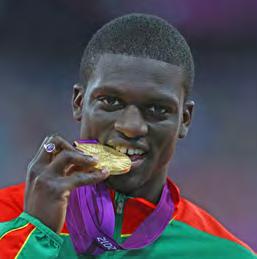
serious in what you want to achieve, and also have a realistic outlook on things. But in the same breath enjoy the journey and experience. You will meet a lot of interesting and great people that can be connected to you for the rest of your life.
RH: What are your main goals for the upcoming season, and are there any records you’re aiming to break?
KJ: One of my future goals is to compete at the 2028 Olympics!
RH: Apart from athletics, are there particular causes or community projects you’re passionate about?
KJ: I am a part of a foundation in Grenada called WINDREF which focuses on health and environmental causes through programs throughout Grenada. I think it’s extremely important, especially in this technological age, the biggest thing for me is to limit social media as much as I can.
RH: How would you like to be remembered in the world of athletics, and what do you think your legacy will be?
KJ: That I was consistent and that I always competed to the best of my ability and that I represented my country Grenada and the sport of track and field well.
FLYING THE FLAG:
Kirani James celebrates after winning the gold medal in the men’s 400m final at the London 2012 Olympic Games


It’s been a testing few years for Chantelle Reid – but she’s now part of Team GB’s boxing competitors. By Rodney Hinds
MIDDLEWEIGHT
Chantelle Reid and superheavyweight Delicious Orie are among the boxers that will represent Team GB at the upcoming Paris Olympics.
Reid toready shine after time fromaway ring

EMILY IN PARIS: CAMPBELL IS GB’S SOLE WEIGHTLIFTER
By Rodney Hinds
EMILY CAMPBELL has been named by the British Olympic Association (BOA) as Team GB’s sole weightlifter for the Paris 2024 Olympic Games. Campbell will compete in the +81kg category, marking her second Olympic appearance following her historic performance at the Tokyo 2020 Games.
Campbell made history in Tokyo, where she won a silver medal in the +87kg category, becoming the first British woman to win a medal in weightlifting at the Olympics. This monumental achievement set the stage for her continued success on the global stage.
Her selection for Paris 2024 comes after a series of impressive performances on both the world and European stage, including the 2022 Commonwealth Games in Birmingham where Campbell dominated the +87kg category, winning gold with a total lift of 286kg, and a record-breaking clean and jerk of 162kg.
a junior, her father Duane, a former boxer himself, having trained her since she was a child.
Forced to step away from the sport as a teenager, she undertook an apprenticeship in wealth management before returning to the ring in early 2023.

Team GB Chef de Mission, Mark England said: “I’m delighted to welcome Olympic silver medallist Emily back on to the team. I can think of few athletes who made such an impact at their first Games as Emily did in Tokyo.
Reid’s is a real story of tenacity.
The young boxing prodigy won European gold and world bronze as
Highly regarded Reid and Orie, who was born in Moscow to a Nigerian father and a Russian mother, is joined by Charley Davison, Rosie Eccles, Lewis Richardson and Pat Brown.
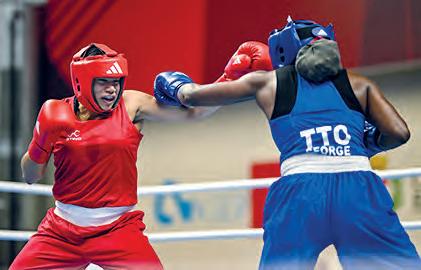
The three men and three women earned their ticket for Paris by securing a quota place at one of the three Olympic Qualification events organised by the Paris Boxing Unit of the Internationall Olympic Committee, which has managed the boxing pathway to Paris 2024. Orie secured qualification when he represented Team GB at last year’s European Games in Poland, where he won gold.
Team GB Chef de Mission, Mark England, said: “The GB boxers have always been an important and integral part of Team GB. The six selected today bring real talent, character and personality to the team and we’re all looking forward to seeing how they perform at the Games.
“In Performance Director Rob McCracken, the boxers have an exceptional mentor, who knows how to bring out their best performances. I’m
“The boxers have an exceptional mentor, who knows how to bring out their best performances. I’m excited to watch them compete”
excited to watch them compete.”
The line-up includes two Commonwealth Games champions in Eccles and Orie who both won gold at Birmingham 2022.
Orie said: “Winning gold at a multi-sport event like the Commonwealth Games was brilliant and I am looking forward to putting all of that experience to good use at the Olympics.
“We have all worked so hard to get to this point, it is great to have qualified, but the job is not yet done and my aim is to keep working hard and make sure I am in the best possible shape when it comes to competing on the biggest stage of all in Paris.”
“Not only did she become an Olympic medallist, but importantly she has used her platform to inspire countless young people, and particularly young girls, to try weightlifting and understand it can be a sport for everyone.”
Campbell said: “I’m beyond excited that I’ve been selected for my second Olympic Games. Paris is set to be a very special Games, and I cannot wait to get out there and put on a show.”
British Weightlifting Head of Performance, Stuart Martin added: “We are delighted that Emily’s place at Paris 2024 has been confirmed. The qualification process has been competitive. Despite a few bumps in the road Emily has maintained her position as the top lifter in Europe for the last four years running, and is the only super heavyweight female athlete from Europe to qualify for Paris.
“We’re in the final stretch and Emily is training hard with both eyes on a repeat of her ground breaking performance in Tokyo. We’re excited and Emily and the team are putting the work in for a medal winning result.”
The Olympic weightlifting competition for Paris 2024 runs from August 7-11, with Campbell set to compete in the +81kg category on the final day of the Games.
READY TO RUMBLE: Chantelle Reid will compete for Team GB
IN ACTION: Chantelle Reid, left, in the ring
MAKING WAVES: Campbell in Tokyo
TRAILBLAZER: Campbell at a previous contest
YOUNG HORSEPOWER
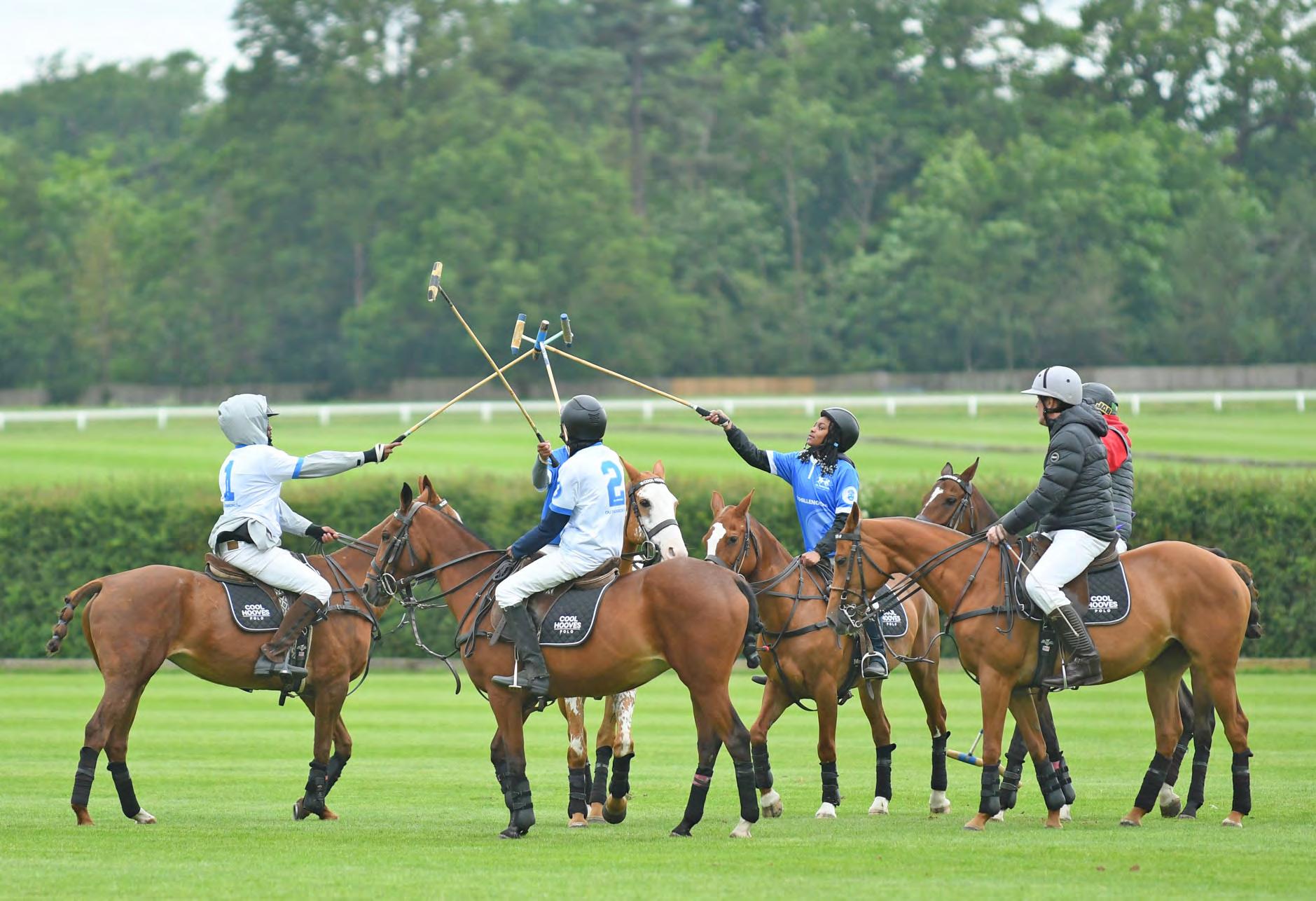
Six young people get the chance to develop new skills in a different setting. By Rodney Hinds
SIX young people recently joined Power of Polo for an incredible residential course with Cool Hooves Polo at The Royal County of Berkshire Polo Club, enjoying three days of brilliant experiences and getting the chance to develop new skills in a different setting.
All six participants are a part of South Central Youth, which is a Lambeth-based charity working
to improve the life chances of young people in some of London’s toughest communities.
Speaking about his first Power of Polo experience T, age 16, said: “I’ve learnt so much and I can hit the ball! This has made me feel happier, being able to connect with an animal.
“I don’t have any pets; connecting with horses is different and this has given me
the chance to do it. When I get home, I think I will be able to speak more openly with people and have the confidence to start conversations.”
The camp members learnt the basics of polo, including practising on the wooden horse and using hand mallets, before progressing to real horses – for some of them their very first interaction with

LEARNING THE BASICS: Camp members enjoyed a range of activities
“This sport is better than people think; it’s not just something for posh people.”
equines – and learning how to ride for polo and the key shots of the game. By the end of the course, they were playing practice chukkas and took part in a brilliant instructional tournament to round things off.
In addition to the on-field activities, they enjoyed designing their own polo kit alongside exSouth Central Youth member Micah, who is now doing work experience with Black Hound Sports, and got to produce a commemorative hoodie.
A highlight was a trip to Guards Polo Club, including a tour of the Royal Box and a meet and greet with high goal player Kian Hall. Learning to interact with, and look after, horses on the ground is a key element of Power of Polo’s ethos and the participants
got plenty of chances to develop their skills in this area, including a horse-care session with the Cool Hooves Polo grooms, and a talk from young professional plater Rafi Bruckner on what makes a great polo pony.
The course wrapped up with a motivational talk from psychologist Mamta Saha, and the chance to watch a whole match at The Royal County of Berkshire Polo Club.
This range of activities reflects Power of Polo’s mission to provide opportunities both in and out of the saddle, supporting participants in developing key life skills.
Another participant added:
“Before I came, I’d never ridden a horse before. I’d never thought about it much and as I went to the horse I started to get scared, but the horse that I was with, she’s nice, she’s a good horse and I’ve had a good connection with her.
“I talk to them [the horses] now. I speak to them about stuff I don’t speak to other people about. It helps me. It feels like the horse listens to me.
“The best thing about this week is all the opportunities; we got to go to Guards polo and see
the Royal Box, and we got the chance to stand where people don’t usually.
“We got to watch a real polo game, which I’ve never seen before. I also got to ride a horse –without someone holding me!
“That’s given me so much confidence which I can use in the future.
“This sport is better than people think; it’s not just something for posh people. It’s for anyone, they should just try it out and see how good it is. It’s definitely changed my life, interacting with horses.
“It’s helped me express how I feel and now I can tell other people about the good experiences I’ve had with Power of Polo; I know the link with the charity can help me now and in the future, maybe I can stay involved and help others
l Learn more about Power of Polo’s work at: www.powerofpolo.org.uk, or by following its social media channels: @powerofpolo

IMPACT: The group played practice chukkas and took part in an instructional tournament
